The American Academy of Achievement invited men and women of exceptional accomplishment to share their wisdom and experience with over 80 outstanding young scholars, scientists, artists, entrepreneurs, and public servants in New York City at the 53rd International Achievement Summit, September 13 -15, 2019.
From September 13 to 15, 2019, the American Academy of Achievement returned to New York City to celebrate the 53rd annual International Achievement Summit.
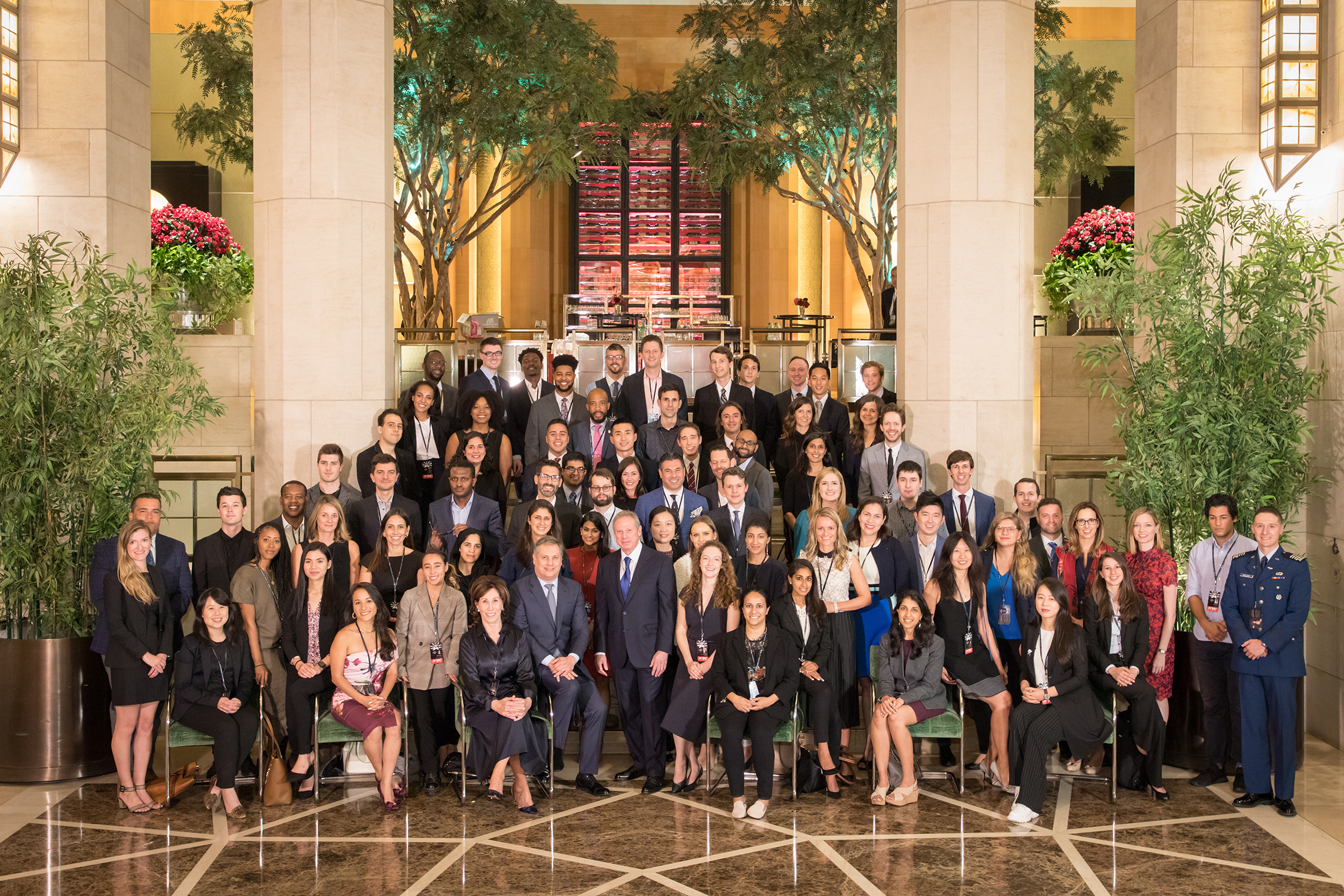
More than 80 young scholars, scientists, entrepreneurs and public servants gathered to meet and exchange ideas with the world’s outstanding leaders in the arts, sciences, business and public service, including 35 new recipients of the Academy’s Golden Plate Award, as well as the Awards Council, composed of returning honorees of the Academy.
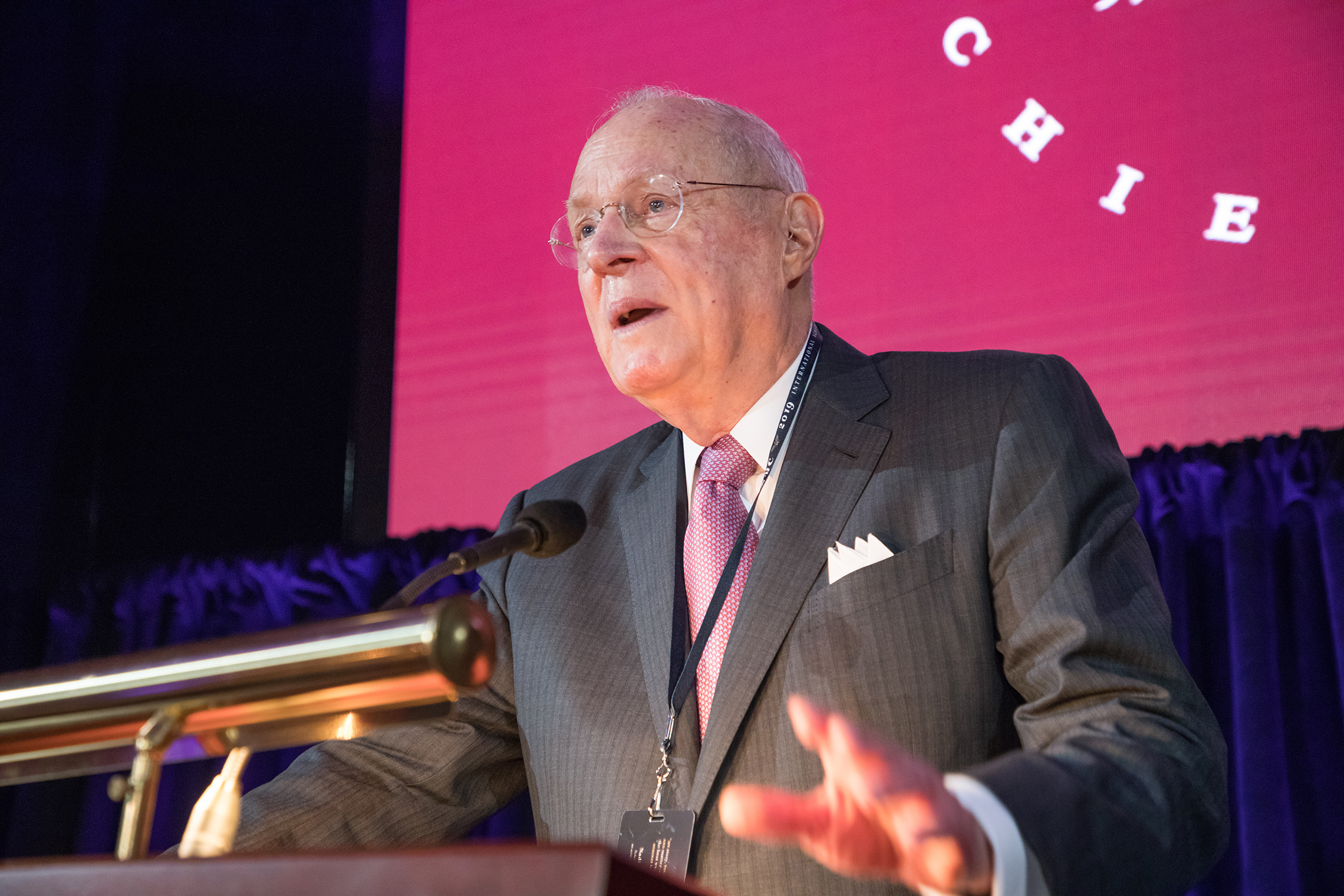
Among the new and returning members of the Academy were ten recipients of the Nobel Prize, nine recipients of the Pulitzer Prize, two Justices of the United States Supreme Court, and seven members of the Rock and Roll Hall of Fame.
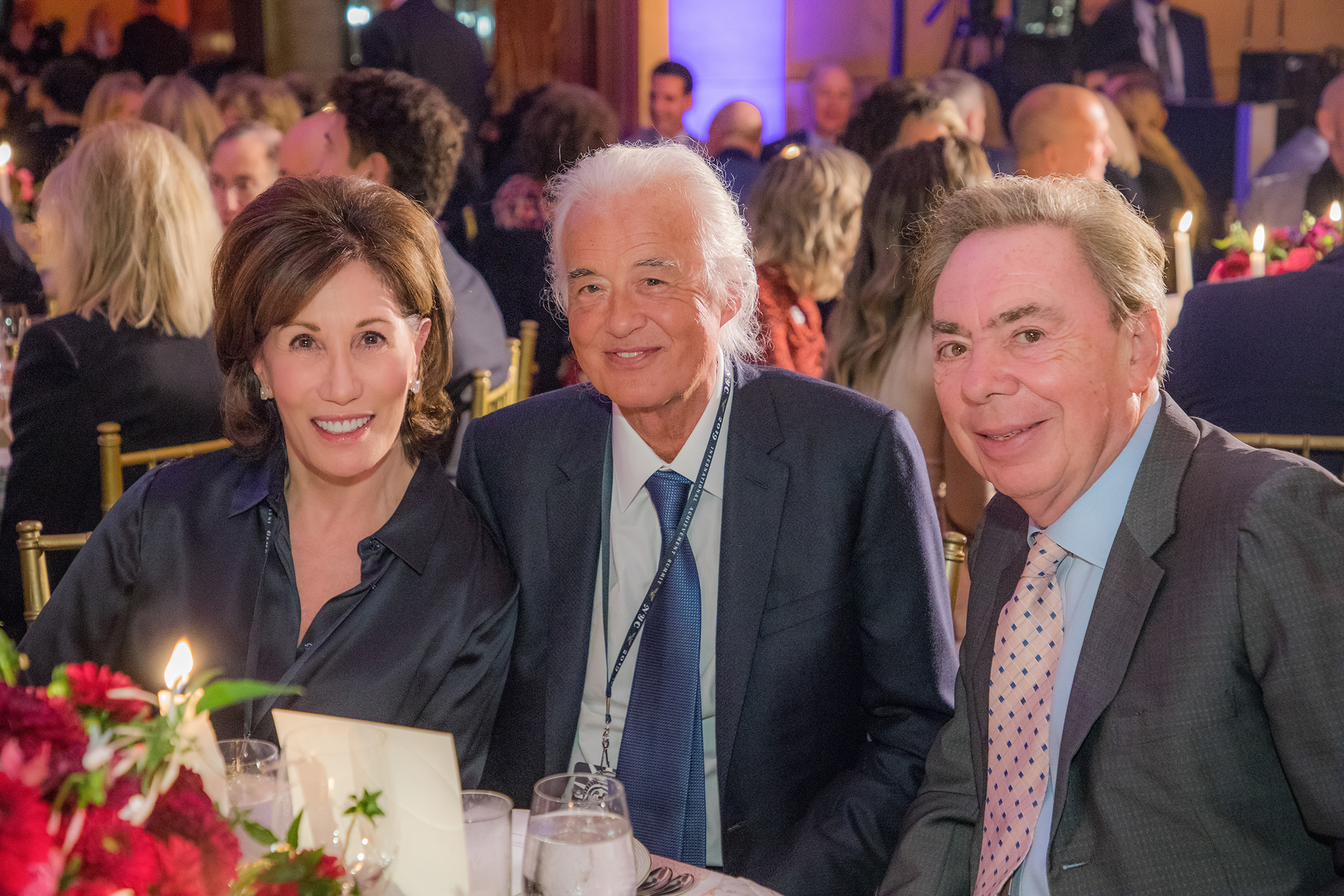
Academy members, honorees and delegates stayed at the luxurious Four Seasons Hotel on Park Avenue, a unique venue designed by the late giant of modern architecture I.M. Pei.
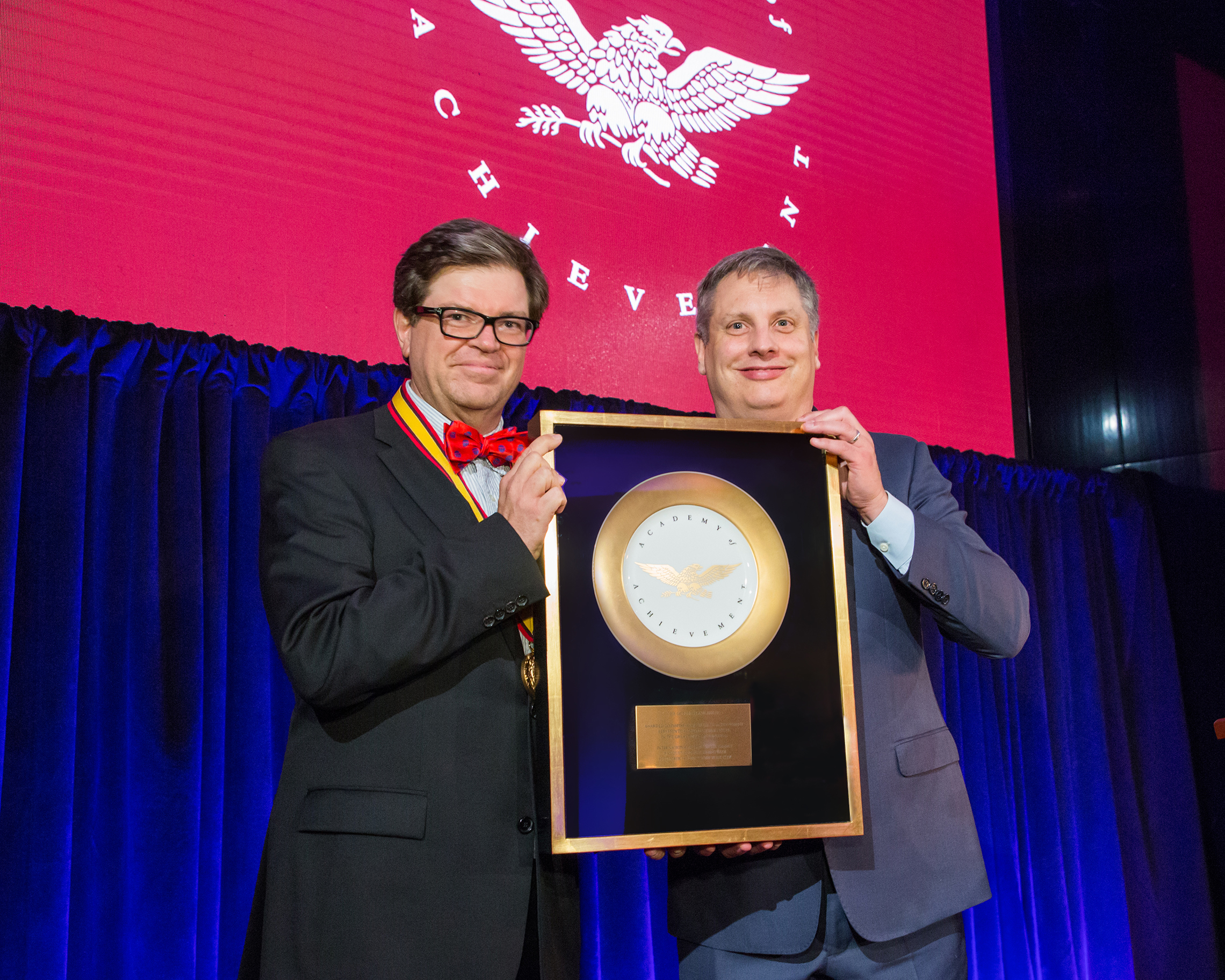
In evening and daytime sessions of the Summit, also held at the Four Seasons, attendees engaged in intense colloquy over the pressing issues of the day, as well as matters of timeless significance.
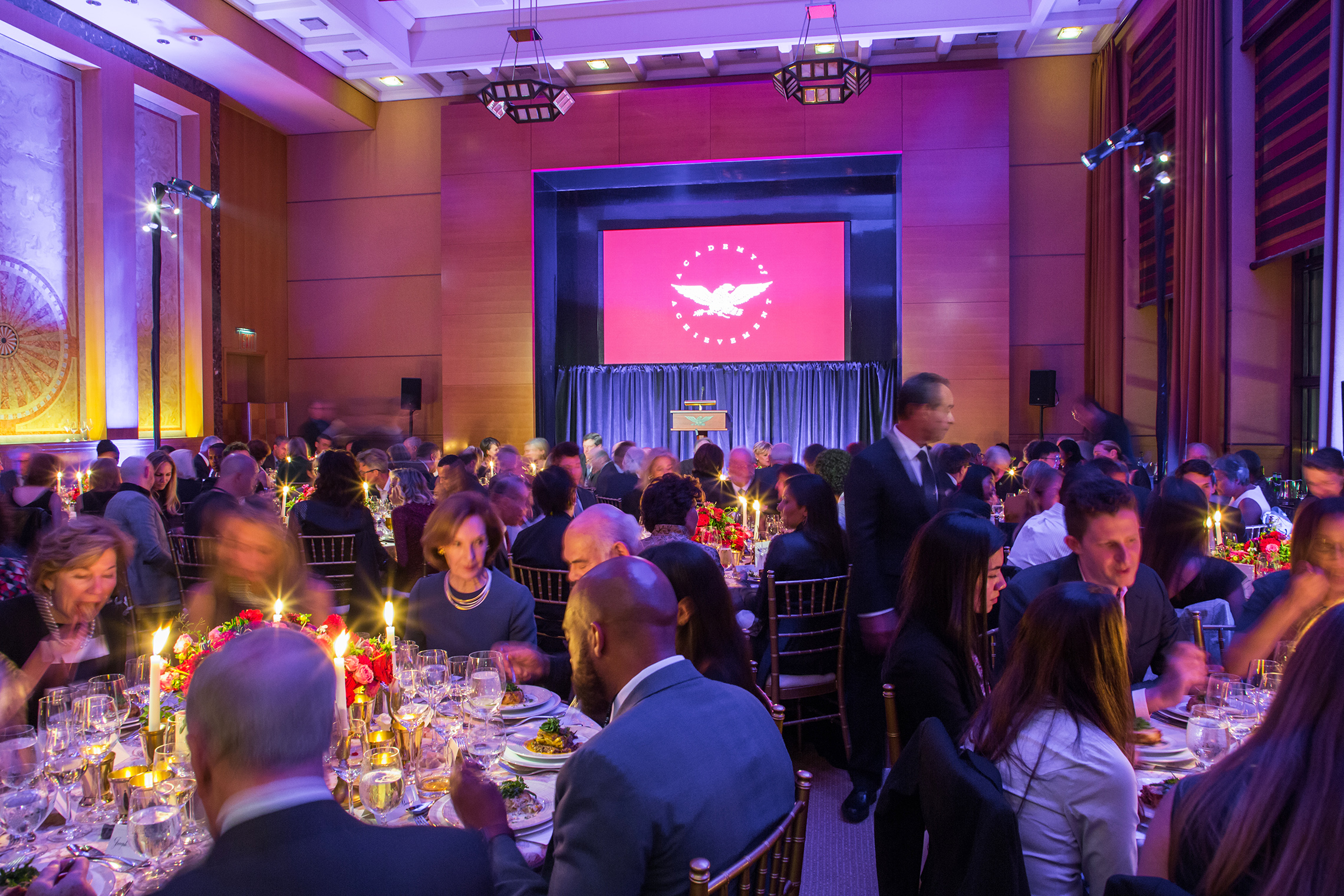
At a time of nearly unprecedented political polarization, when public discourse frequently descends into rancorous bickering, the International Achievement Summit provides a unique opportunity for promising young men and women of different backgrounds, nations, beliefs, disciplines and persuasions to meet and learn from one another, and from the most accomplished practitioners in their fields.
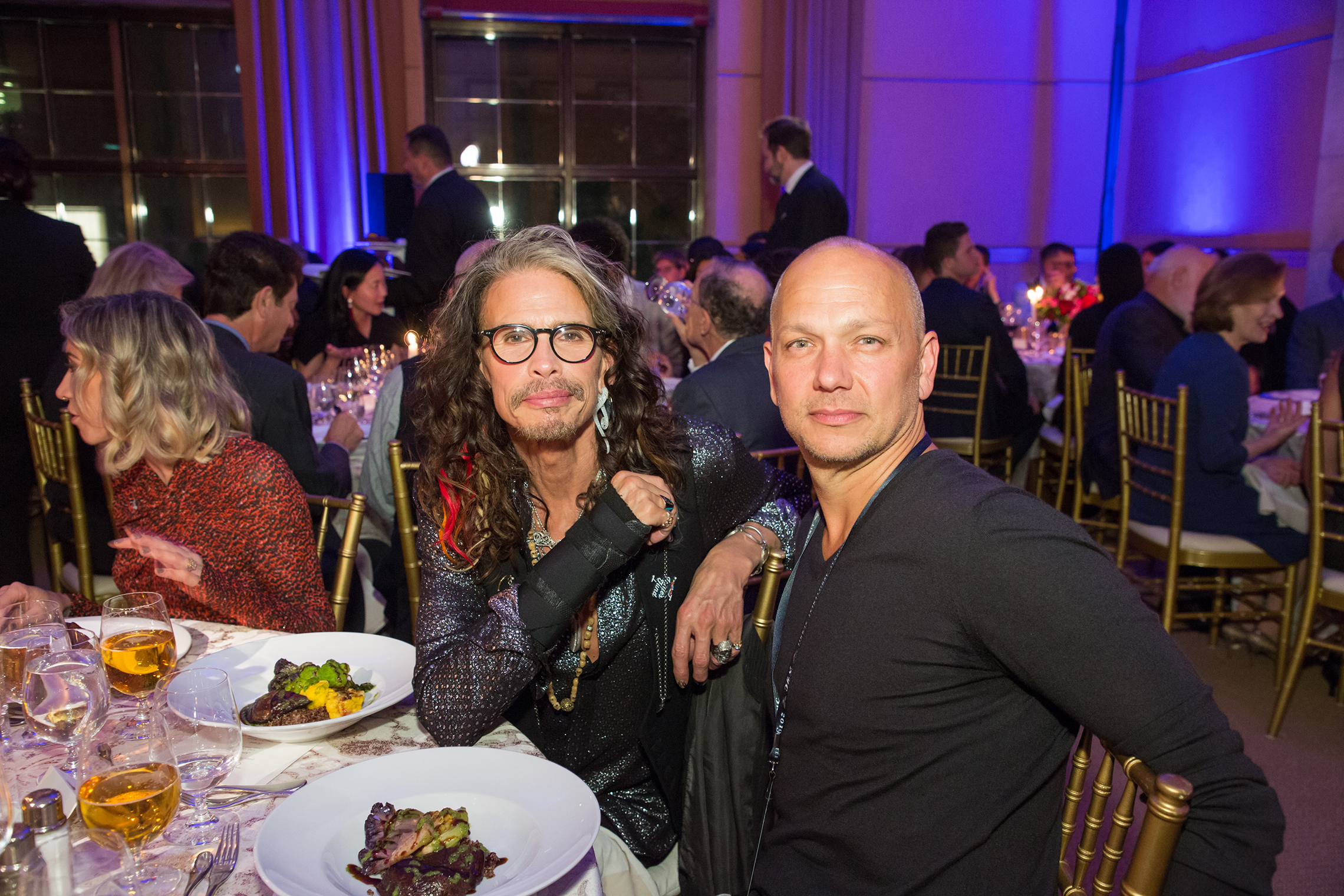
The interplay of myriad points of view and the knowledge drawn from varied disciplines and diverse experience produces expansive insights and opens new avenues for constructive dialogue.
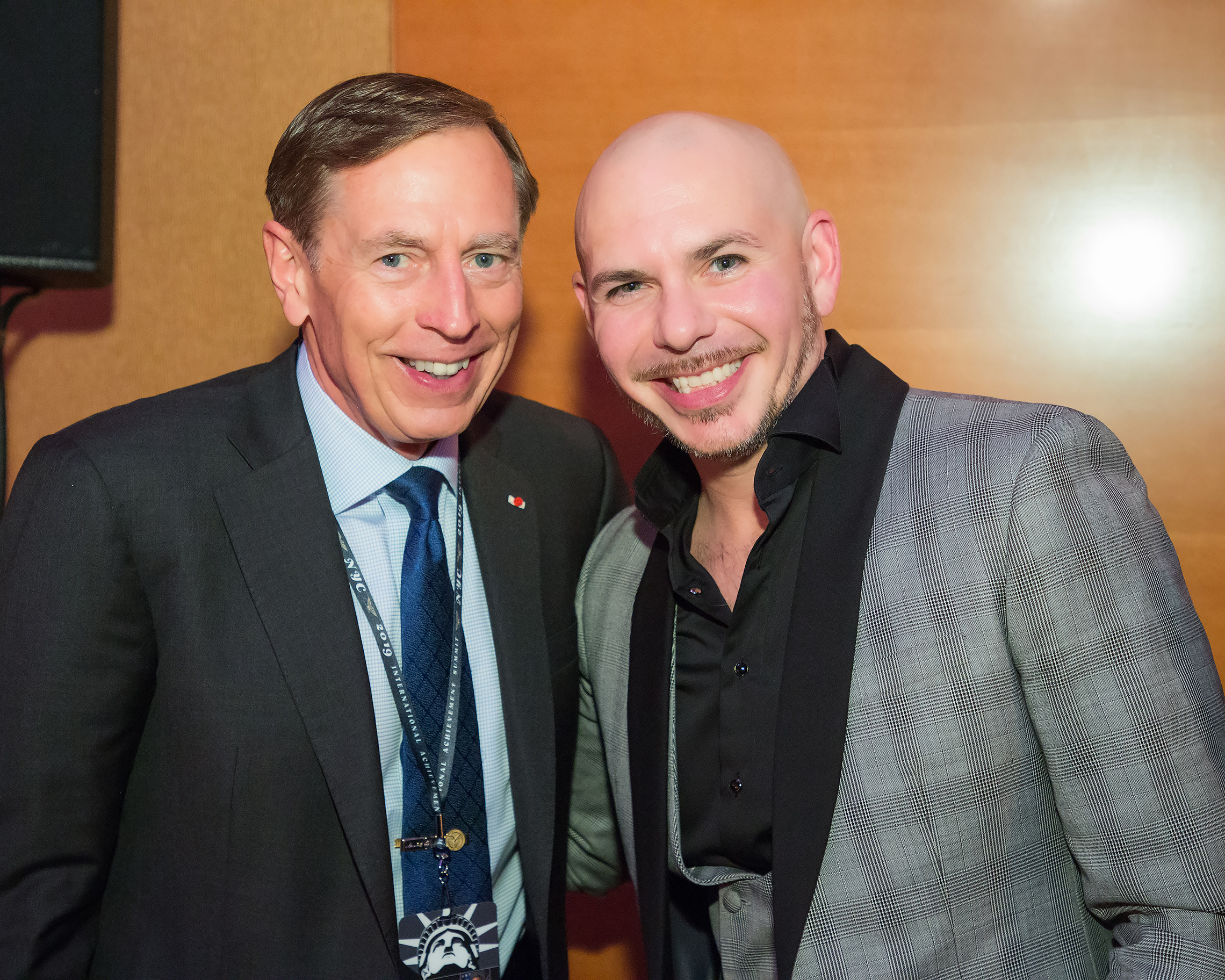
Delegates attending the Summit for the first time included Soros Fellows, MacArthur Fellows, fellows of the MIT Media Lab, young physicians and researchers from the Harvard-MIT Medical Scientist Training Program, startup entrepreneurs from Silicon Valley, a promising novelist from Nigeria, a city council member from Houston, the minority leader of Alabama’s House of Representatives, and the lieutenant governor of Wisconsin.
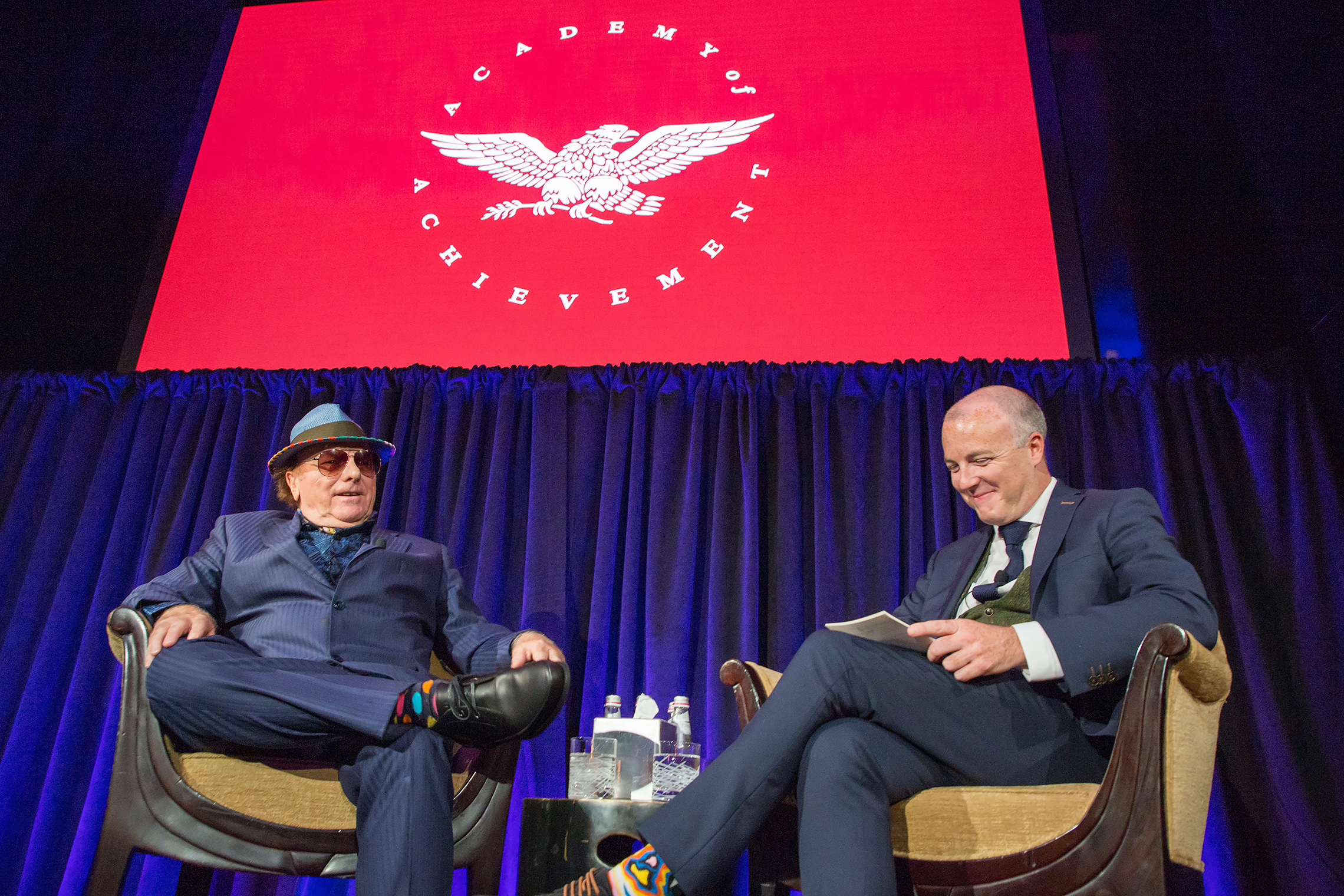
A host of eminent public servants participated in this year’s Summit, including retired Supreme Court Justice Anthony M. Kennedy and Justice Brett M. Kavanaugh. Two members of the President’s cabinet — Secretary of Housing and Urban Development Benjamin S. Carson and Secretary of Transportation Elaine L. Chao — were joined by former CIA Director General David Petraeus, former NATO commander General Joseph Ralston, and the Librarian of Congress, Dr. Carla Hayden.
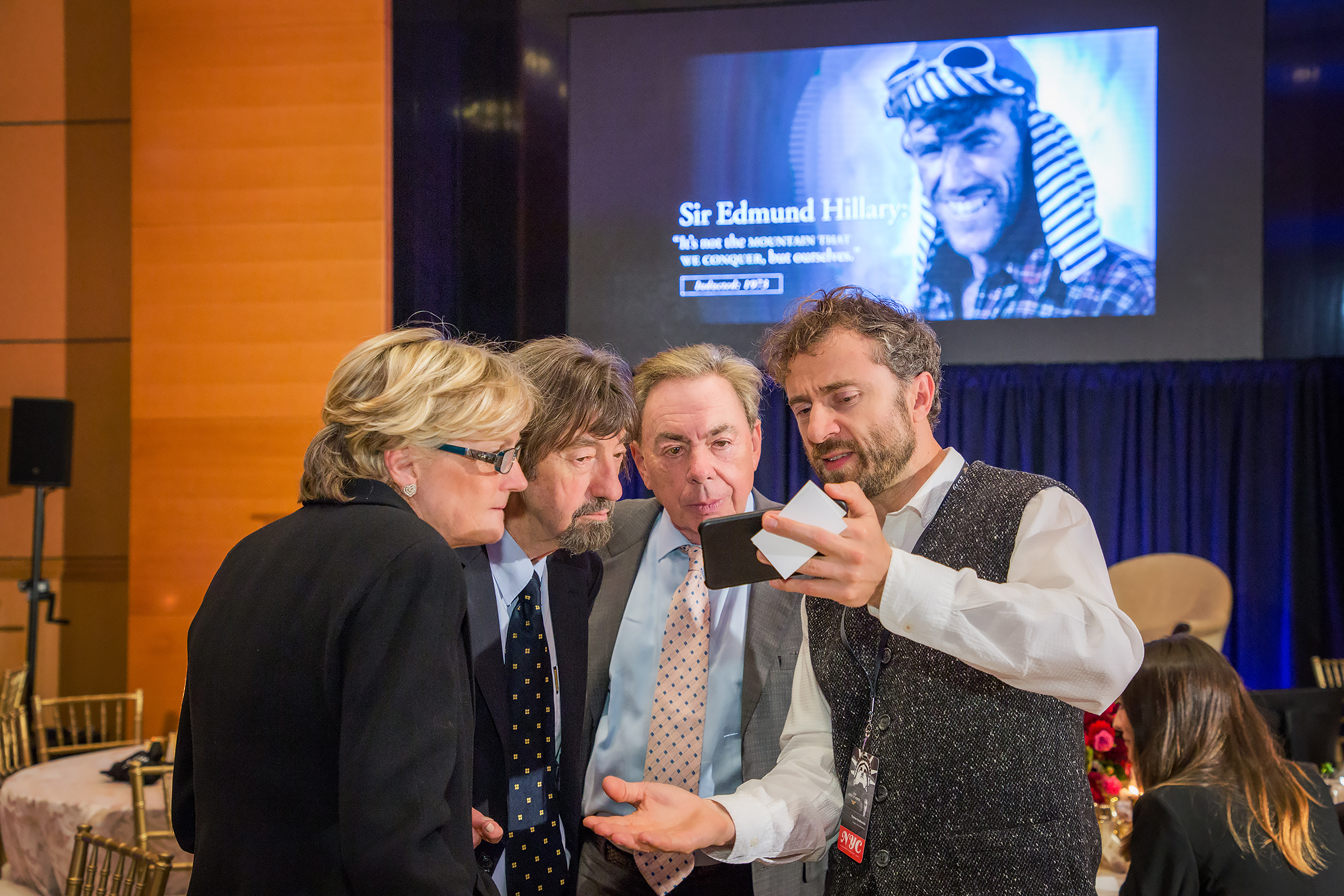
Distinguished members of the legal profession attending the Summit included ACLU Director Anthony Romero, Equal Justice Initiative founder Bryan Stevenson, and forensic DNA pioneer Barry Scheck.
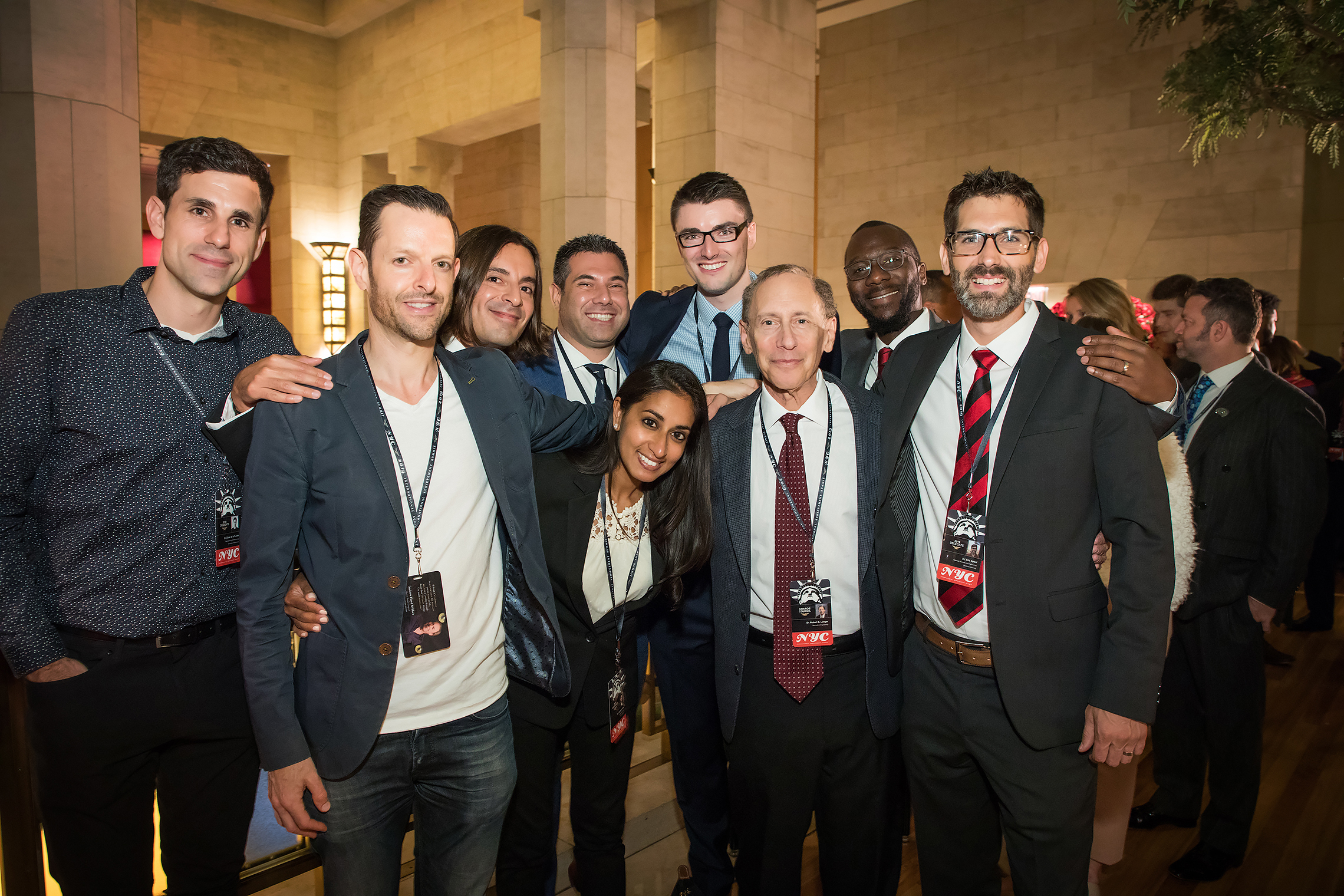
New Academy members Leymah Gbowee and Nadia Murad are both recipients of the Nobel Prize for Peace. Recipients of the Nobel Prize in Physics included Dr. Saul Perlmutter, Dr. Adam Riess, Dr. Donna Strickland and Dr. Kip Thorne. Dr. James Allison received the Nobel Prize in Medicine; Dr. Frances Arnold is a recipient of the Nobel Prize in Chemistry; Dr. Daniel Kahneman was awarded the Nobel Prize in Economics.
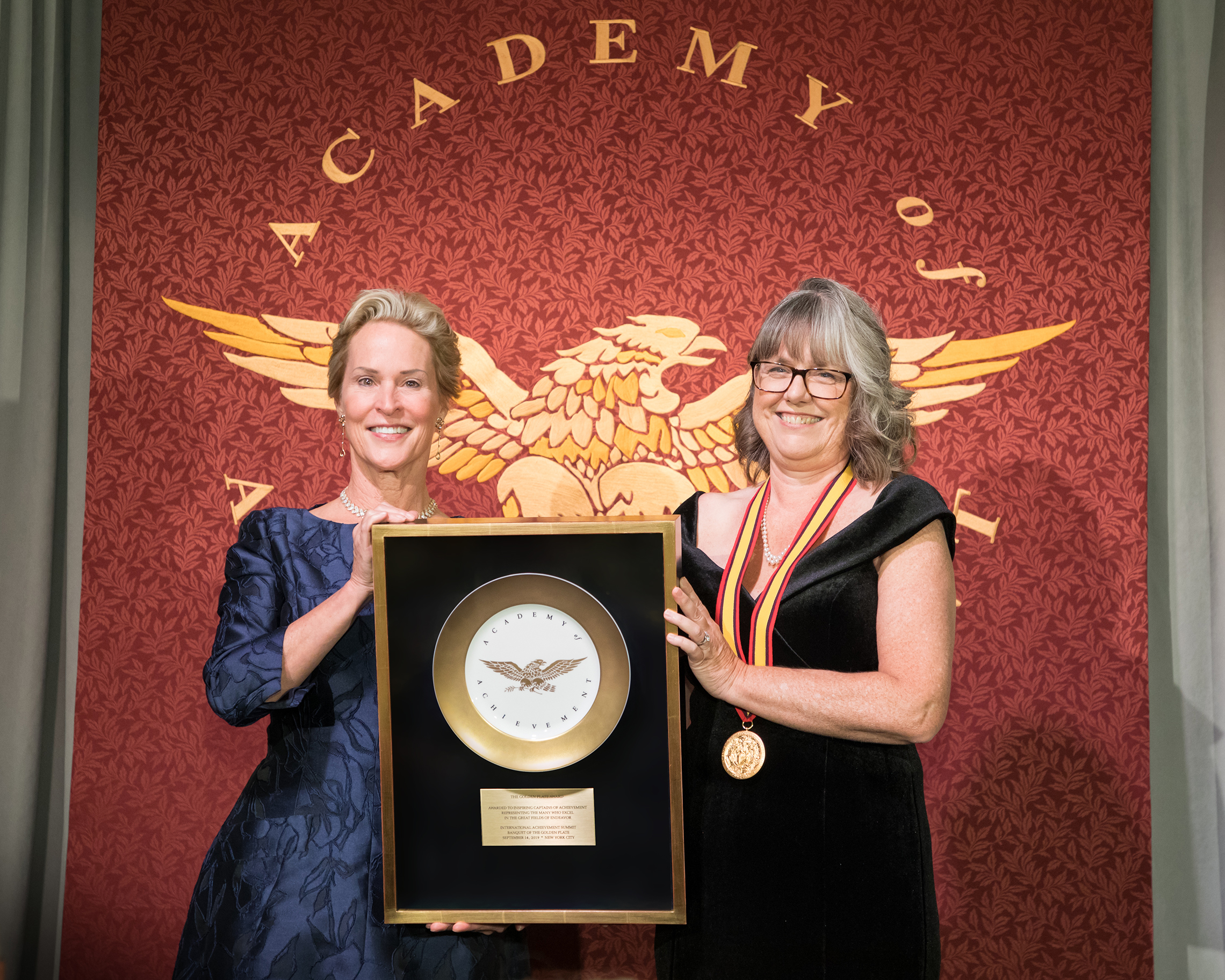
Other brilliant innovators in the sciences, medicine and public health who graced the Summit were biomedical engineer Dr. Robert Langer; artificial intelligence developer Dr. Yann LeCun; satellite radio and biotechnology innovator Dr. Martine Rothblatt; integrative medicine advocate Dr. Andrew Weil; the co-developer of CRISPR gene editing technology, Dr. Feng Zhang; the Director of the National Institutes of Health, Dr. Francis Collins; and Dr. Steven Rosenberg of the National Cancer Institute.
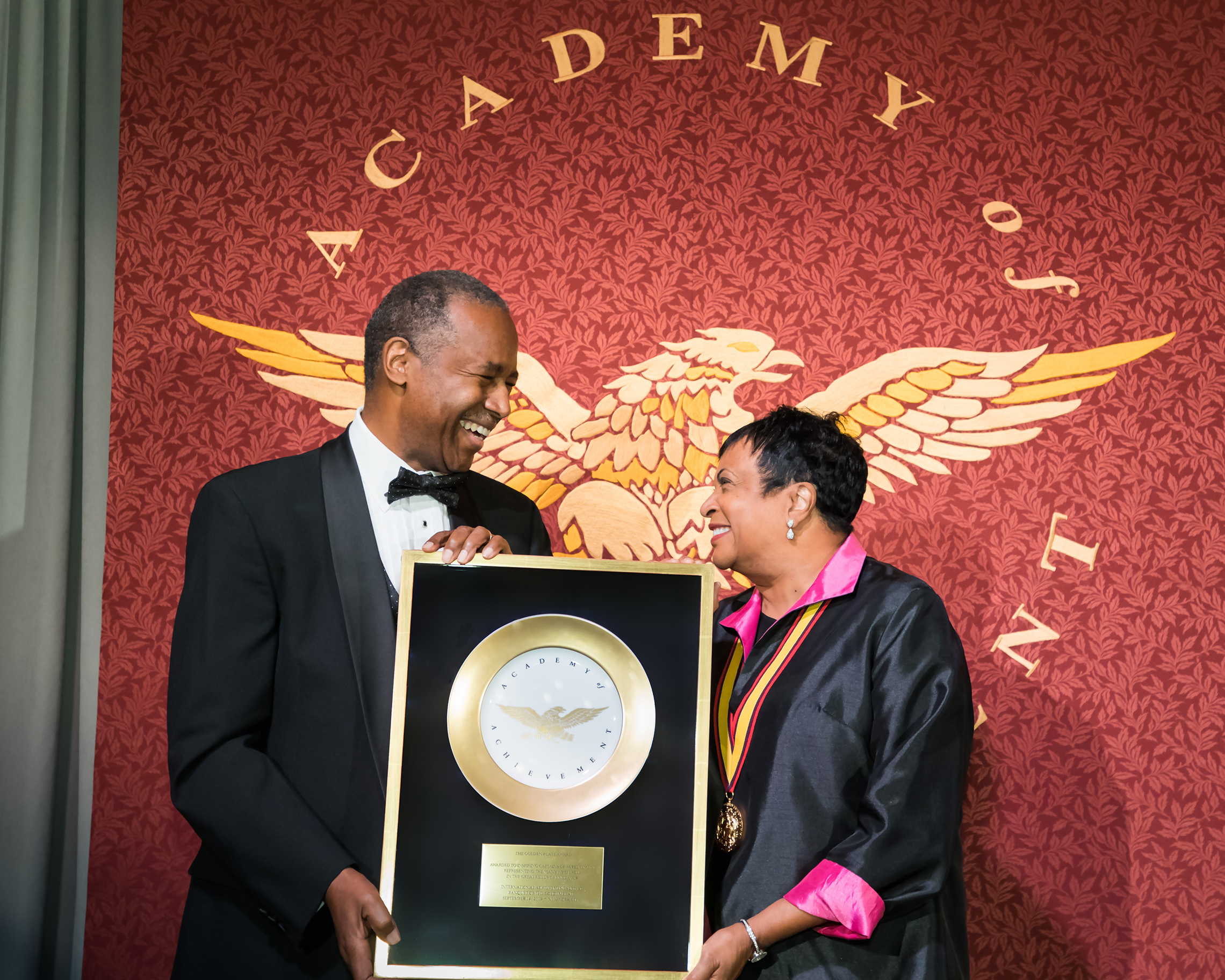
The realms of literature and journalism were represented by distinguished Academy members, including a recipient of the Nobel Prize for Literature, novelist Orhan Pamuk, and the award-winning British novelist Ian McEwan.
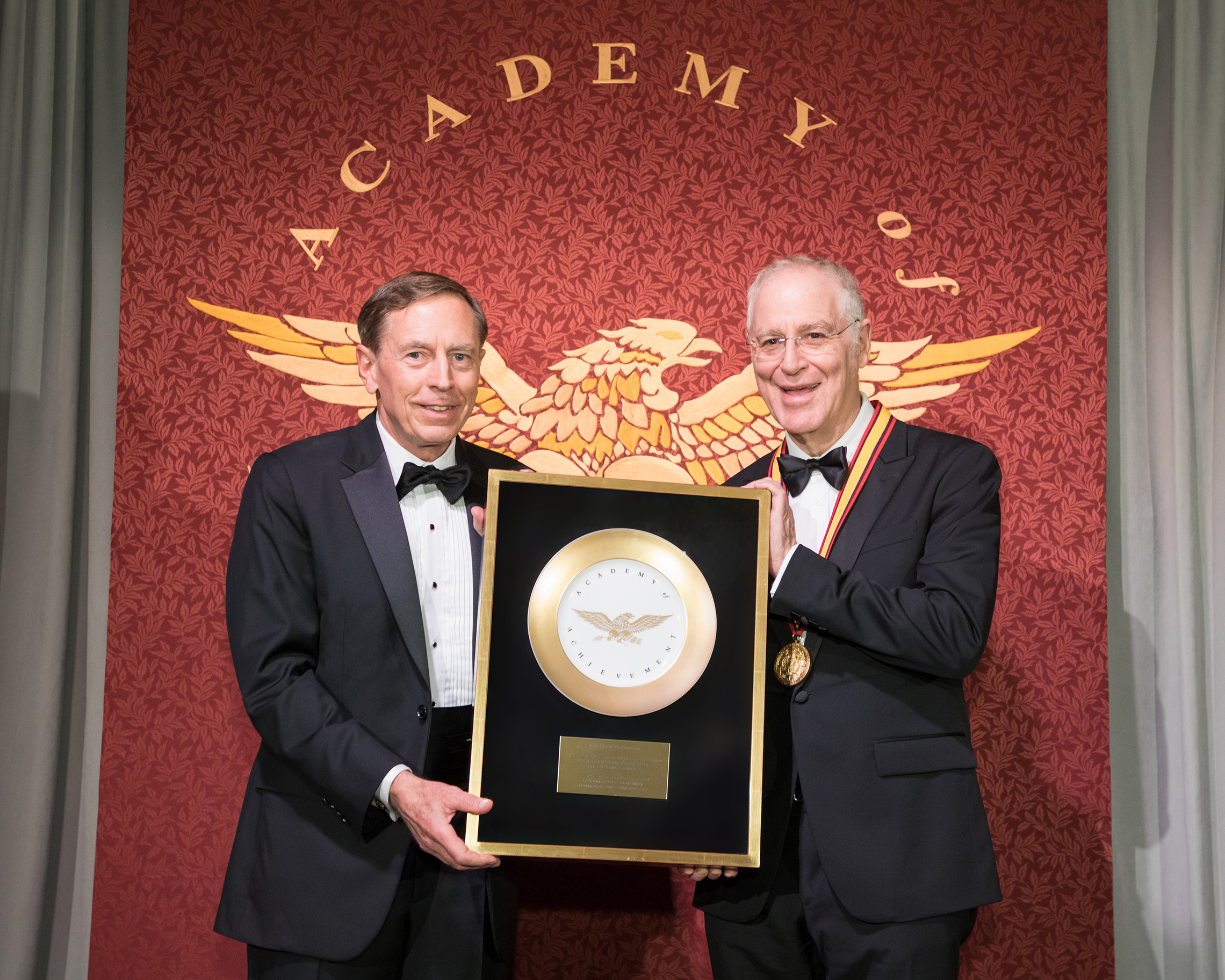
Recipients of the Pulitzer Prize included historian Rick Atkinson and biographers A. Scott Berg, Ron Chernow and T.J. Stiles; former Poet Laureate of the United States Rita Dove; playwright Lynn Nottage; and photojournalist Lynsey Addario, who was joined by the award-winning war correspondent and photojournalist James Nachtwey.
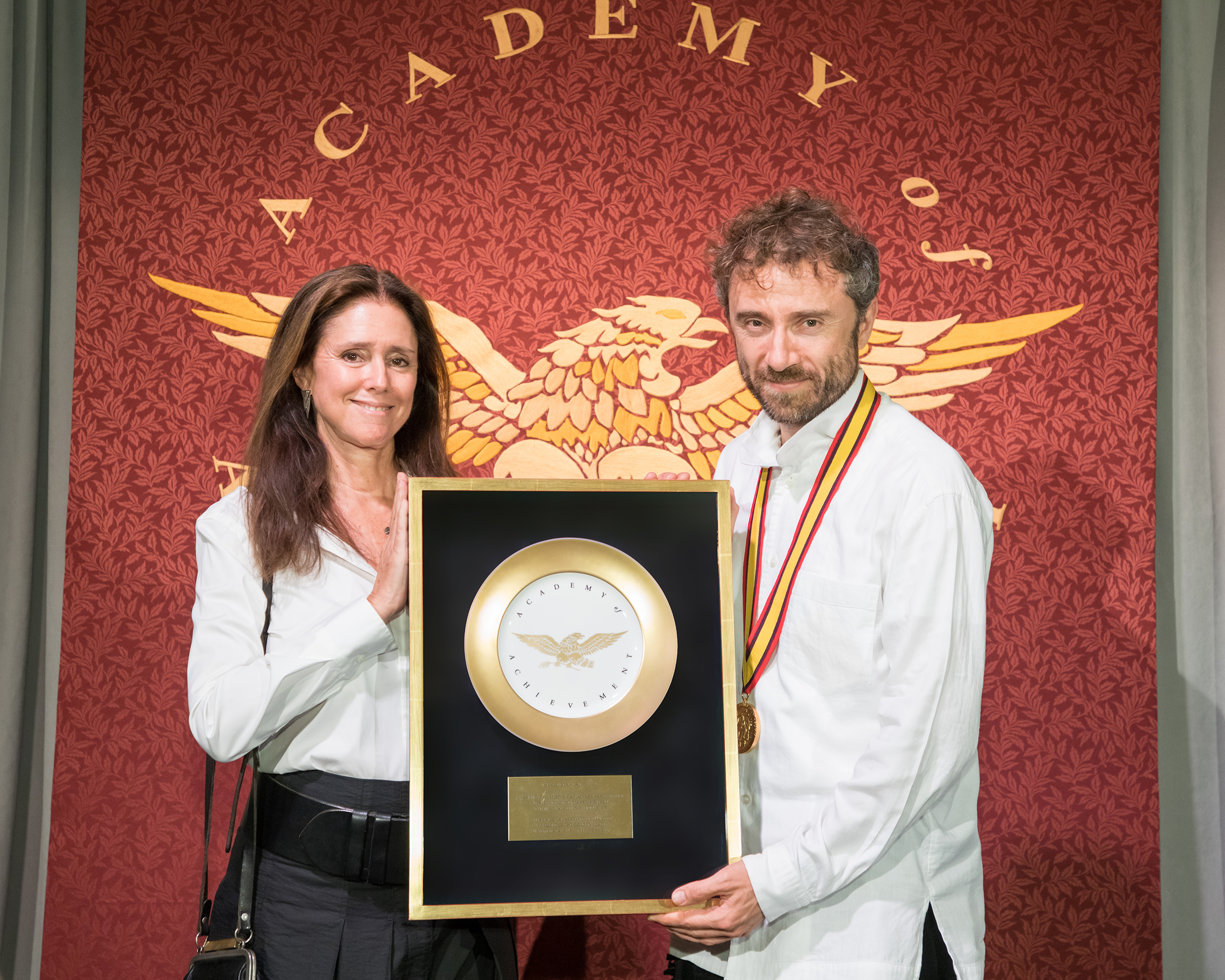
Distinguished leaders from the worlds of business and finance included the Chairman of Maverick Capital, Lee Ainslie; the CEO of Breyer Capital, James Breyer; Kleiner Perkins Chairman John Doerr; Universal Music Group Chairman Sir Lucian Grainge; Lockheed Martin Chairman Marillyn Hewson; Tudor Group founder Paul Tudor Jones II; and the mastermind behind the iPod and Nest digital home devices, Tony Fadell.
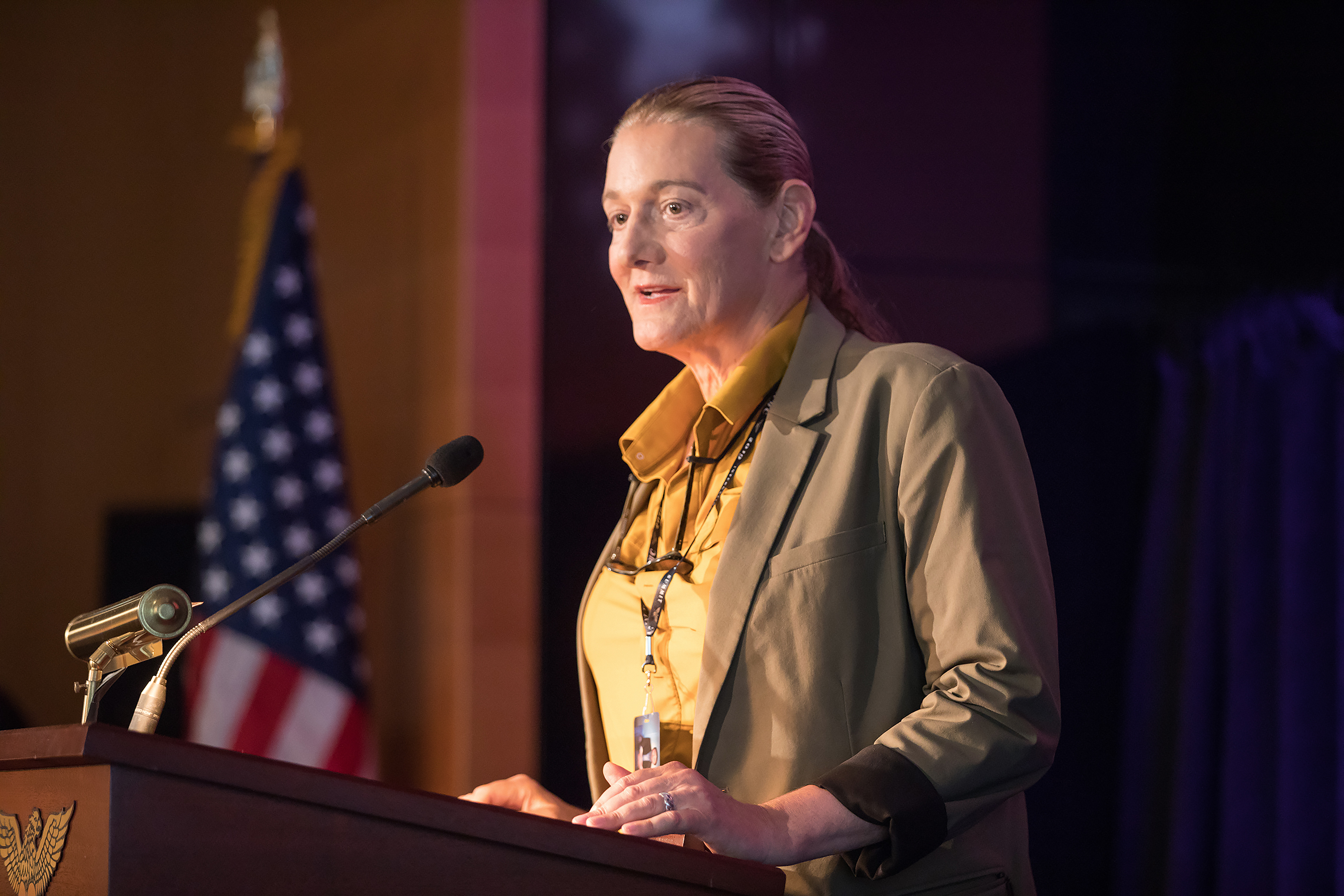
This year’s Summit was particularly rich in attendees from the worlds of popular music, from Broadway to rock and roll, rhythm and blues, and hip-hop. Iconic musicians in attendance included the composer and impresario Lord Andrew Lloyd Webber, as well as Rock and Roll Hall of Fame honorees Roger Daltrey and Pete Townshend of The Who, Led Zeppelin founder Jimmy Page, Peter Gabriel, blues great Buddy Guy, Sir Van Morrison, Smokey Robinson and Steven Tyler.
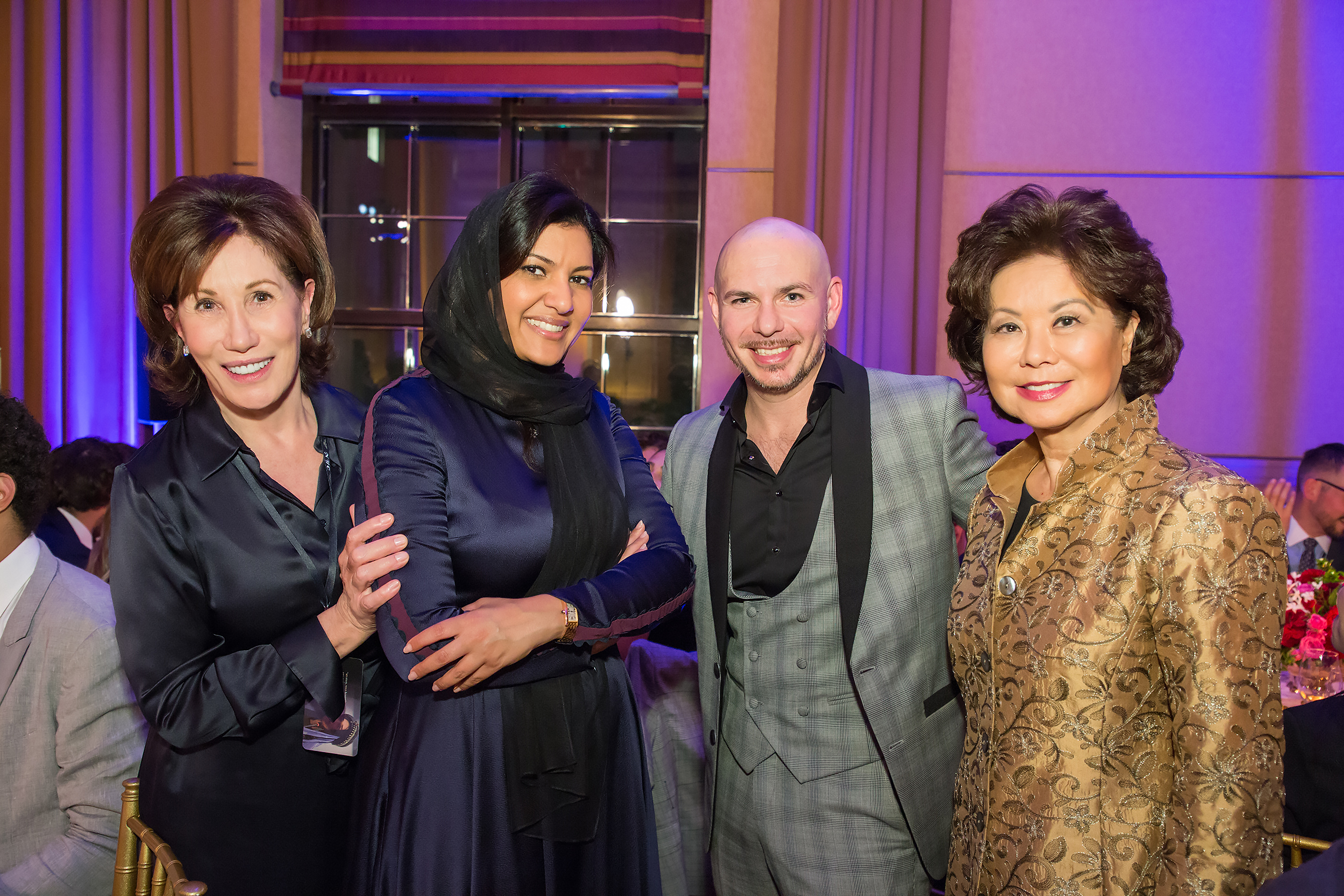
They were joined by Grammy Award-winning folk singer Judy Collins, hit record producer Lukasz “Dr. Luke” Gottwald and rapper Armando Christian Pérez (aka “Pitbull”). The arts were also represented by award-winning directors of film and theater such as Sir Peter Jackson, Sir Trevor Nunn, Bartlett Sher and Julie Taymor, ballet great Edward Villella, choreographer Justin Peck, and groundbreaking designer Thomas Heatherwick.
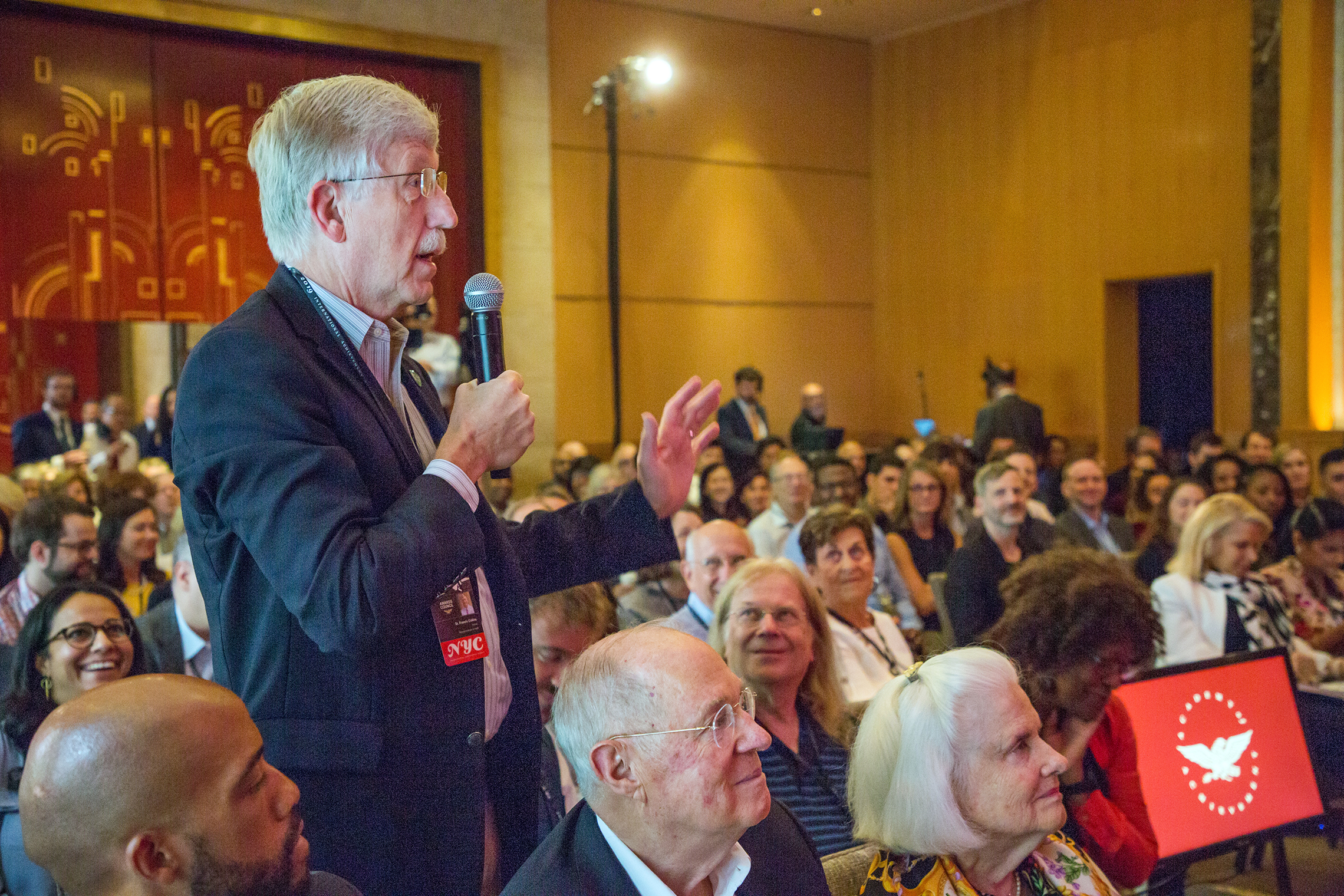
The Host Chairman of the 2019 Summit was Catherine B. Reynolds, the Chairman, CEO and President of the Catherine B. Reynolds Foundation. The Summit’s Co-Hosts were John Overdeck, the Co-Founder and Co-Chairman of Sigma Two Investments, and Walgreens Boots Alliance CEO Stefano Pessina.
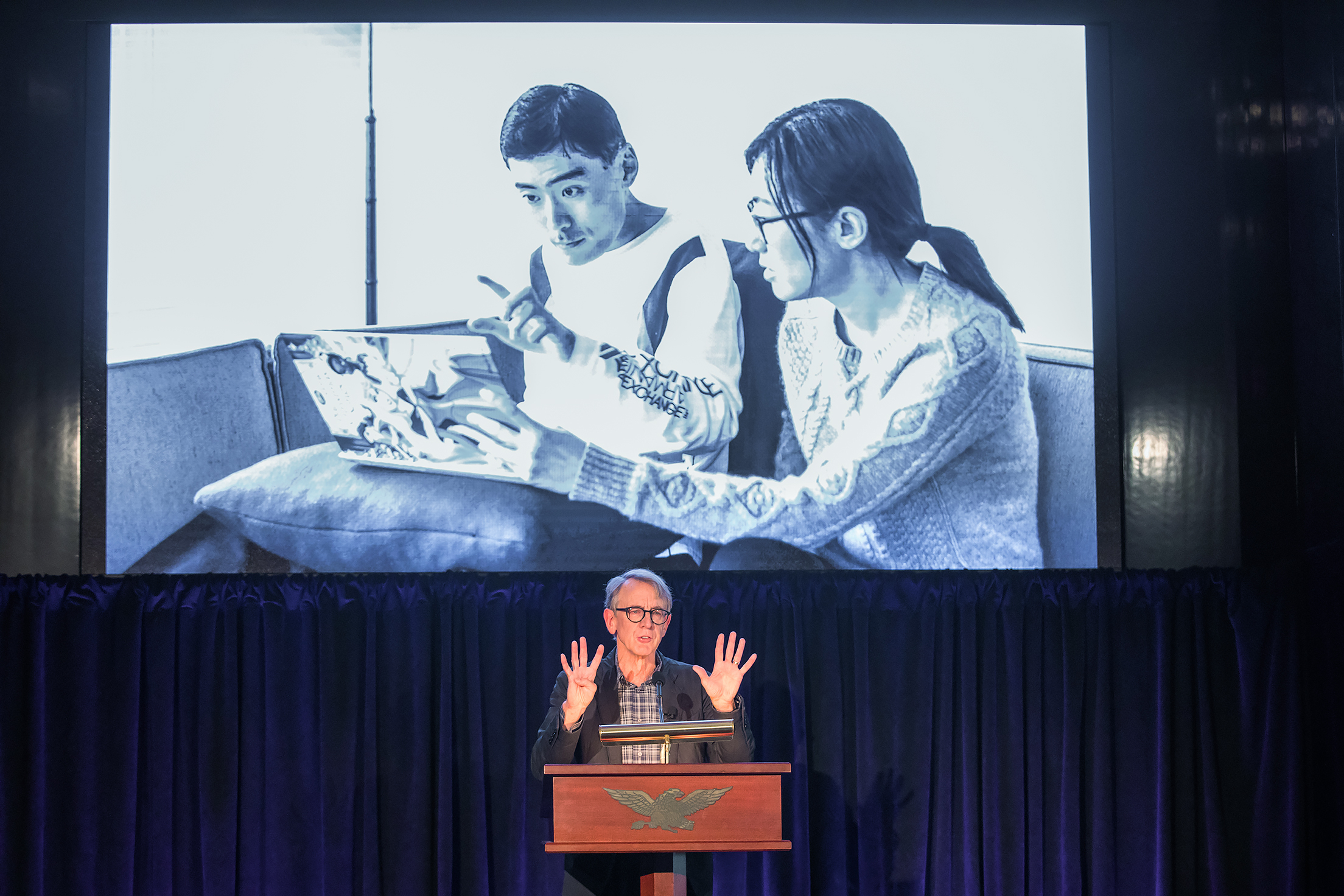
Delegates, honorees, Academy members and guests convened at the Four Seasons on Friday evening for an elegant dinner. After gracious welcoming remarks from Summit Host Catherine Reynolds, Justice Anthony Kennedy greeted the assembly. Recently retired from the Supreme Court after 30 years of distinguished service, Justice Kennedy reflected on the felicity of the Academy meeting in New York City, where so much of the nation’s history has been enacted and where so much of its cultural life has flourished. He recalled observations of the founding fathers on the city’s unique character, reflected in George Washington’s decision to take his oath of office in a public ceremony in New York City.
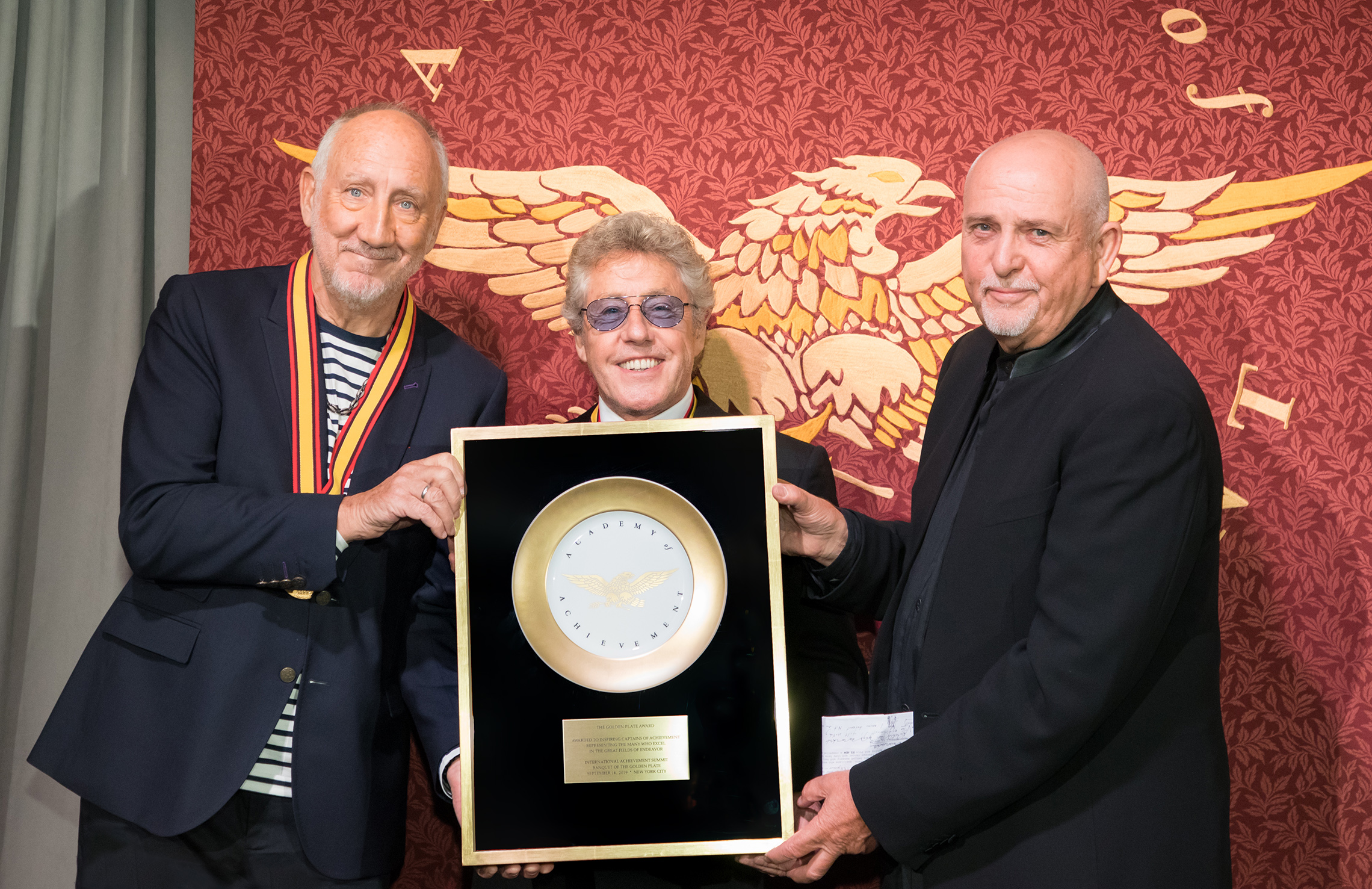
This year’s Summit commenced a few days after the 18th anniversary of the September 11th terror attacks on New York City. Justice Kennedy read a poem written by a student at the city’s Stuyvesant High School — evacuated on the morning of September 11, 2001 — a poem he suggested reflected something of the city’s indomitable spirit. He ended by quoting Shakespeare’s Twelfth Night: “I can no other answer make but thanks, and thanks, and ever thanks.”
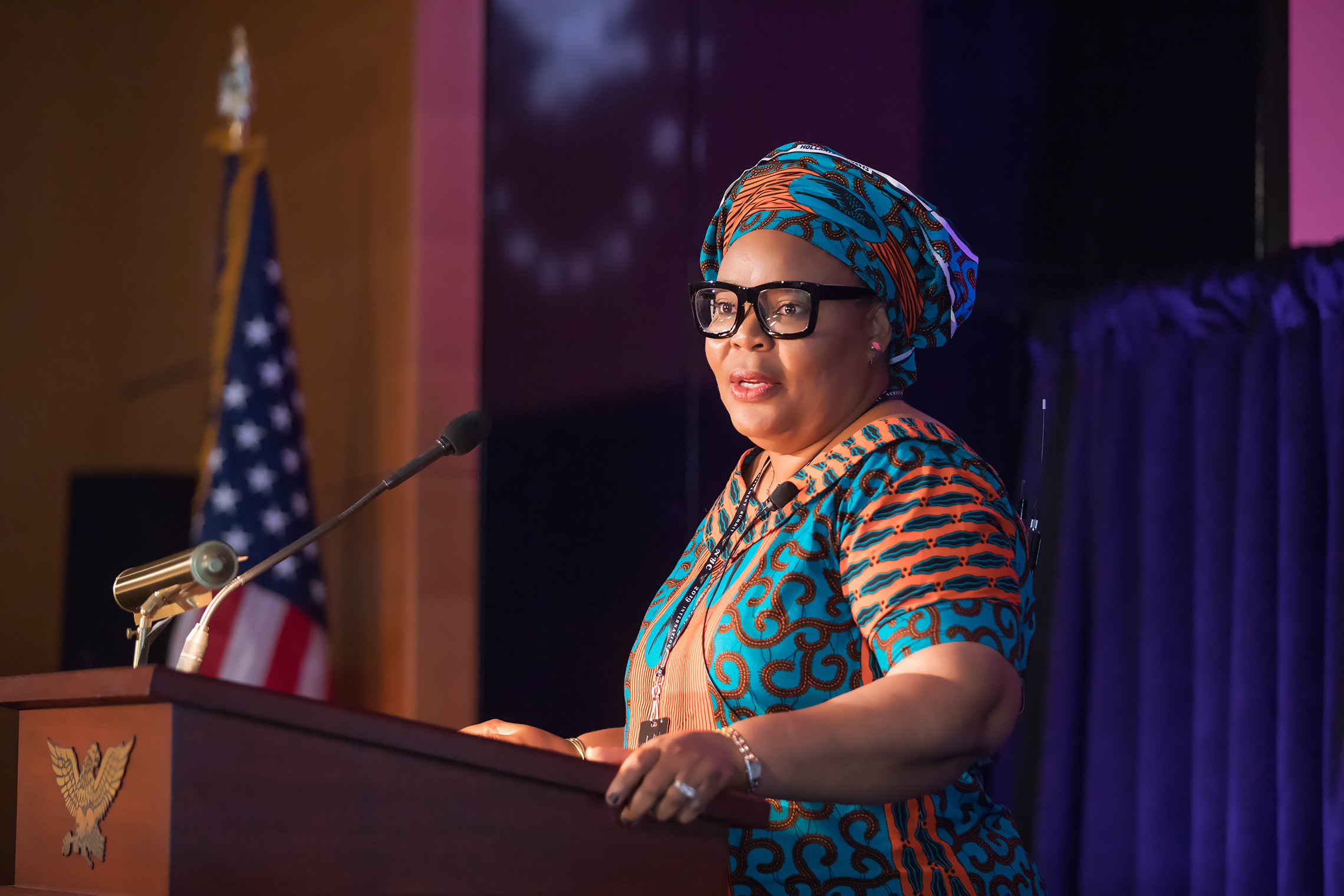
Academy Co-Host John Overdeck presented the Academy’s Golden Plate Award to Dr. Yann LeCun, pioneer of deep learning technology. Dr. LeCun was the originator of the convolutional neural networks that underlie much of the work being done in artificial intelligence today, as well as the voice and character recognition software essential to the devices we use in daily life.
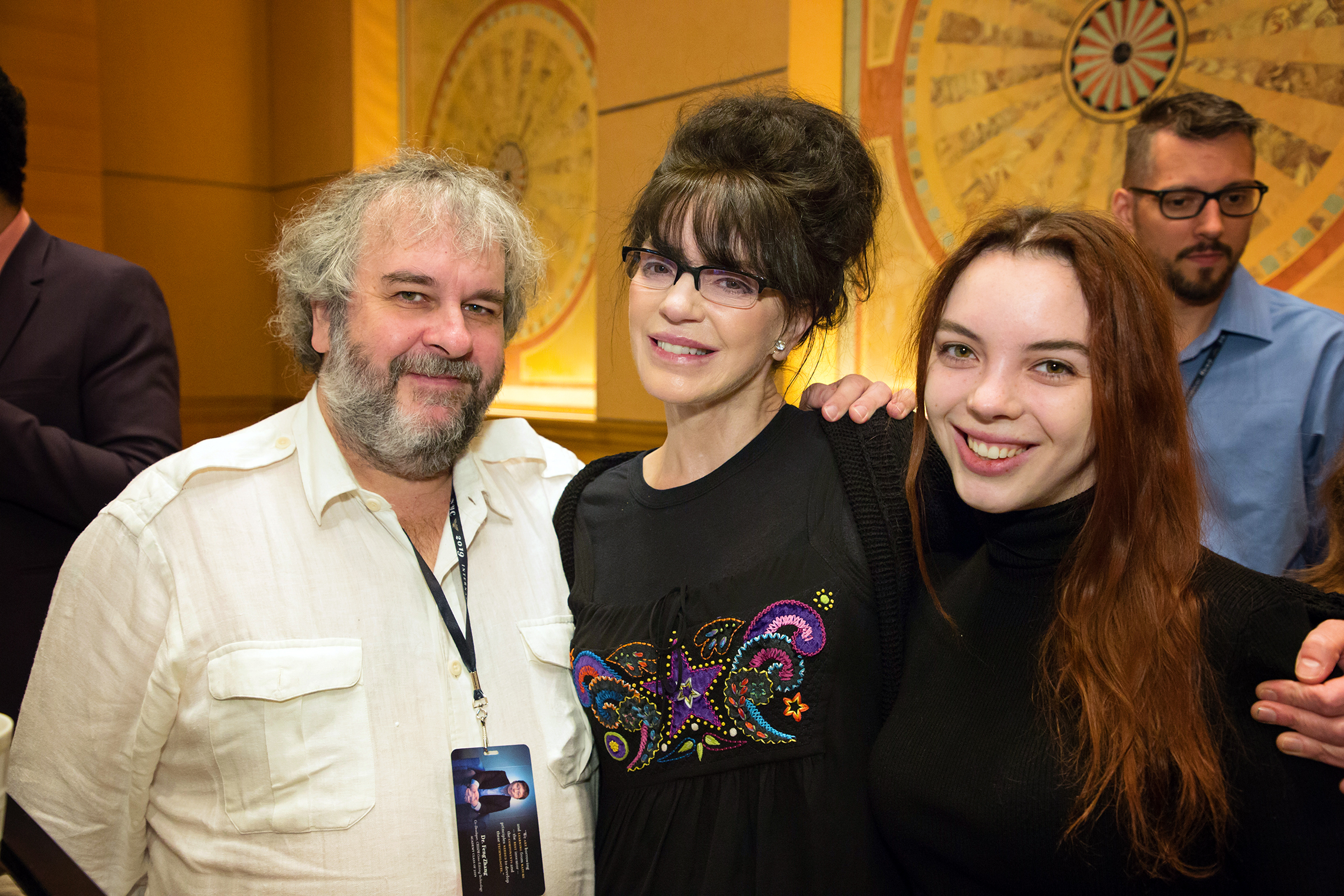
The internationally acclaimed director of film, theater and television, Sir Trevor Nunn, recalled his long collaboration with Lord Andrew Lloyd Webber, the composer of such beloved musicals as Cats, Phantom of the Opera, and Jesus Christ Superstar. Sir Trevor noted that the composer — a member of the Academy’s Class of 2019 — has donated over £20 million ($26.6 million at this writing) to music and arts education on both sides of the Atlantic through the Andrew Lloyd Webber Foundation.
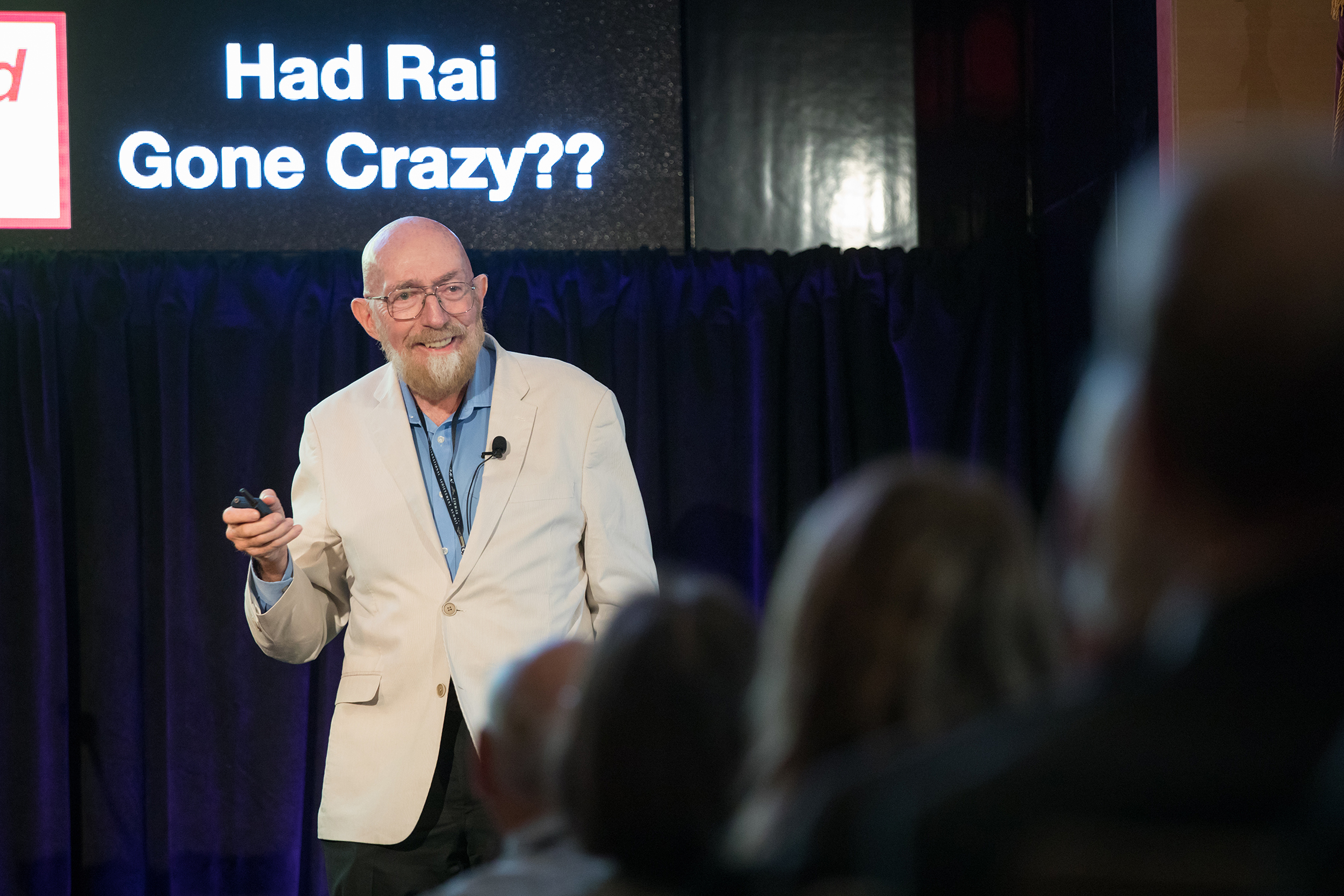
After a video presentation reviewing Lord Lloyd Webber’s spectacular career, the man himself took the stage, where he took part in a brief conversation with the Pulitzer Prize-winning national correspondent of The Washington Post, Mary Jordan. Lord Lloyd Webber emphasized that his great success was essentially due to only undertaking projects that he cared about deeply and found personally exciting. He expressed concern about the current state of musical theater, noting the current predominance of “jukebox musicals” — composed of existing popular songs — over the traditional musical with a complete score of original music. In discussing the work of his foundation, he argued forcefully for the importance of music, art and drama to society as a whole.
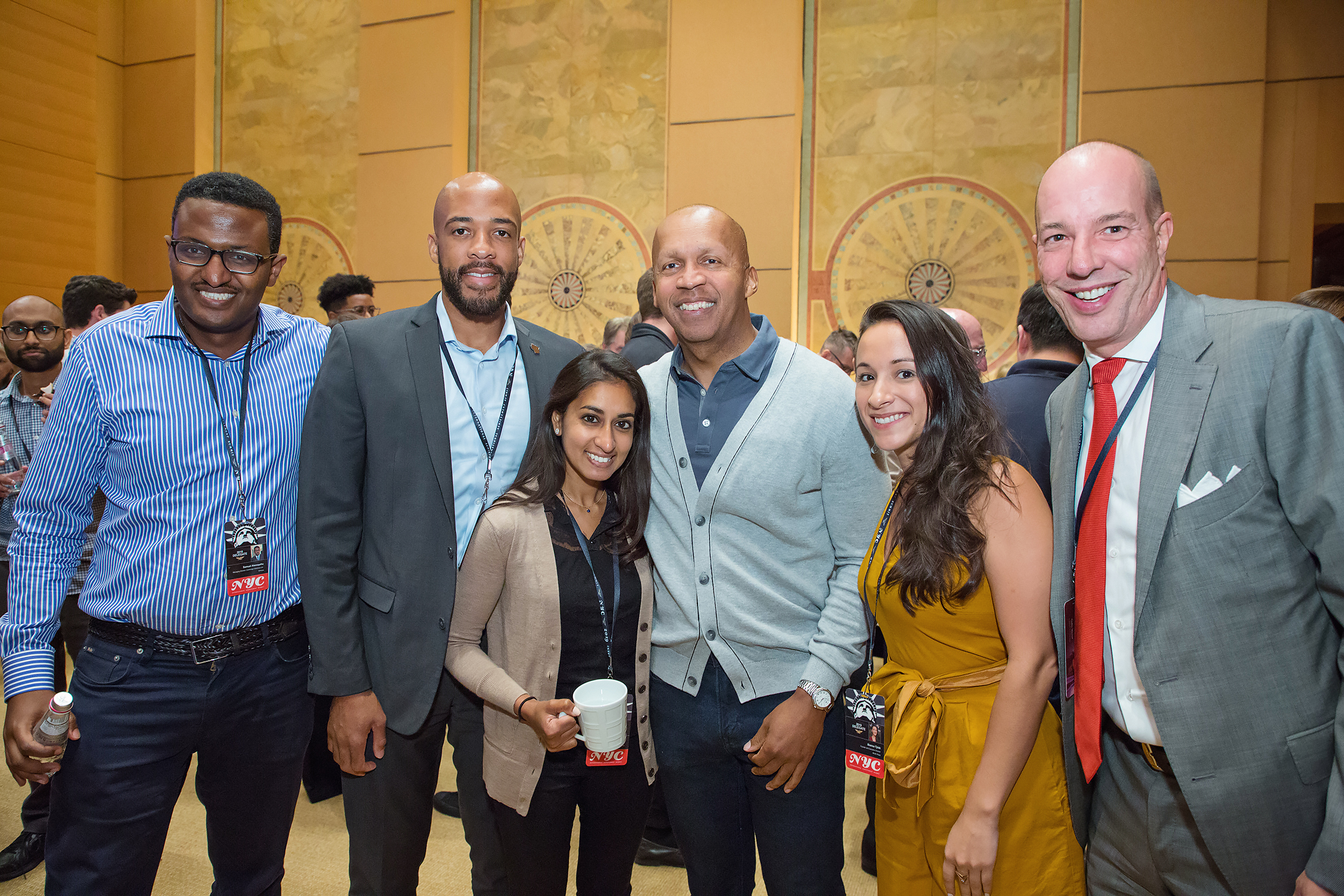
Led Zeppelin founder and guitarist Jimmy Page gave a warmly nostalgic account of the first time he heard Van Morrison perform, and of the enthusiasm with which he had followed Morrison’s career ever since. After a video montage of Morrison’s half-century of music-making, including hits like “Here Comes the Night,” “Brown Eyed Girl,” “Moondance” and “Crazy Love,” Sir Van engaged in a conversation with fellow Belfast native Conor Houston. A community and business leader in Northern Ireland, Houston’s familiarity with Morrison’s career enabled him to draw out the usually reserved singer and songwriter.
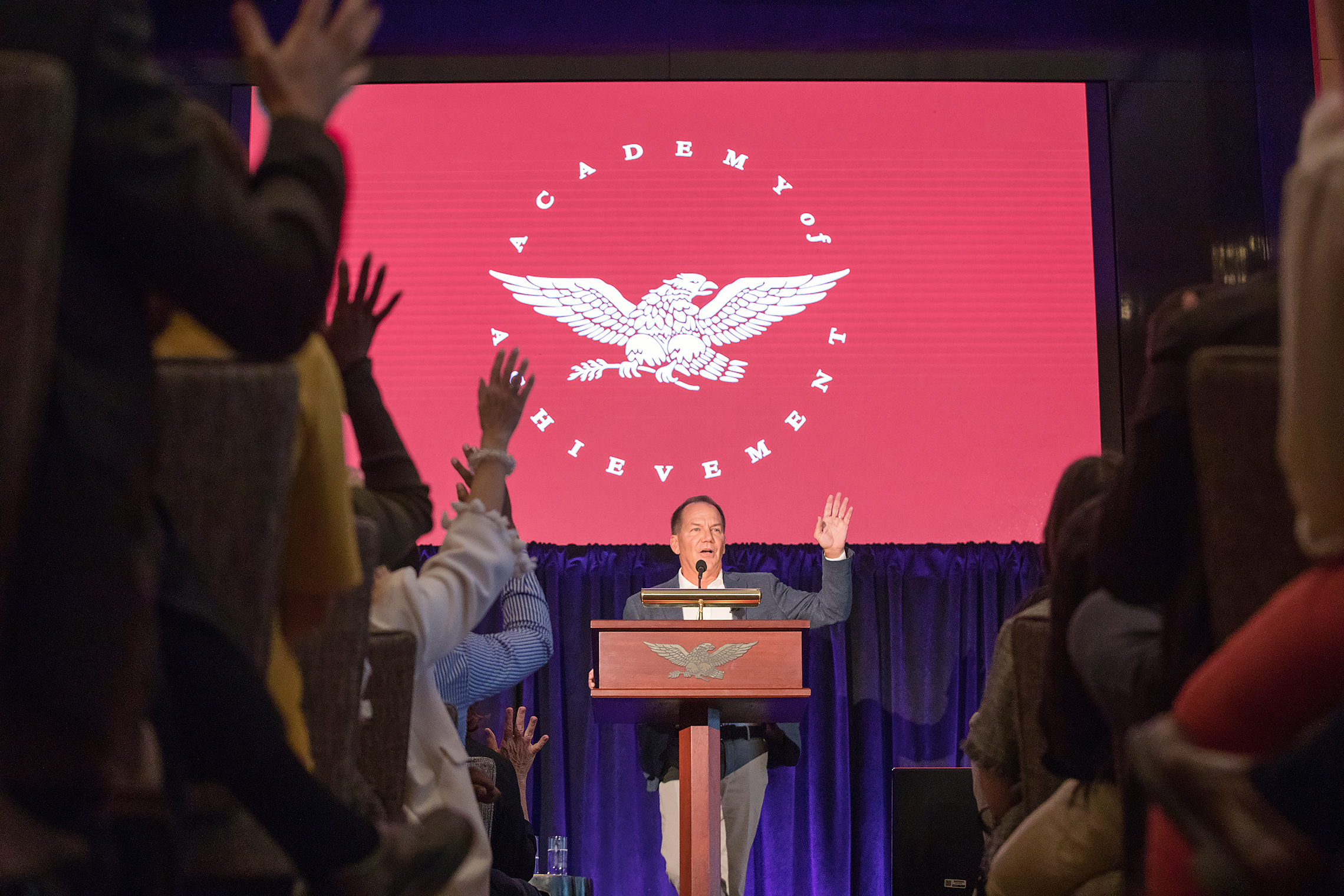
The pair reviewed Morrison’s early years as a blues musician and the development of his solo career as a singer and songwriter. Morrison disclosed that he decided to become his own producer when he “started reading the contracts” and decided he wanted to “own the means of production.” On reflection, he looked at all of his music and creative work as an effort “to create order out of chaos.” Morrison’s belief in poetry and music as fundamental values was evident throughout his blunt answers. As the conversation began with a reference to Robert Frost’s poem “The Road Not Taken,” it drew to a close with the first and last lines of T.S. Eliot’s Four Quartets — “In my beginning is my end… …and in my end is my beginning.” The ever-laconic Morrison ended with the words, “Life is difficult; take it from there.”
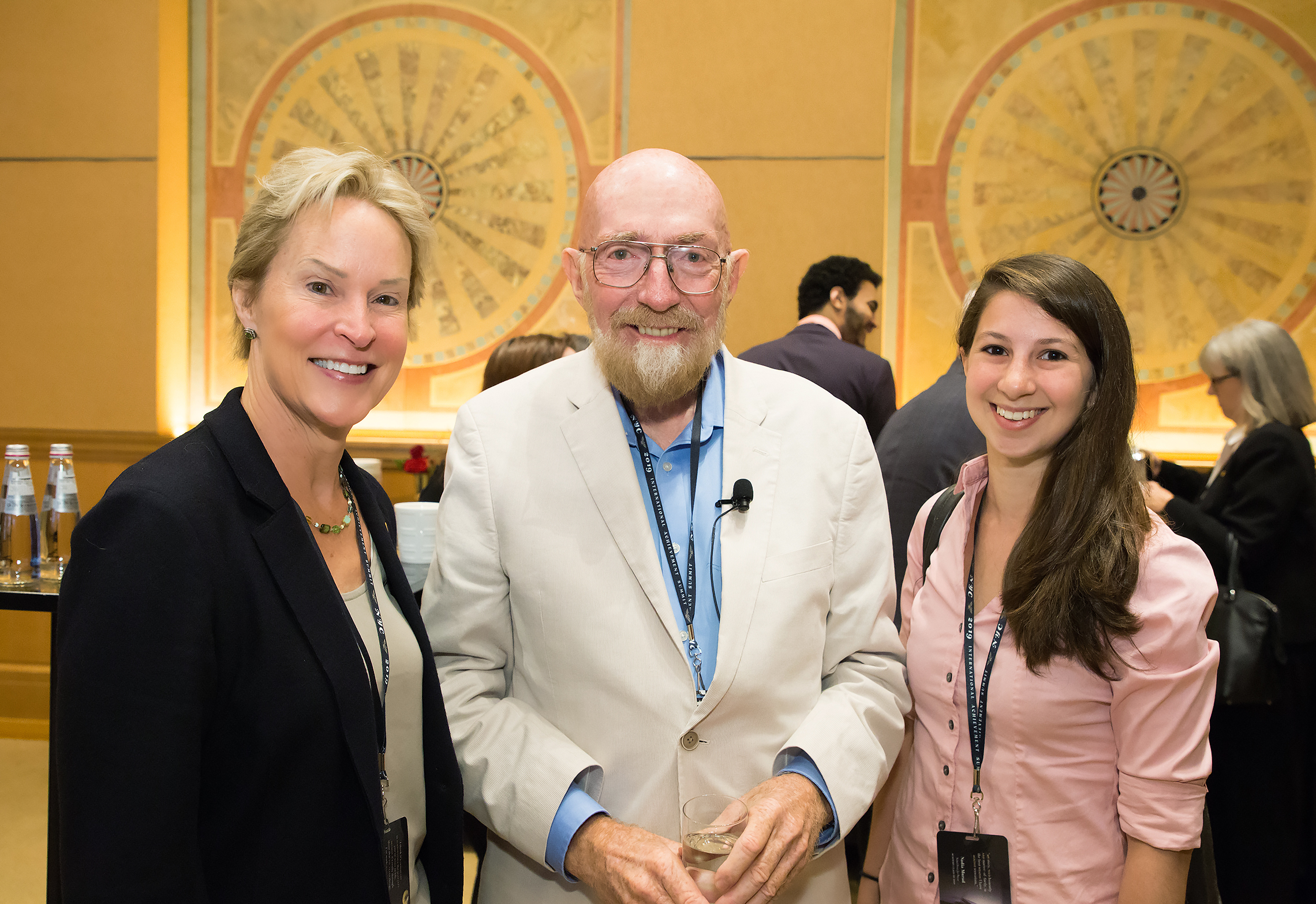
The first morning session of the Summit began with Dr. Donna Strickland, creator of the world’s most intense laser pulses. Strickland reflected that she is only the third woman to receive the Nobel Prize in Physics in the award’s 113-year history. Although she usually prefers to discuss the substance of her work, she took this occasion to address the issue of gender imbalance in the sciences. During a question-and-answer session, the Director of the National Institutes of Health, Dr. Francis Collins, supported her call for greater participation by women in making science policy and affirmed that he no longer participates in all-male panels or advisory bodies.
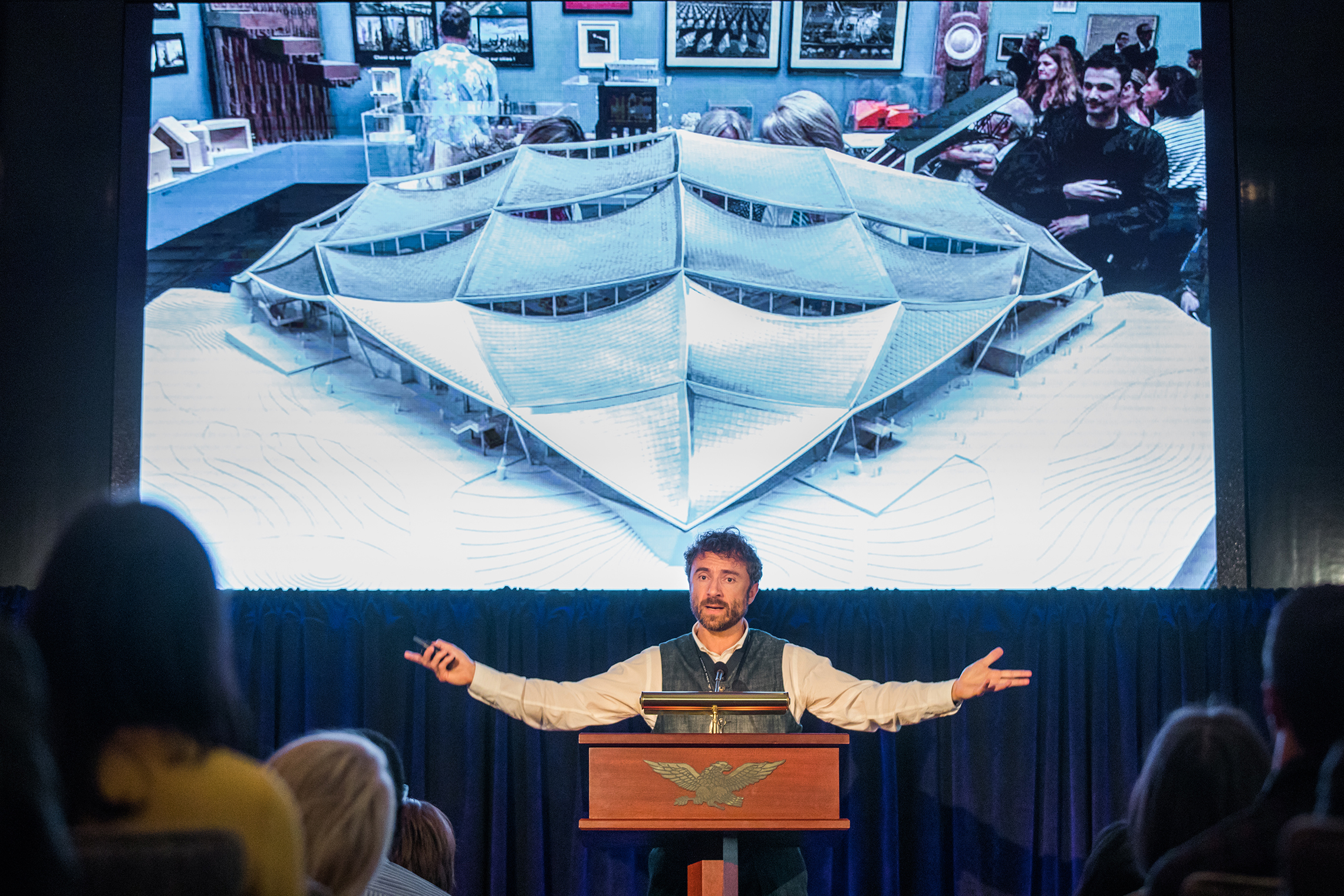
Attorney, author and entrepreneur Dr. Martine Rothblatt reflected on her extraordinarily varied career. The founder of the SiriusXM satellite radio system, she created a biotechnology company to find a cure for her daughter’s lung disease, which has since saved the lives of thousands around the world. As an attorney and author, Dr. Rothblatt has also been a successful advocate for the rights of the transgendered and is the author of visionary works on the subjects of xenotransplantation and cyber ethics. She reflected on the extraordinary good fortune of the present generations of men and women in comparison with the centuries of poverty and serfdom that most of their ancestors endured. She urged the Academy’s delegates to “use the skills you have to make life better for others,” and imagined the spirits of those long-dead ancestors saying, “For God’s sake, enjoy your life.”
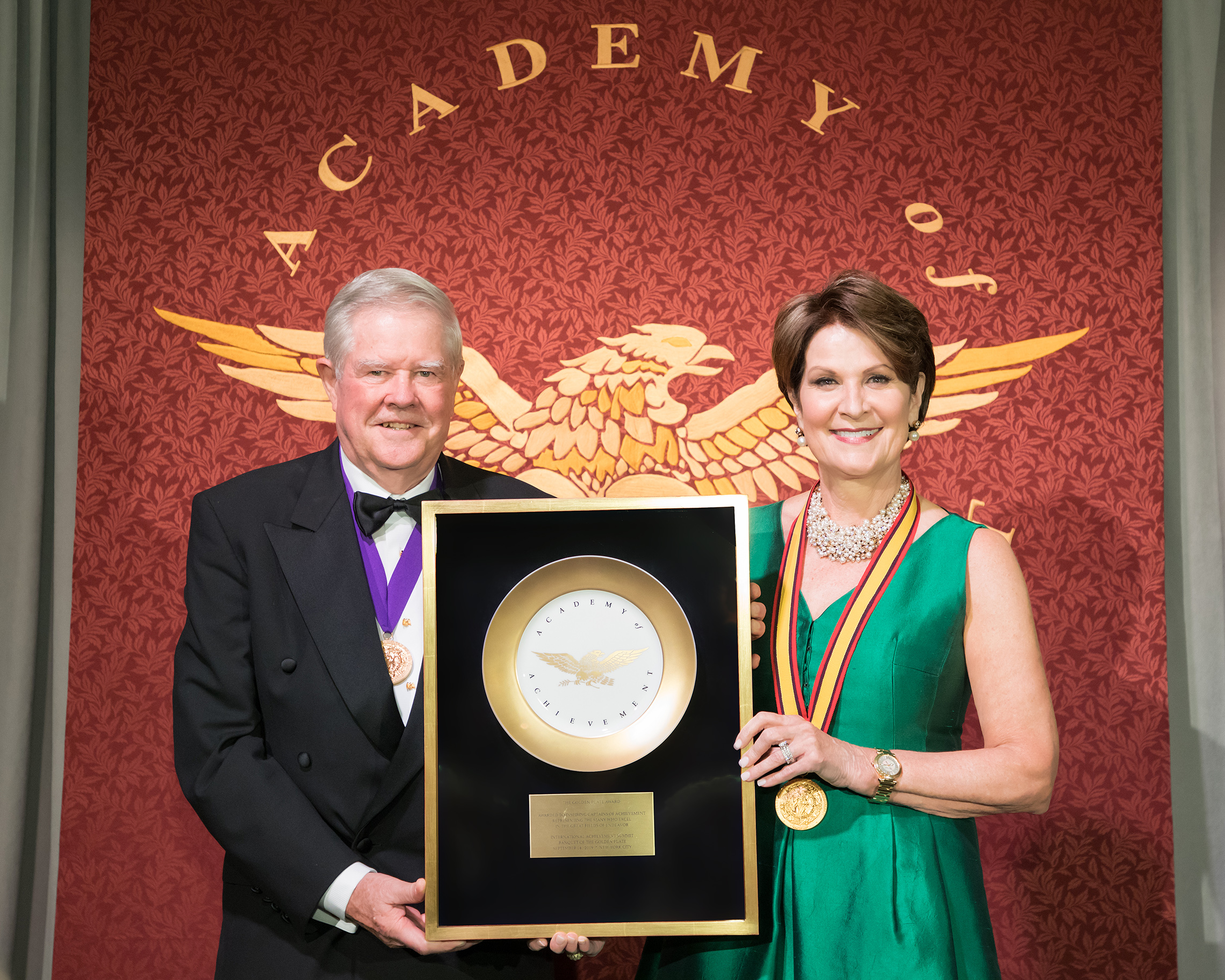
John Doerr, the Chairman of Silicon Valley venture capital firm Kleiner Perkins, gave an illustrated presentation of the management philosophy he learned from Intel founder Andy Grove. Called OKR — for “Objectives and Key Results” — it calls for managers to “set the right goals for the right reasons.” As one of many examples of OKR in action, he cited the efforts of Academy delegate Jini Kim.
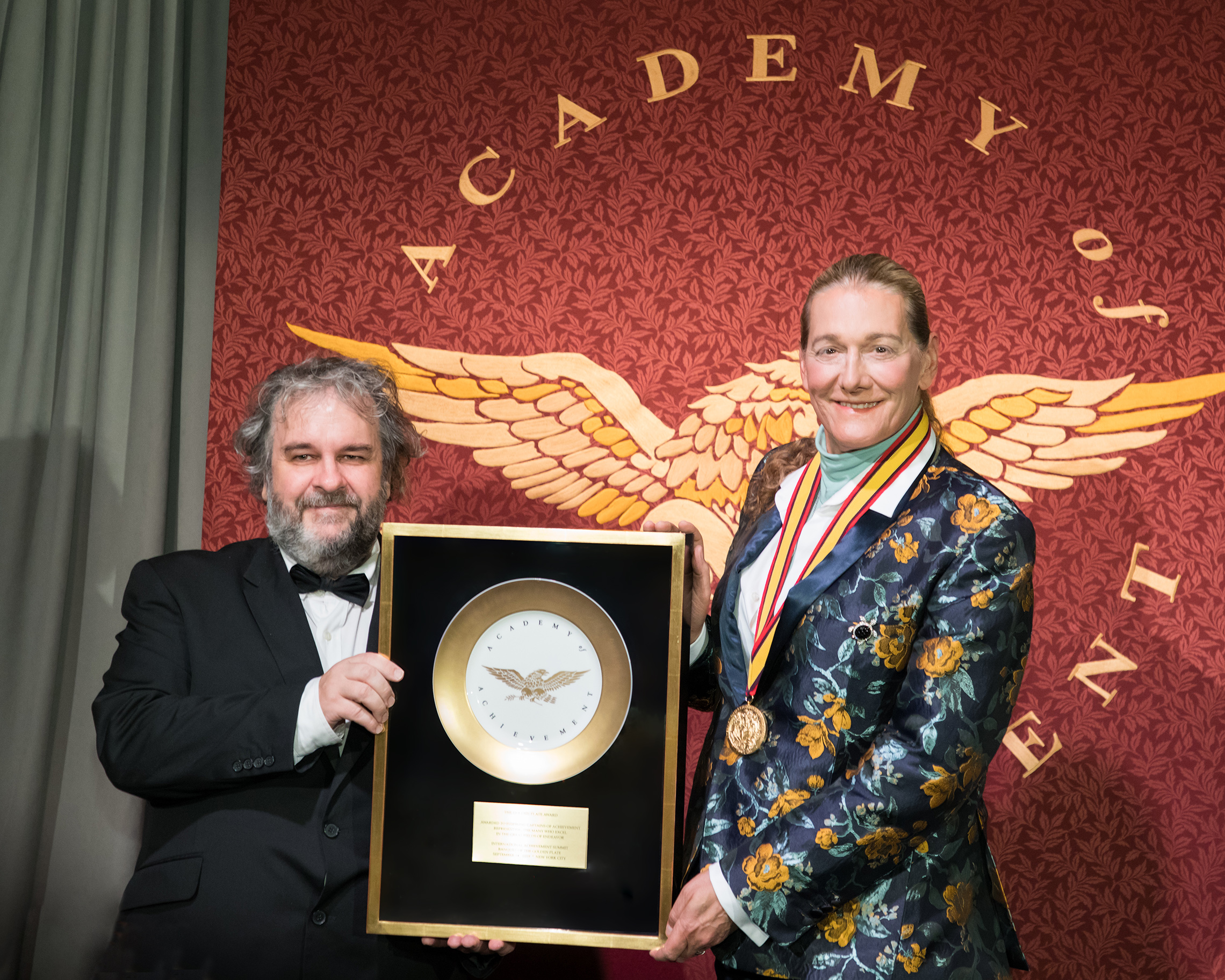
As a nine-year-old child, Kim had helped her Korean immigrant parents enroll in Medicaid to assist her autistic brother and save the family from bankruptcy. As an adult, Kim founded Nuna, a company that built Medicaid’s first centralized data warehouse, facilitating access to medical care for Americans of limited means. Doerr exhorted the Academy’s delegates to apply the principles of OKR in their own lives, setting realistic but meaningful objectives and establishing clear metrics for assessing their progress. He has provided every Academy delegate with a copy of his book Measure What Matters.
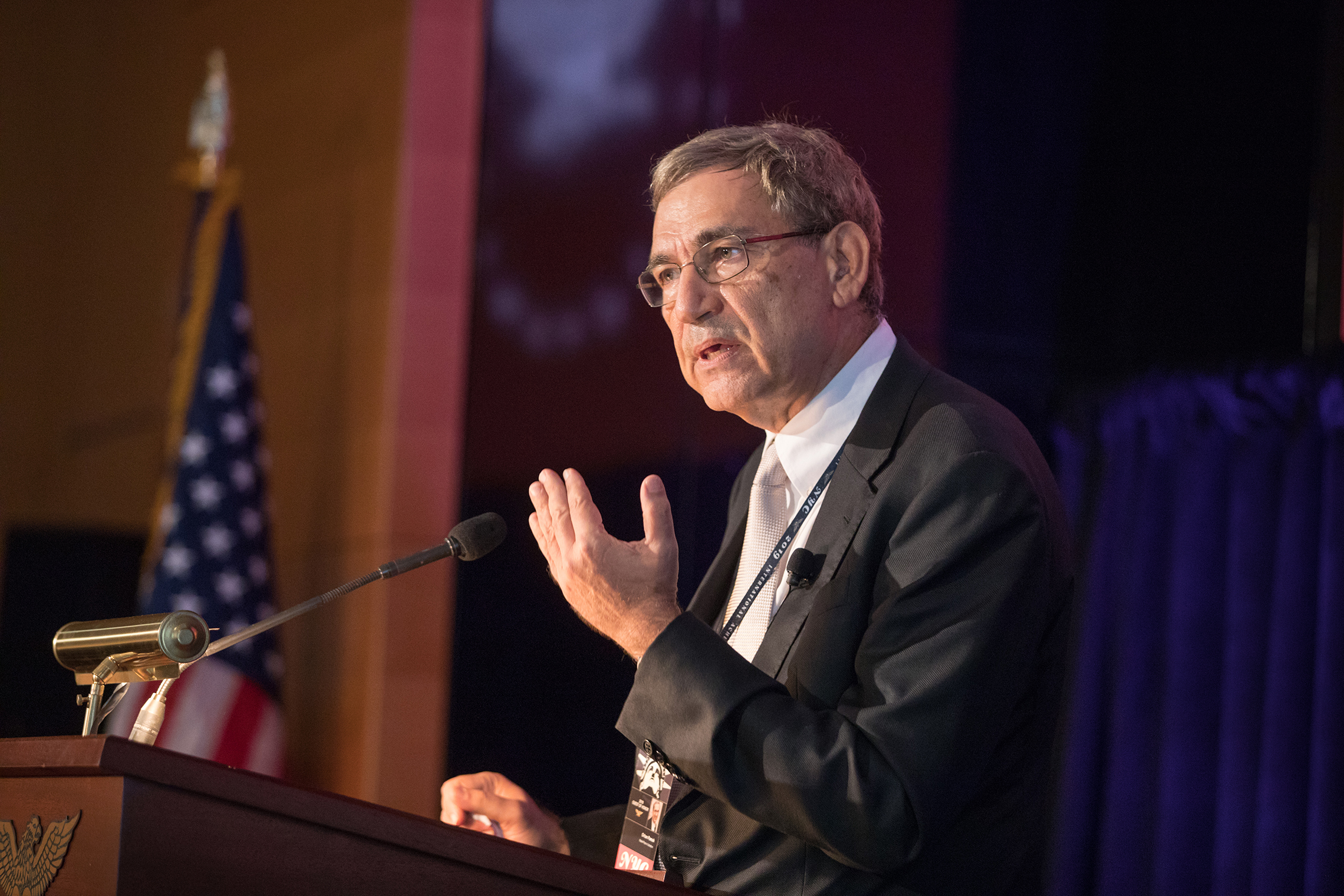
The next speaker of the morning was author T.J. Stiles, who received the Pulitzer Prize for Biography for The First Tycoon, a life of railroad magnate Cornelius Vanderbilt, and the Pulitzer Prize for History for his book Custer’s Trials, on the life of the controversial Civil War general who died at the Little Bighorn. In recounting his own trials, Stiles recalled the words of his revered martial arts master, who told him, “If you want to climb to the top, you have to cry the whole way.”
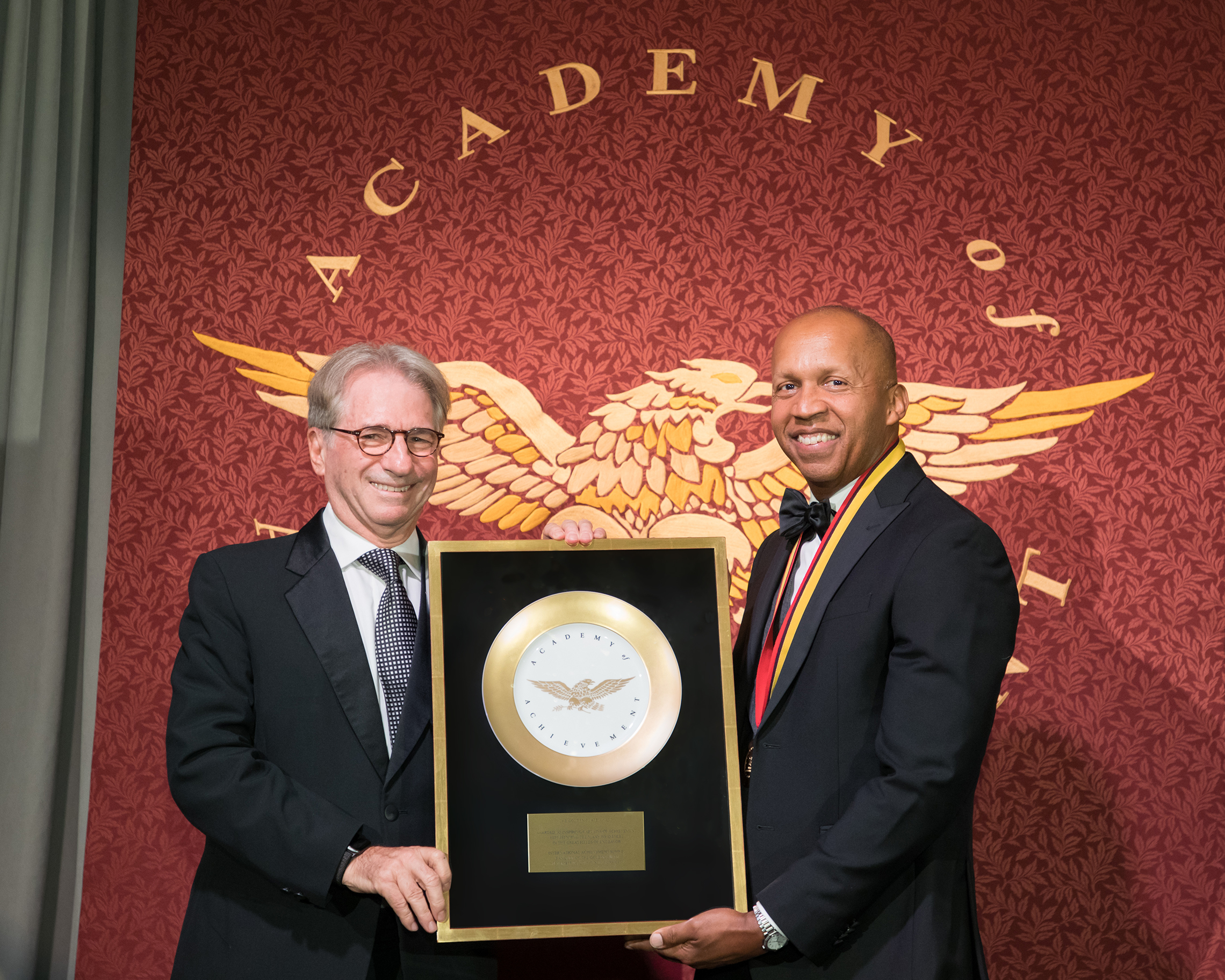
Another tale of perseverance in the face of even more extraordinary challenges was told by the next speaker, Leymah Gbowee, a recipient of the Nobel Prize for Peace. Gbowee successfully mobilized the women of Liberia to force the nation’s warlords to negotiate a peaceful settlement to the country’s brutal civil war. She recalled the enormous difficulties she had to overcome to pursue higher education in the United States, a world away from the simple village life she had known in Liberia. She has since assisted many young women from her country to travel the same road. With great humor and warmth, she recalled her experience traveling on an airliner in the United States, casually dressed among well-dressed businesspeople, and their astonishment when she received a message informing her that she had won the Nobel Prize.
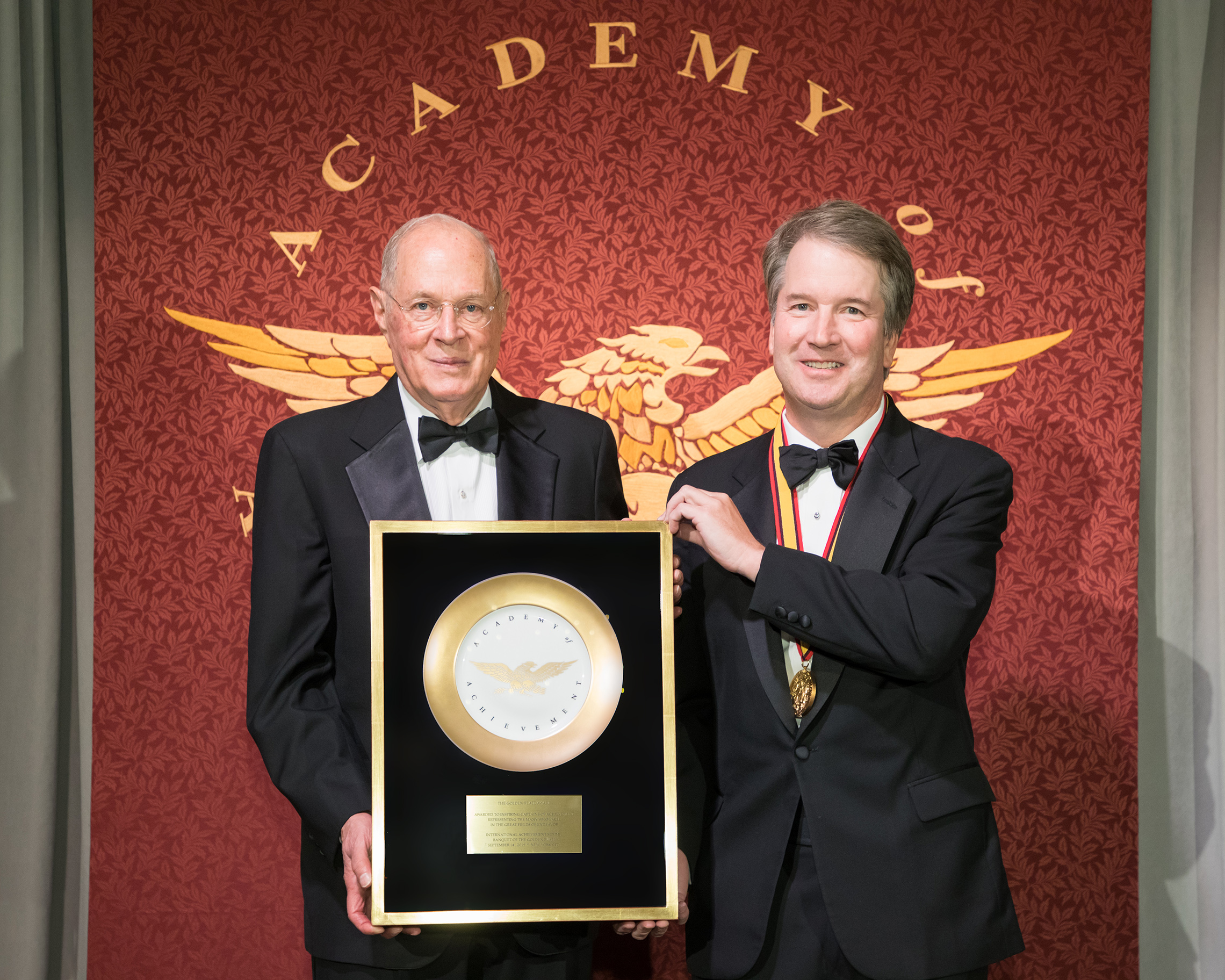
The final speaker of the Saturday morning session was Dr. Kip Thorne, whose theories and discoveries inspired the film Interstellar. Dr. Thorne received the Nobel Prize in Physics for his work leading to the discovery of gravitational waves — disturbances in the curvature of space-time. Thorne conceived the experimental framework for detecting gravitational events of this kind and campaigned forcefully for the construction of the Laser Interferometer Gravitational-Wave Observatory (LIGO). In his address to the Academy, Dr. Thorne recalled the skepticism he encountered on the way to building a 1,000-member team to staff the experimental facility. The first evidence of a gravitational wave, in 2016, confirmed a prediction Albert Einstein had made in his general theory of relativity 100 years earlier. Today, gravitational waves are observed on a regular basis and can be tracked on any smartphone with the app Gravity Events. An engaging and compelling speaker, Dr. Thorne easily conveyed the excitement of his area of astrophysical research.
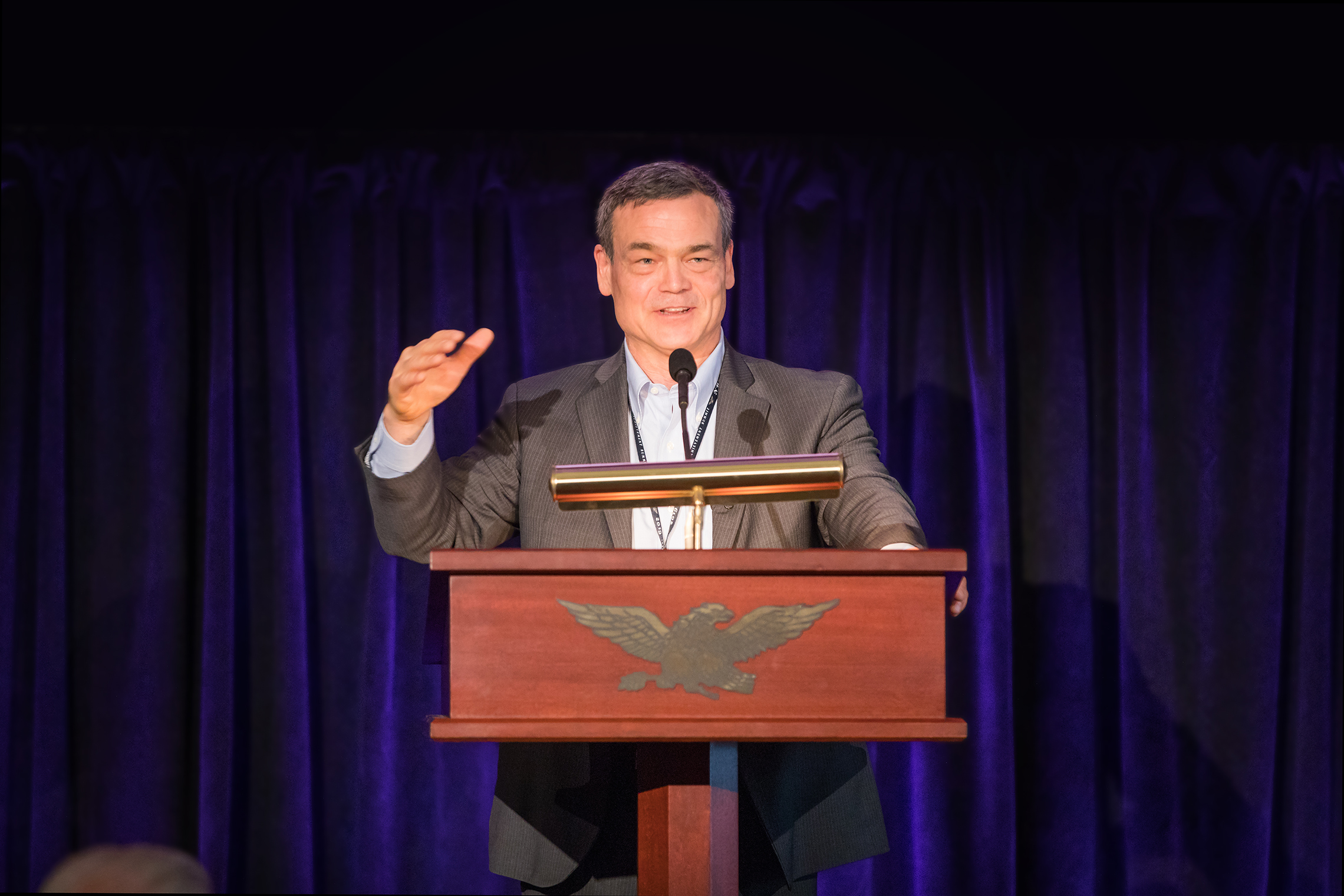
The first speaker of the Summit’s afternoon session, Paul Tudor Jones, founded the Tudor Group of investment companies, as well as Robin Hood, the New York-based foundation dedicated to directly addressing issues of childhood poverty in the nation’s largest city. Jones attributed many of society’s present ills to the identification of profit maximization as the sole responsibility of business management. Jones believes that the application of this philosophy to management justified a culture of unchecked greed that led to massive job outsourcing, the opioid crisis, and a 500-percent increase in wealth disparity since 1970. “Business is too important not to be an agent of change,” he said.
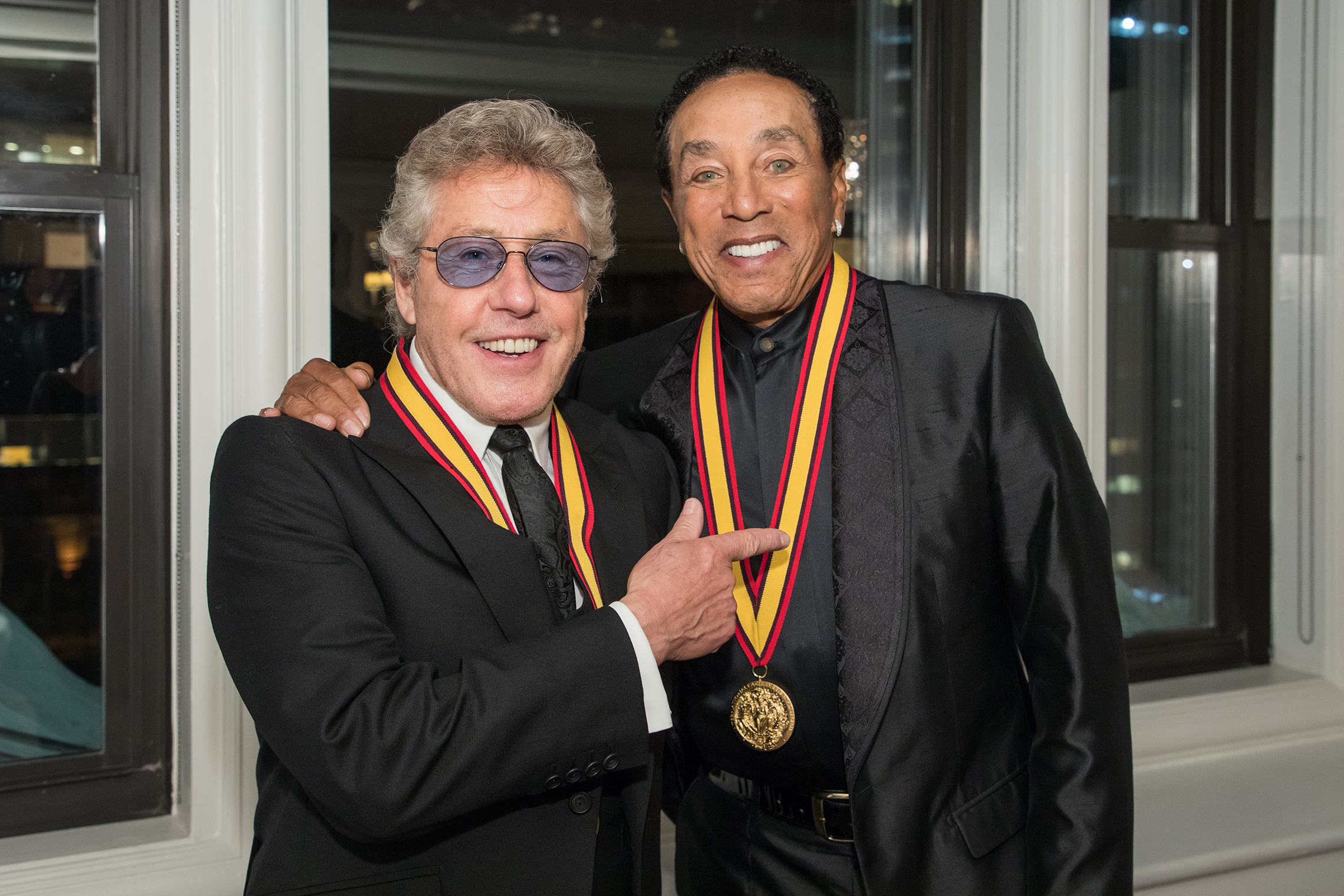
Noting that in the United States, the private sector is four times larger than government and 40 times larger than philanthropy, he proposed a model of “venture philanthropy” based on Andy Grove and John Doerr’s concept of OKR. To create an index of social responsibility for the socially conscious investor, he found that given a choice, people are drawn to companies they believe serve the interests of employees, customers, communities, and the planet.
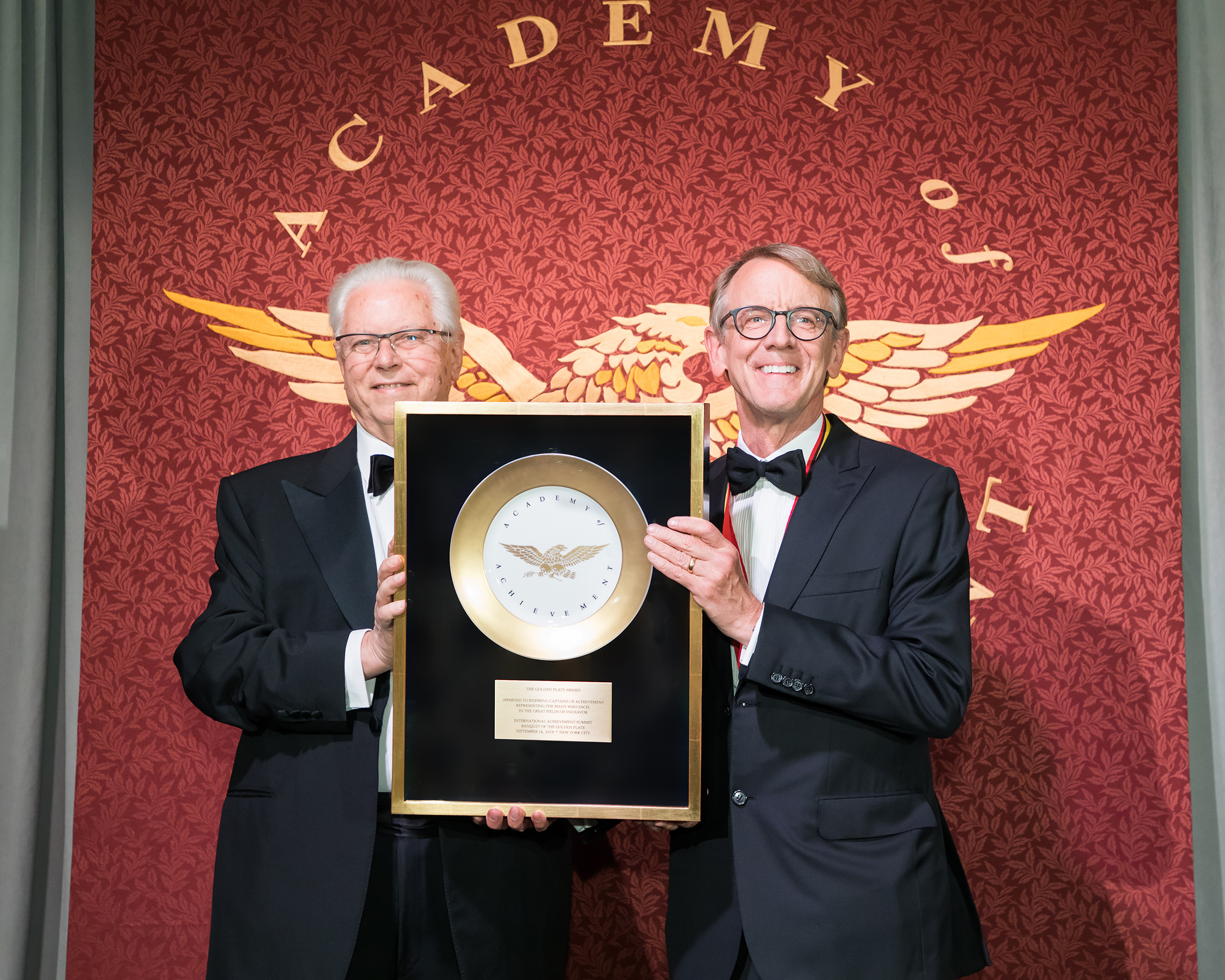
The fantastically imaginative designer Thomas Heatherwick gave a detailed illustrated presentation of his work. As a student, he became frustrated with the uniformity of modern architecture and set out to build something new and more interesting himself, although he had no formal training in architecture. Following his own axiom, “It’s better to be weird than boring,” he designed what described as “a giant tent” made of solar panels. As an example of his innovative design process, he demonstrated how he repurposed a complex of 90-year-old grain silos in Cape Town, South Africa into the building that now houses the city’s Zeitz Museum of Contemporary Art.
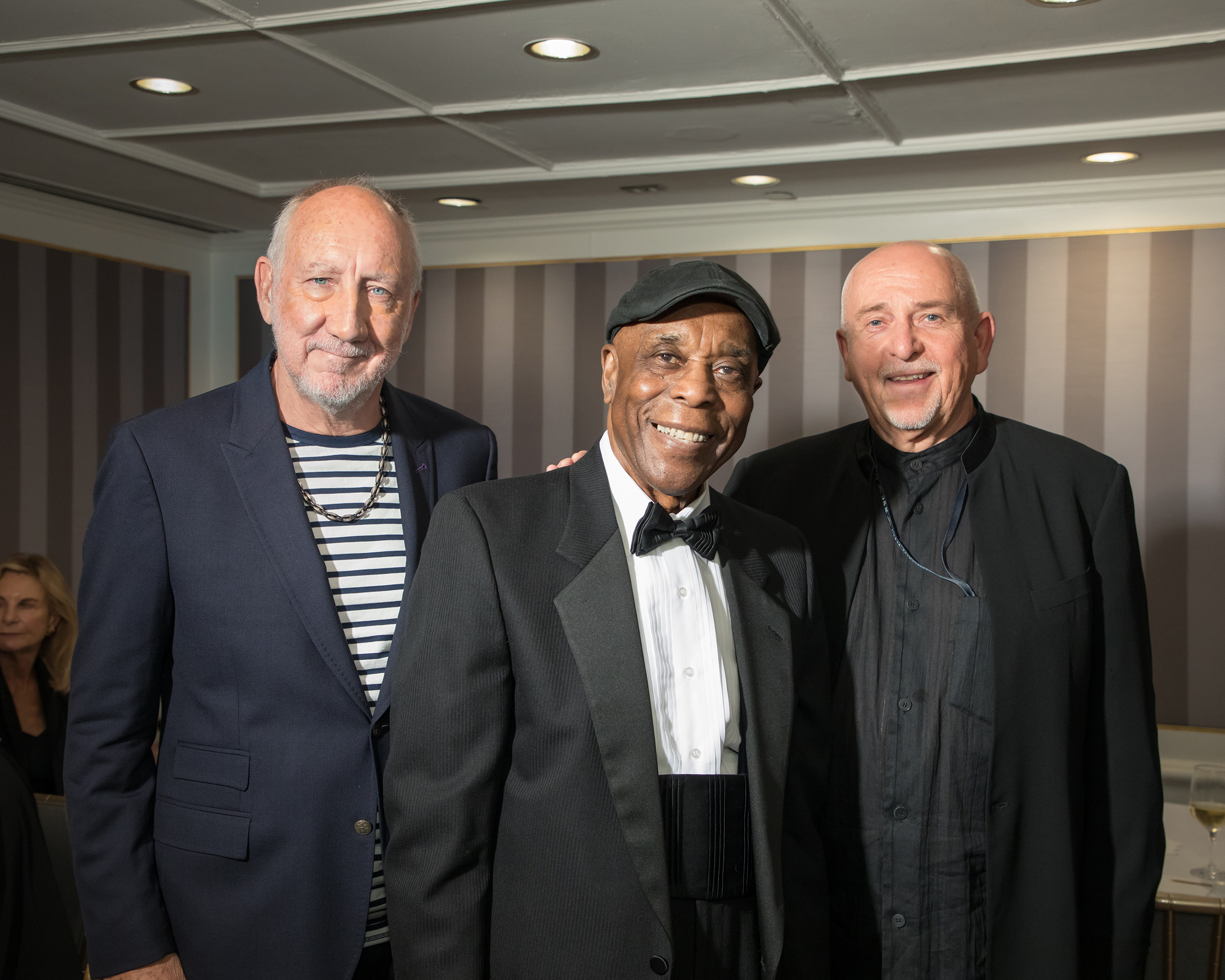
Since winning the Nobel Prize for Literature, the Turkish novelist Orhan Pamuk has often been asked why he writes. In his address to the Academy, he shared a list of reasons, ranging from “I write because I love the smell of ink and paper” to “I write because I am so angry at everyone.” In surveying the world today, he suggests that a fear of humiliation is the driving force behind many conflicts. A novel, he said, teaches “a secret hierarchy of values,” in the “childish hope” of finding that we all resemble one another more than we know. “I believe in the novel more than anything,” he said. “My religion is literature.”
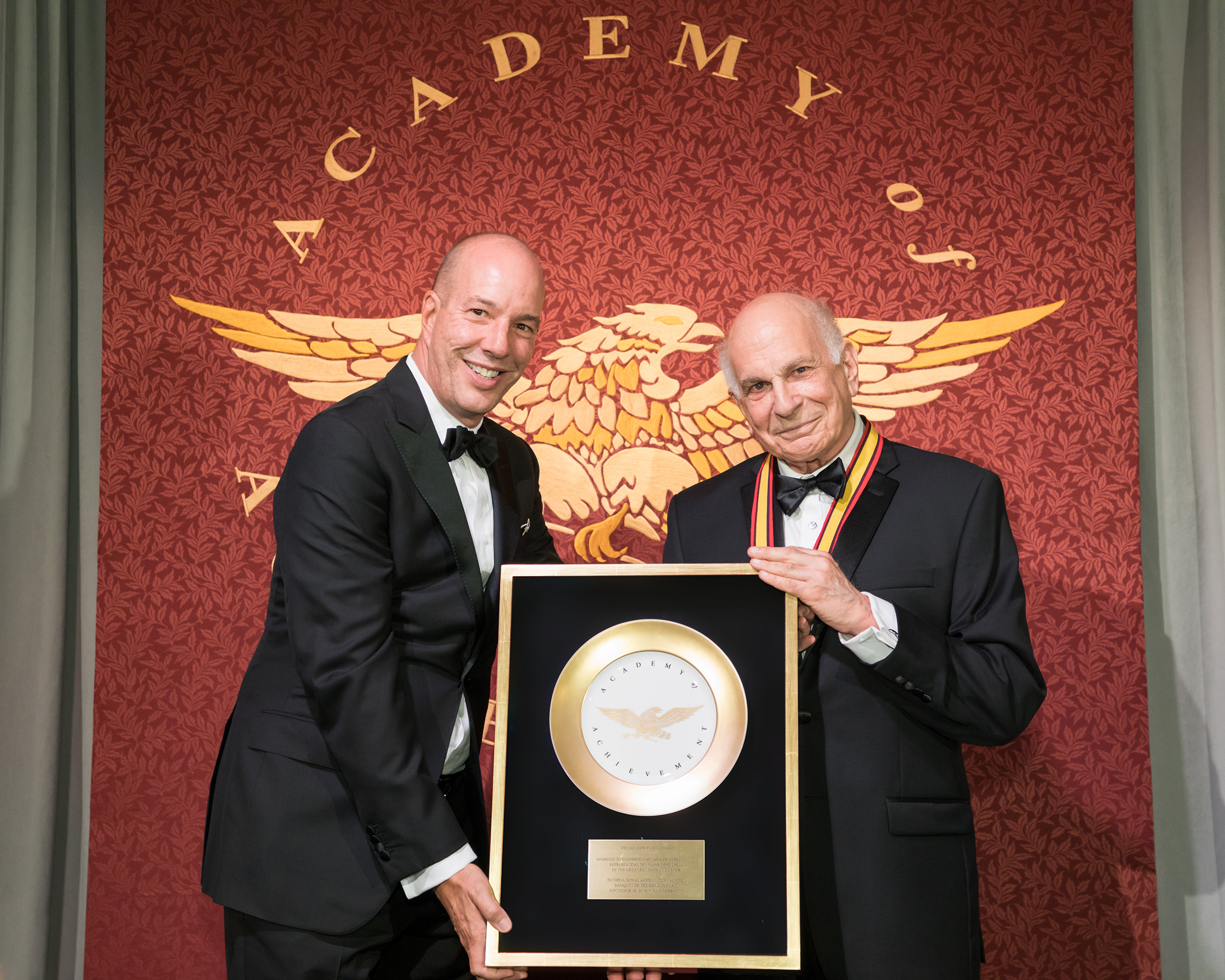
Art of another kind came up for discussion as Steven Tyler, the lead singer of Aerosmith, took the stage. The child of a musical family, he recalled lying under the family piano as his father practiced scales overhead. Reflecting on his own early struggles to make it in the music business, he stressed the importance of finding collaborators. In Joe Perry and the other members of Aerosmith, he found comrades who were willing to sacrifice all else to pursue their dreams of musical glory. Reflecting on the excess of their early years, he quipped, “Of all the things I’ve ever lost, I miss my mind the most.” Taking questions from the audience, he said, “I got my dream — to make others happy, even when I wasn’t.”
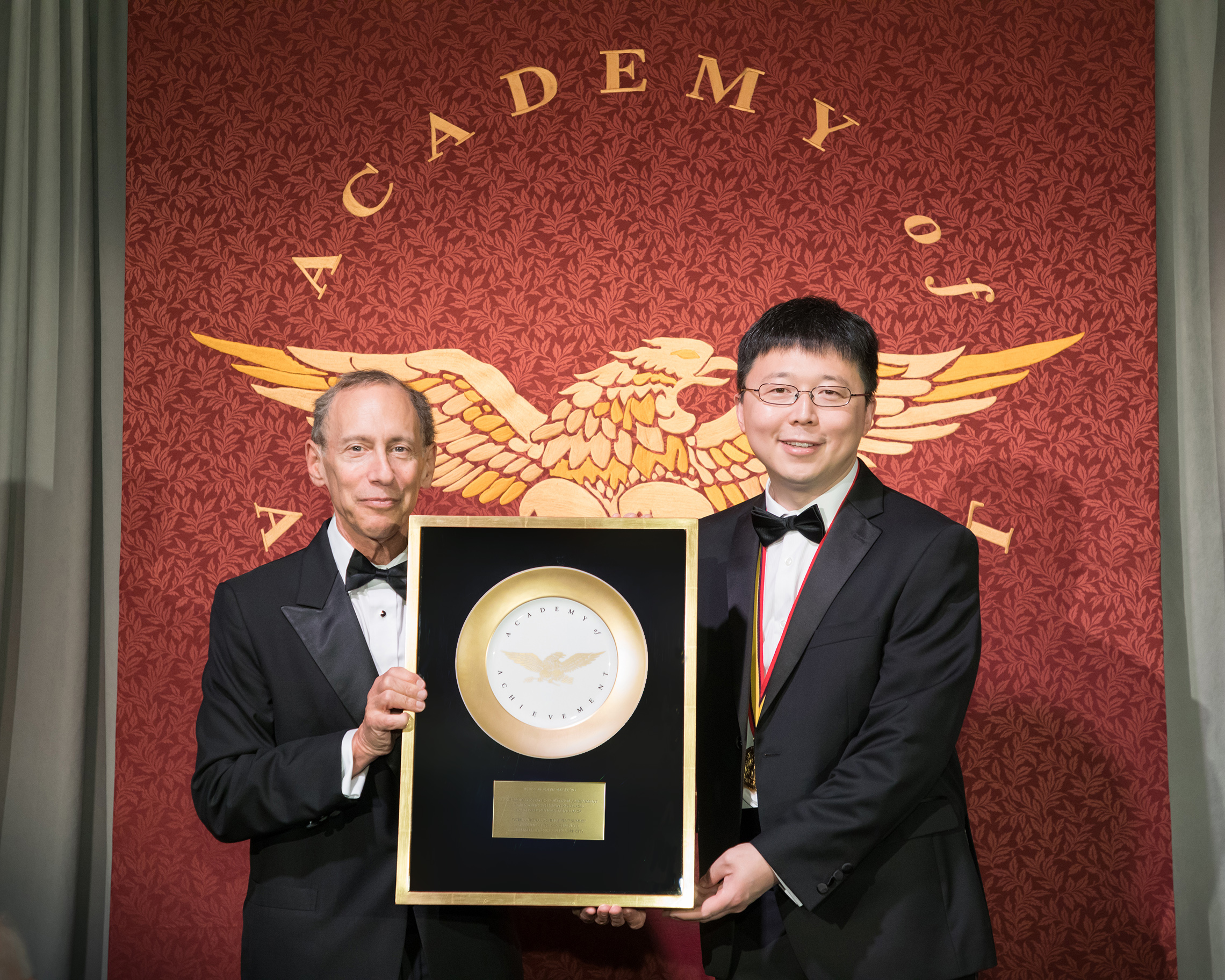
The Librarian of Congress, Dr. Carla Hayden — also the daughter of classical musicians — described herself as “an accidental librarian.” As a young liberal arts graduate, she spent her days in the library between job interviews, until a friend tipped her off about a job in a South Chicago branch library, where she was encouraged to get a graduate degree in library science. When President Obama asked her to assume leadership of the Library of Congress, the world’s largest library, he tasked her with making the treasures of the library more accessible to the public. She enumerated a few astonishing examples of the library’s vast holdings, including the contents of Lincoln’s pockets the night he died, and locks of hair from the heads of Thomas Jefferson and Ludwig van Beethoven.
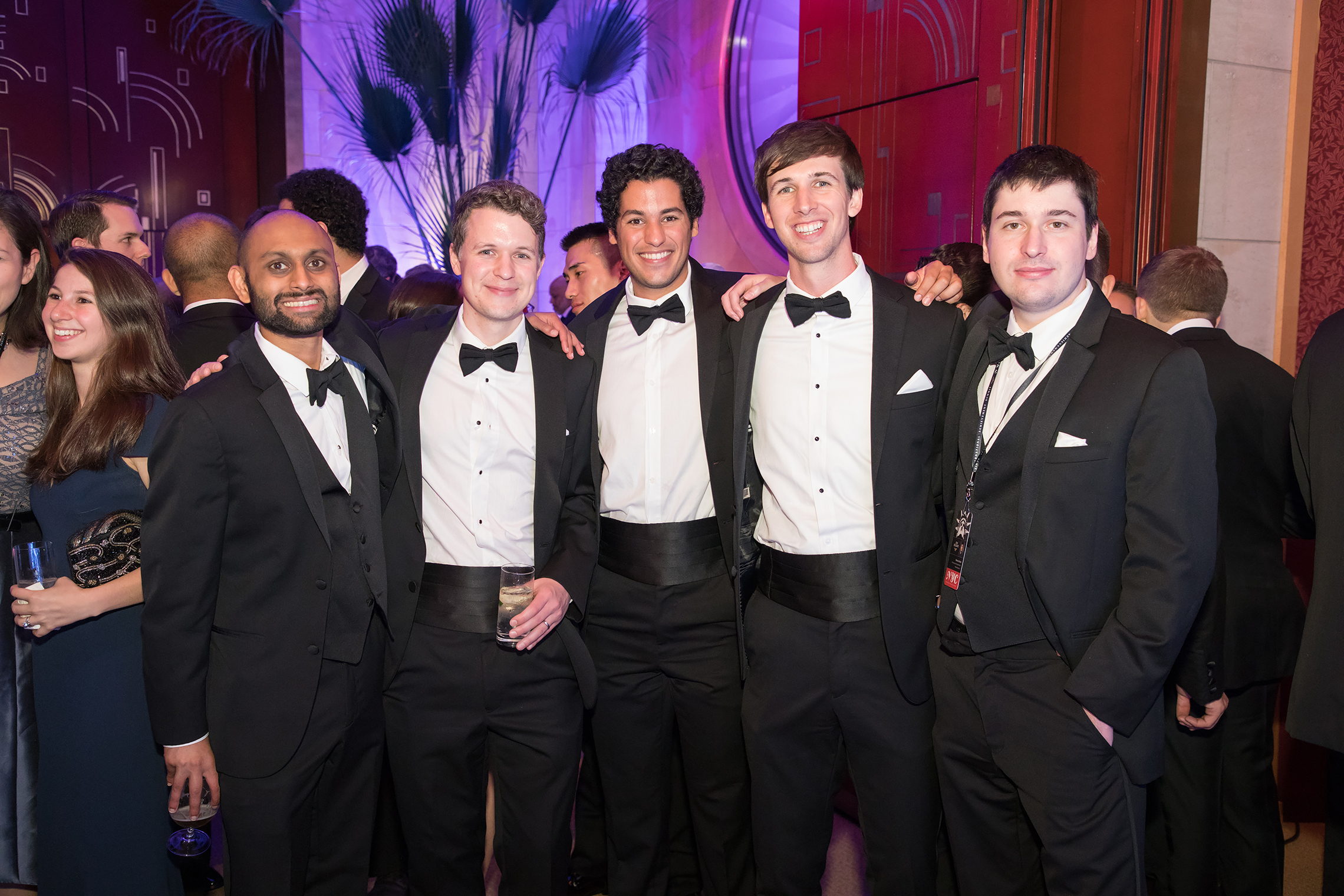
Civil rights attorney Bryan Stevenson recounted how he began his education in a segregated school system where there was no high school for black students. At age 16, as an outstanding high school student, he participated in the Academy of Achievement’s annual Summit. It was the first time he had ever traveled from his small town, and the experience inspired him to go to college. He chose law school, he said, because graduate studies in any other field have undergraduate requirements, but “You don’t have to know anything to go to law school.”
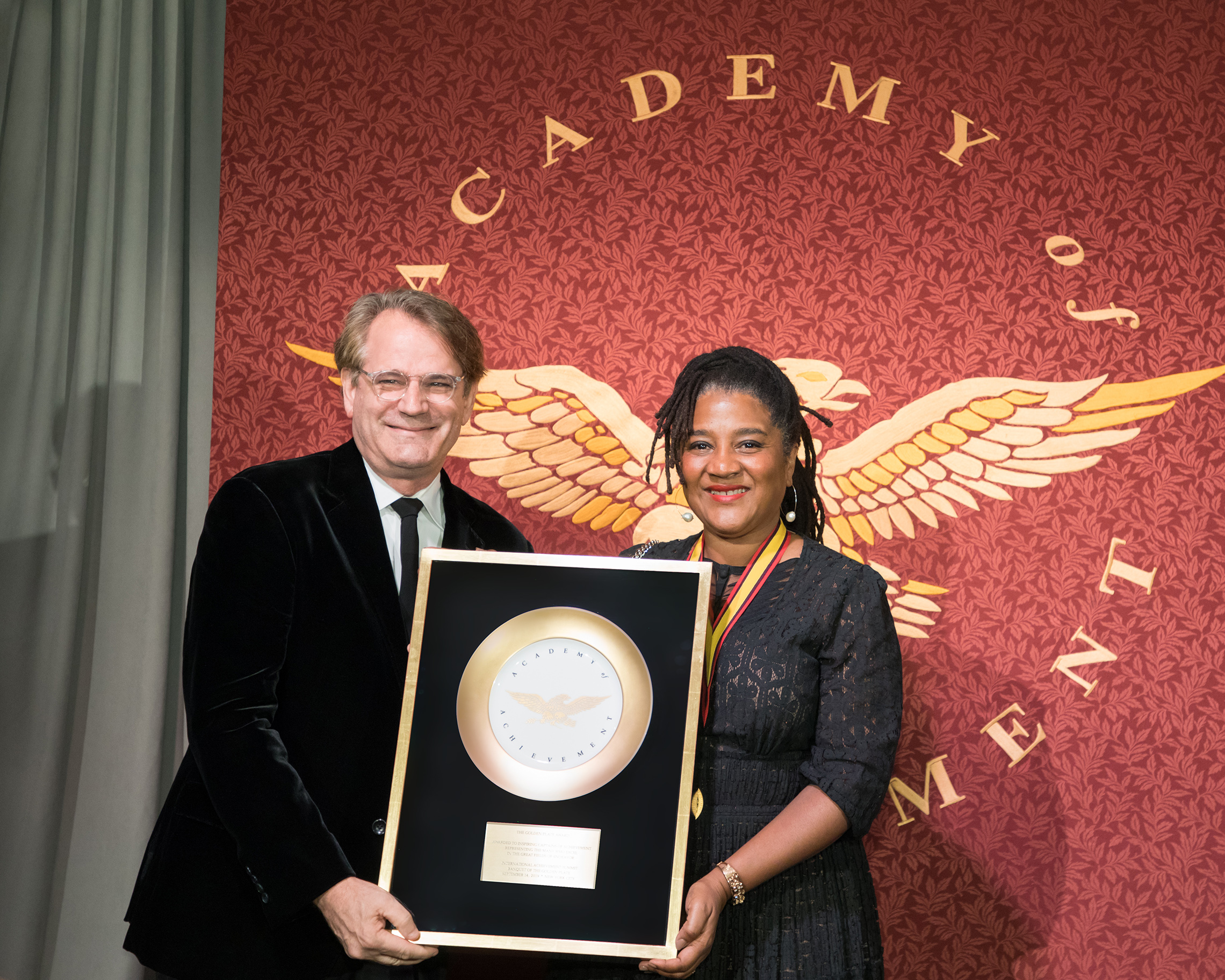
Stevenson’s law practice has focused on the disproportionate prosecution and sentencing of impoverished Americans and defendants of color. The number of incarcerated Americans has grown from 300,000 to 2.2 million since 1972, he observed, and the United States now has more imprisoned citizens than any country in the world. It is estimated that one in every three African American males will face the prospect of incarceration at some point in their lives. His organization, the Equal Justice Initiative, has won major legal challenges to unjust and excessive sentencing in criminal cases.
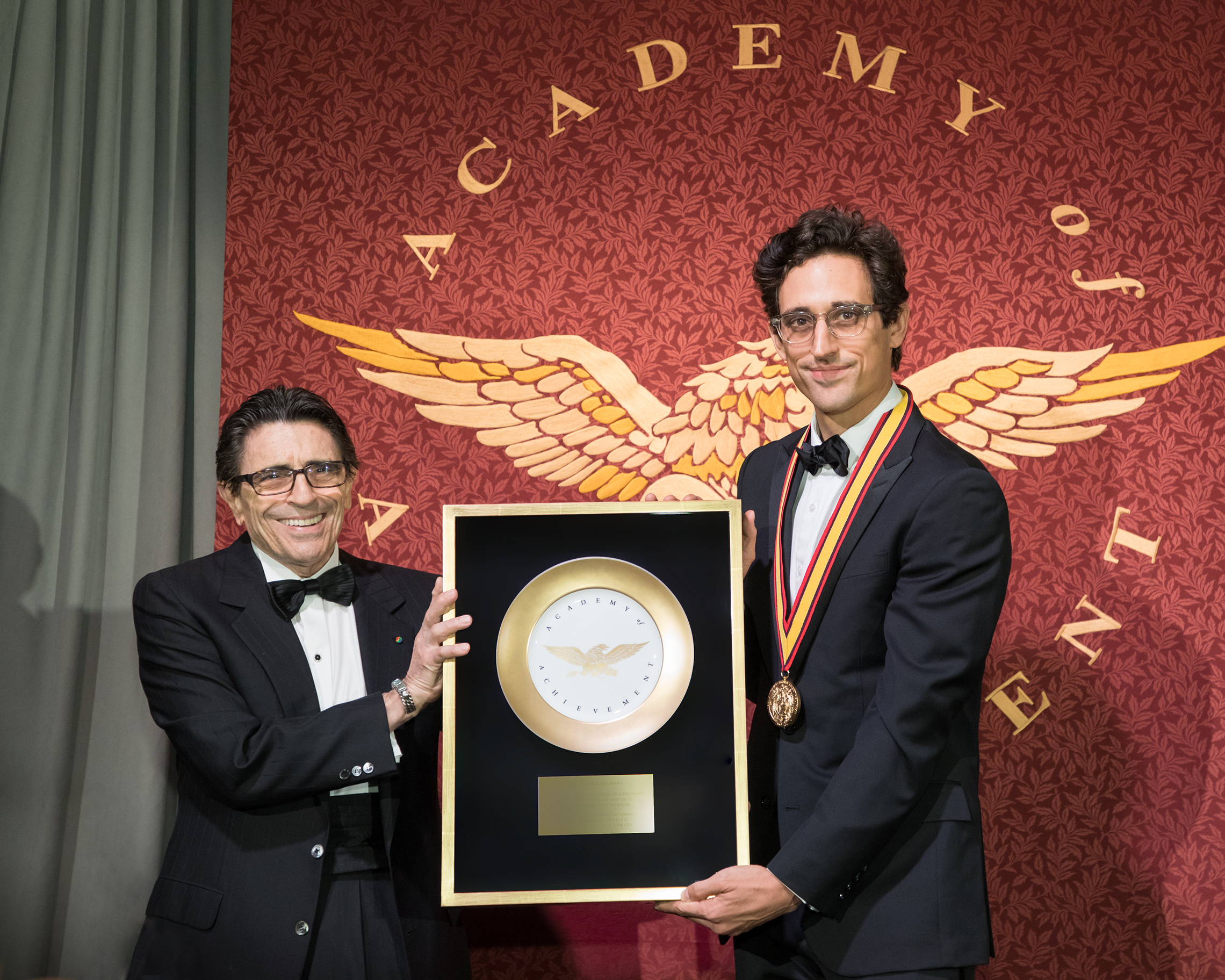
Stevenson also led the drive to create the National Memorial for Peace and Justice in Montgomery, Alabama, commemorating thousands of victims of racist violence. The Great Migration of African Americans from the rural South to the urban North in the 20th century was a movement of refugees fleeing terror, he asserted, and called for America to embrace a narrative of truth and justice, and consciously come to terms with the crimes of the past, as Germany was forced to do after World War II and the Holocaust. “Injustice prevails where hopelessness persists,” he said. “The opposite of poverty is not wealth, but justice.”
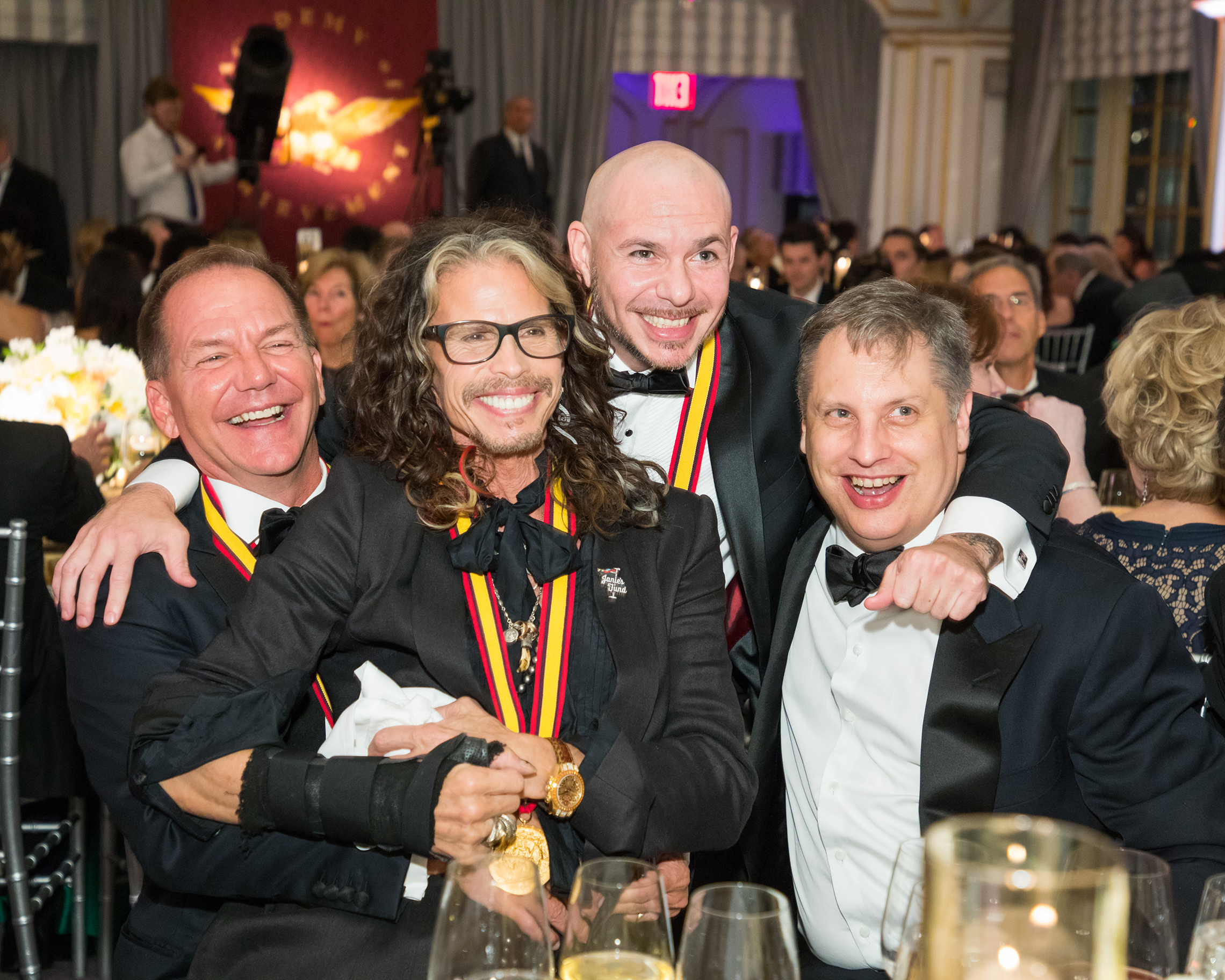
On a lighter note, Armando Christian Pérez, the rapper, producer and entrepreneur known as “Pitbull,” gave an exuberant account of his unlikely rise in the Miami music scene. He recounted the experiences of his parents as refugees from Cuba, his own troubled youth as a high school dropout, and his redemption through the universal language of music. “We all speak music,” he said.
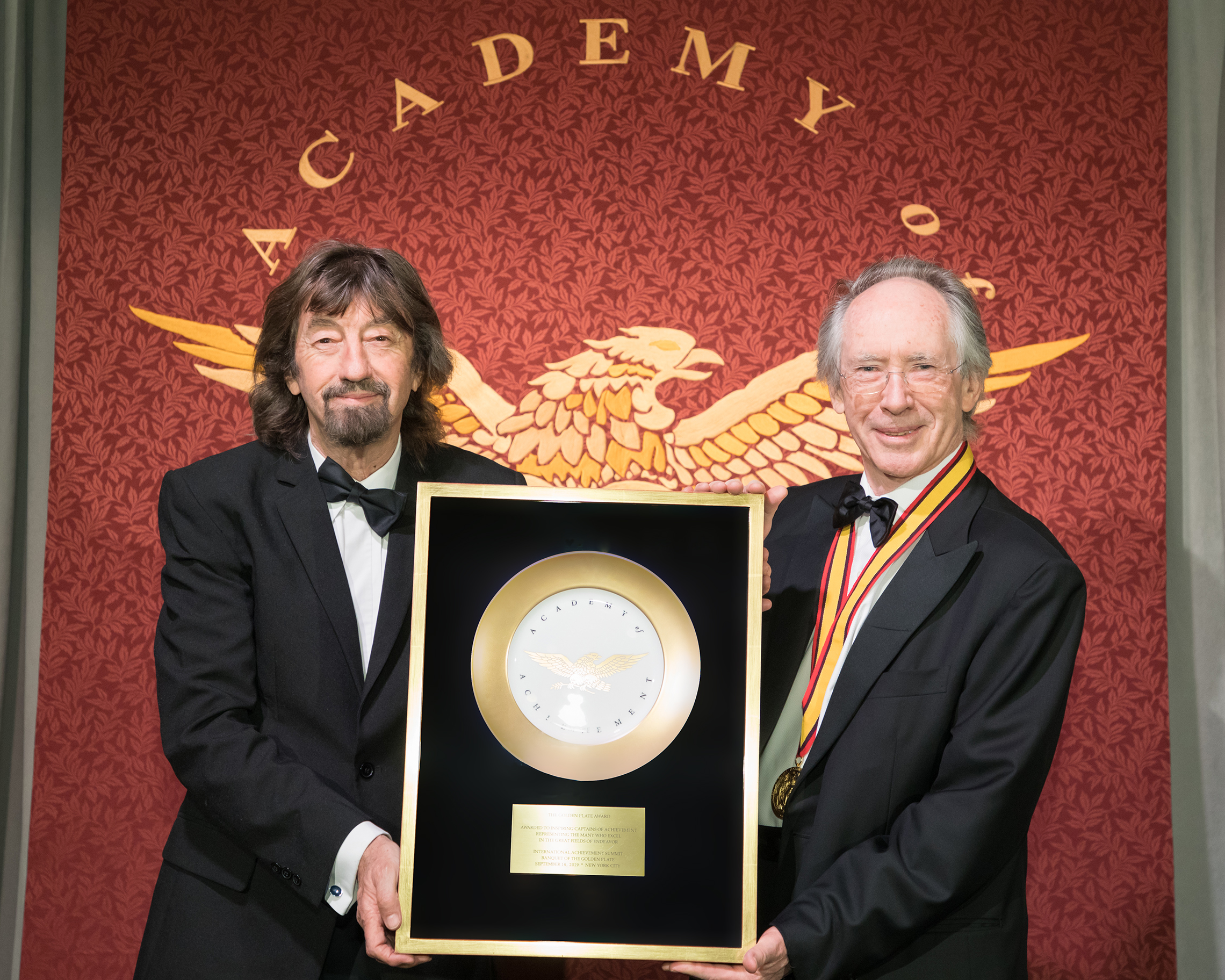
He enjoyed some good-natured jabs at his own industry. “The beautiful thing about the music business is half of them don’t know music and half of them don’t know business.” He also discussed the charter school he has created, with its Sports, Leadership, Arts and Management (SLAM) curriculum. Recalling the struggles of his forebears, he quoted the Cuban aphorism “Pasos cortos, visión larga” — “Short steps, long vision.”
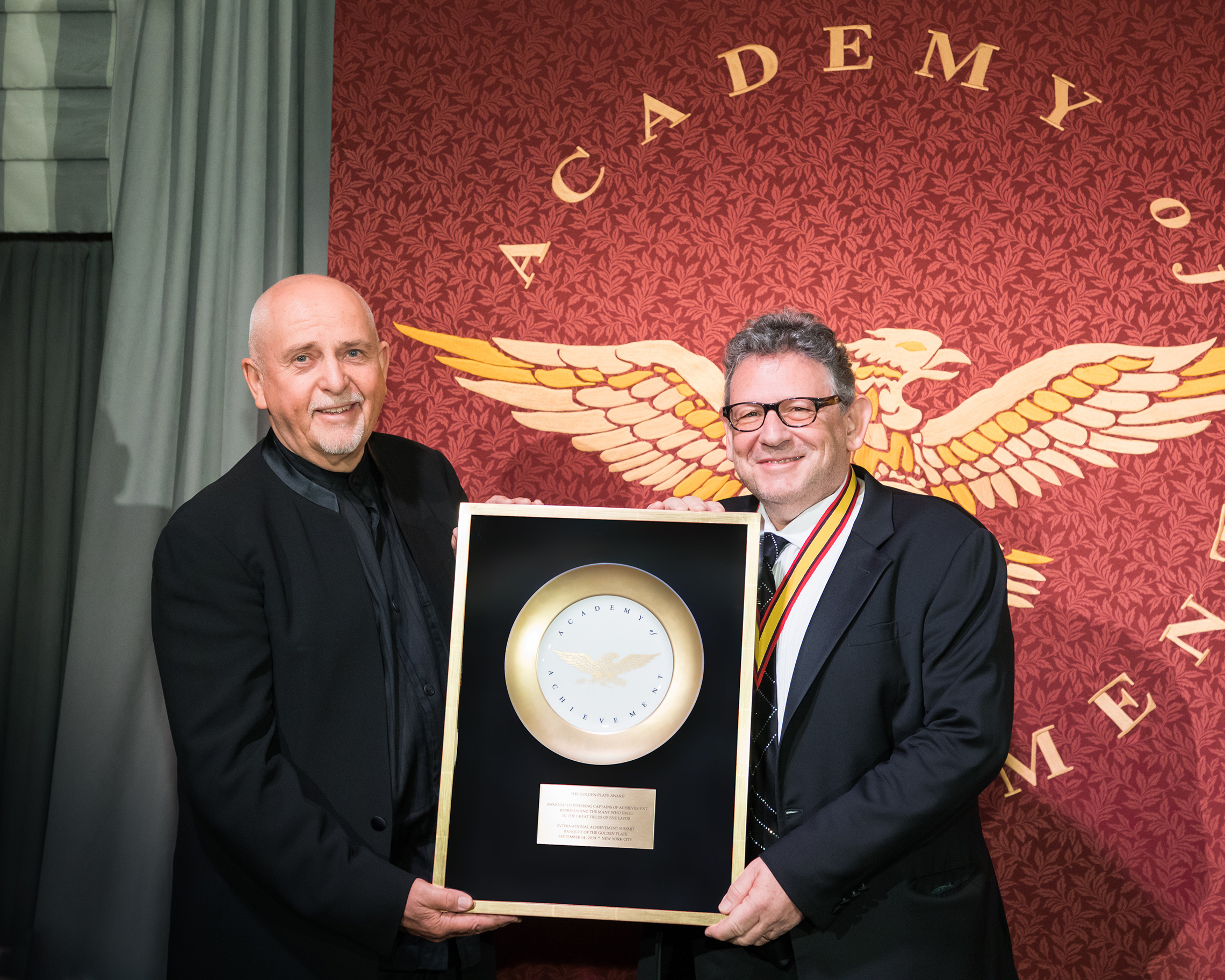
Supreme Court Justice Brett Kavanaugh began his address by joking, “When I was invited, I said I would only come if I could follow Pitbull.” The Justice spoke warmly of teachers and mentors who had the greatest influence on him. As a recent law school graduate, Kavanaugh clerked for Justice Anthony M. Kennedy, and he praised Justice Kennedy’s deep learning as well as his example of unfailing civility on the bench.
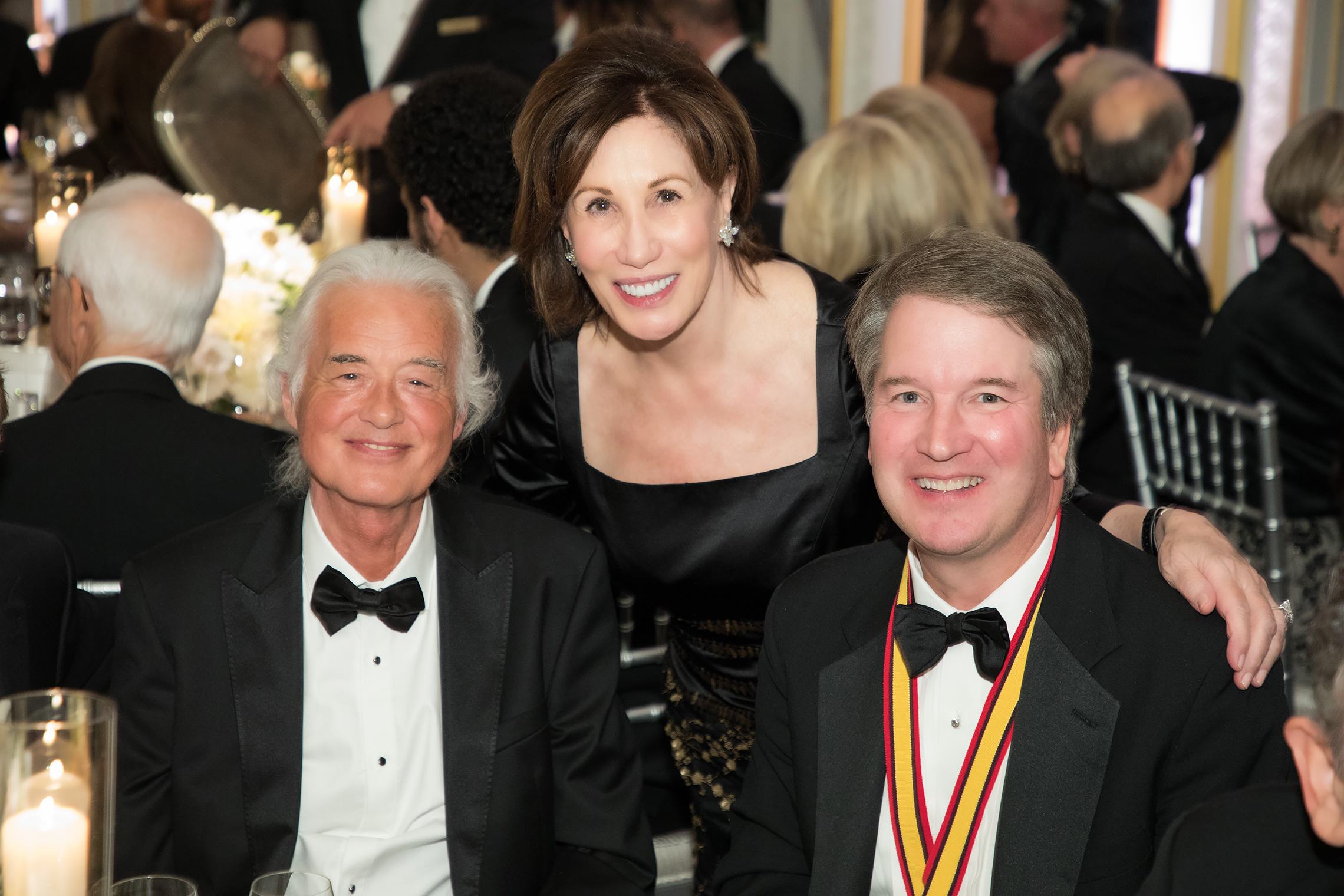
Among his teachers, he cited the priest who explicated the Bible verse Matthew 25:35, “When I was hungry, you fed me…” as the inspiration for his pursuit of public service. He spoke of the rewards of providing direct help to someone in need, such as by serving food in a homeless shelter, as he has continued to do while serving on the Court. In discussing his commitment to diversity in the judiciary, he recalled the influence of his mother, a schoolteacher who later went to law school and eventually became a judge. Kavanaugh is the first Justice on the Supreme Court to hire an all-female staff of law clerks. He announced proudly that the majority of the Court’s clerks are now female.
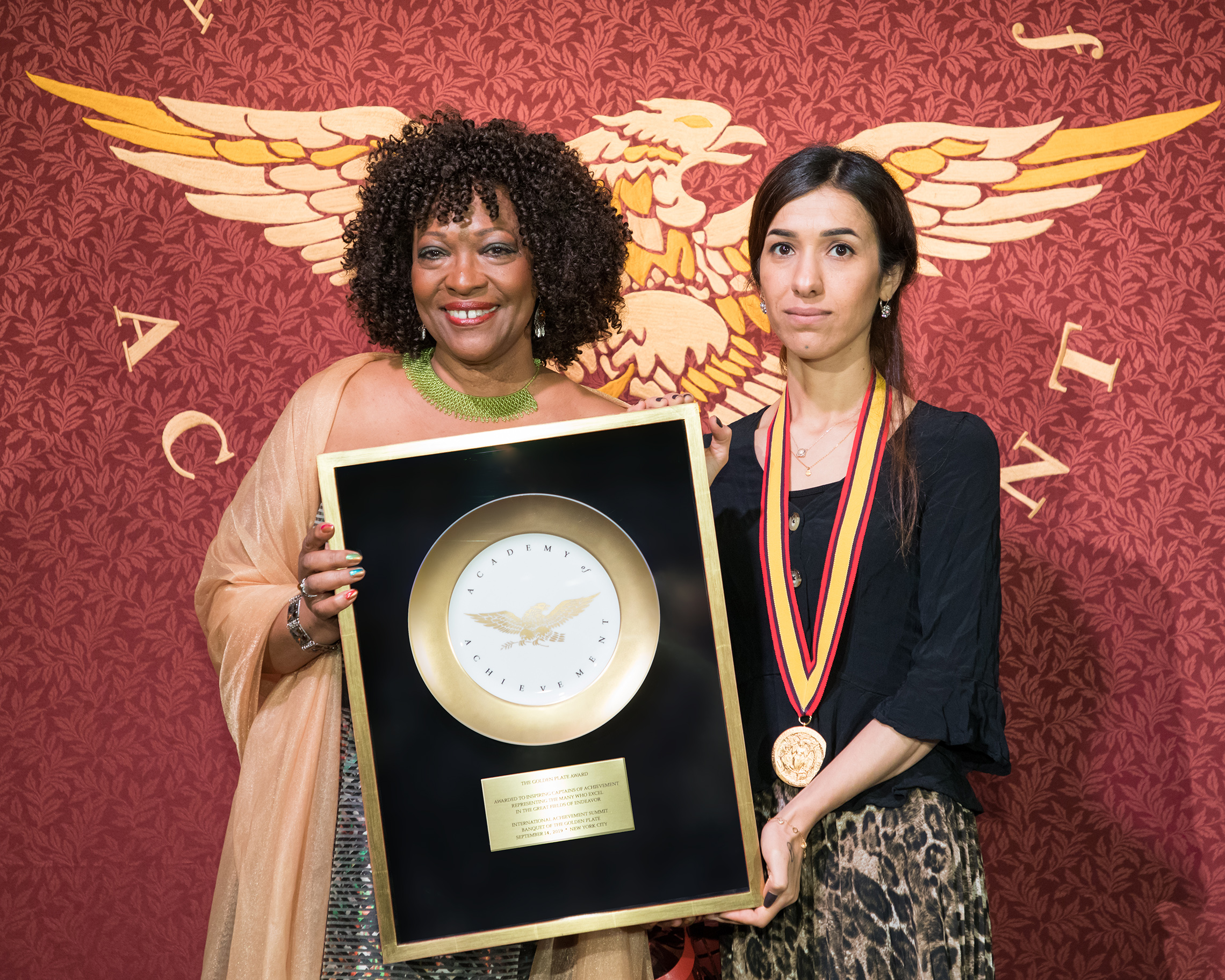
Nadia Murad, a recipient of the 2019 Nobel Prize for Peace, is a Yazidi woman who was kidnapped by ISIS in Iraq and escaped to become an advocate for survivors of war crimes and human trafficking. When asked who inspires her, she says that everyone she meets inspires her. The world leaders she meets fall into two categories: those who understand her story empower her in her work, and those who cannot understand her story inspire her to continue, “Because I can’t let them decide our fate.”
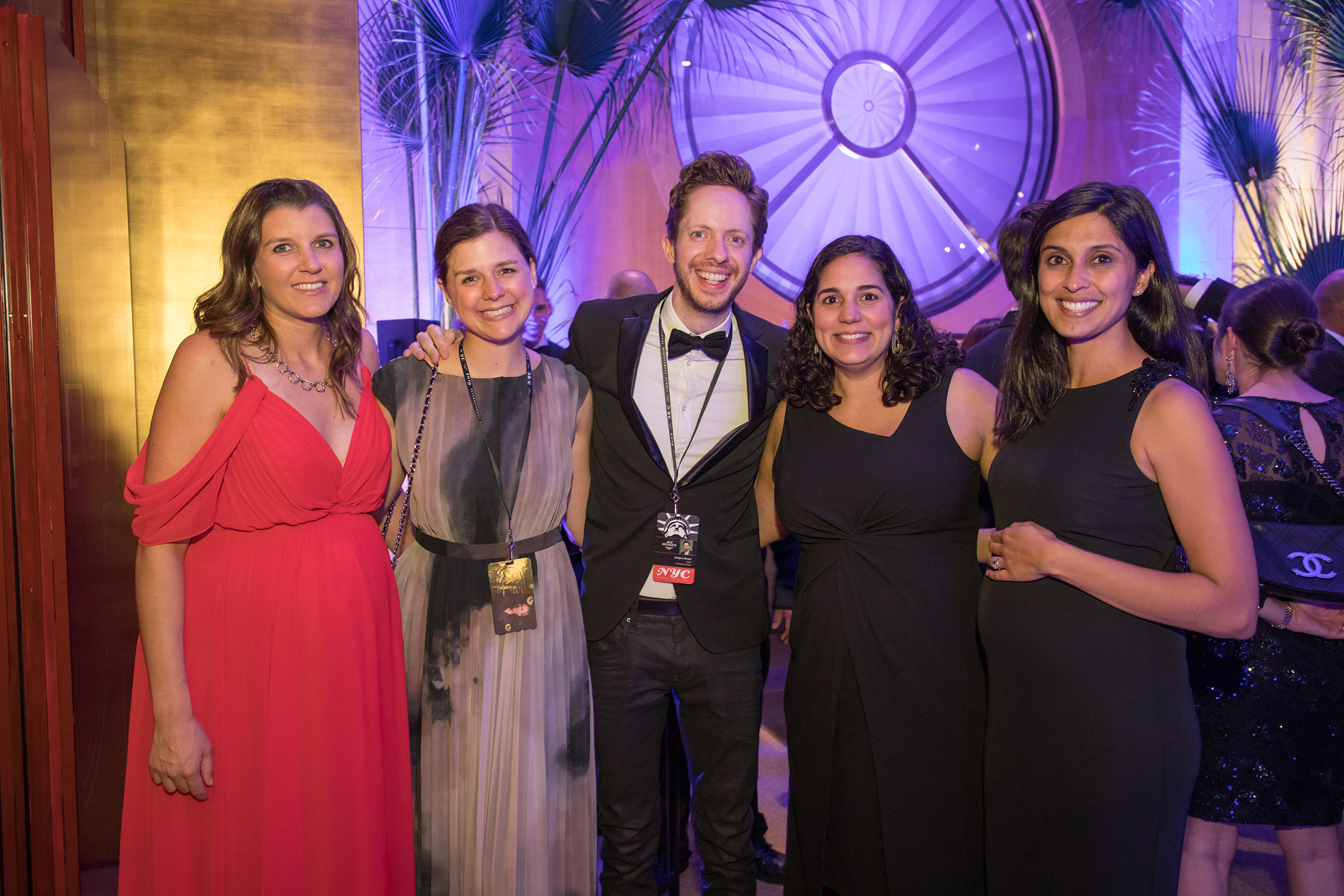
She spoke of her special concern for refugee children, who are often denied education, which makes them vulnerable to recruitment by extremist groups such as ISIS or Boko Haram. Murad was the only one of her siblings to go to school, but her mother always assured her “the real wealth is knowledge.” Murad believes that her education enabled her to resist ISIS brainwashing and to overcome the taboos that prevented other victims of war crimes from speaking of their experience.
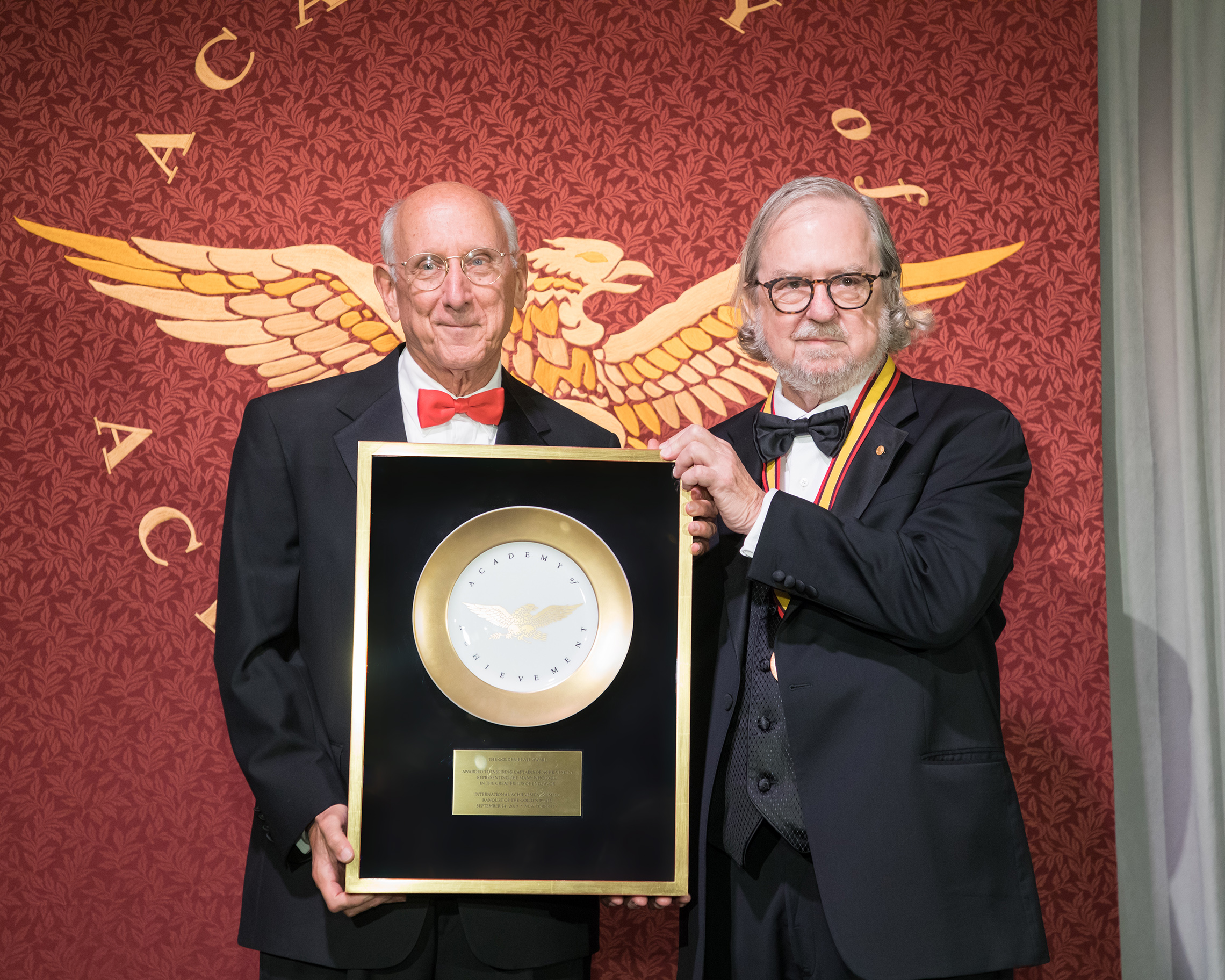
The photojournalist James Nachtwey has spent his career documenting some of the most harrowing calamities of our times. Nachtwey illustrated his talk with stunning photographs from the world’s war zones and disaster areas: the hellish orphanages of communist Romania; a famine-stricken wasteland in Sudan; the epidemic of birth defects in Vietnam, caused by exposure to Agent Orange; the ravages of the opioid epidemic across America; the horrors of war in Iraq and Afghanistan. He hopes that his photographs demystify euphemisms such as “boots on the ground” and “collateral damage.” Photography, he said, allows the victims of these tragedies to say, “This happened to us here, in this place.” He ended this sobering presentation with the words, “As we share these photos, we bear witness. Let us not forget.”
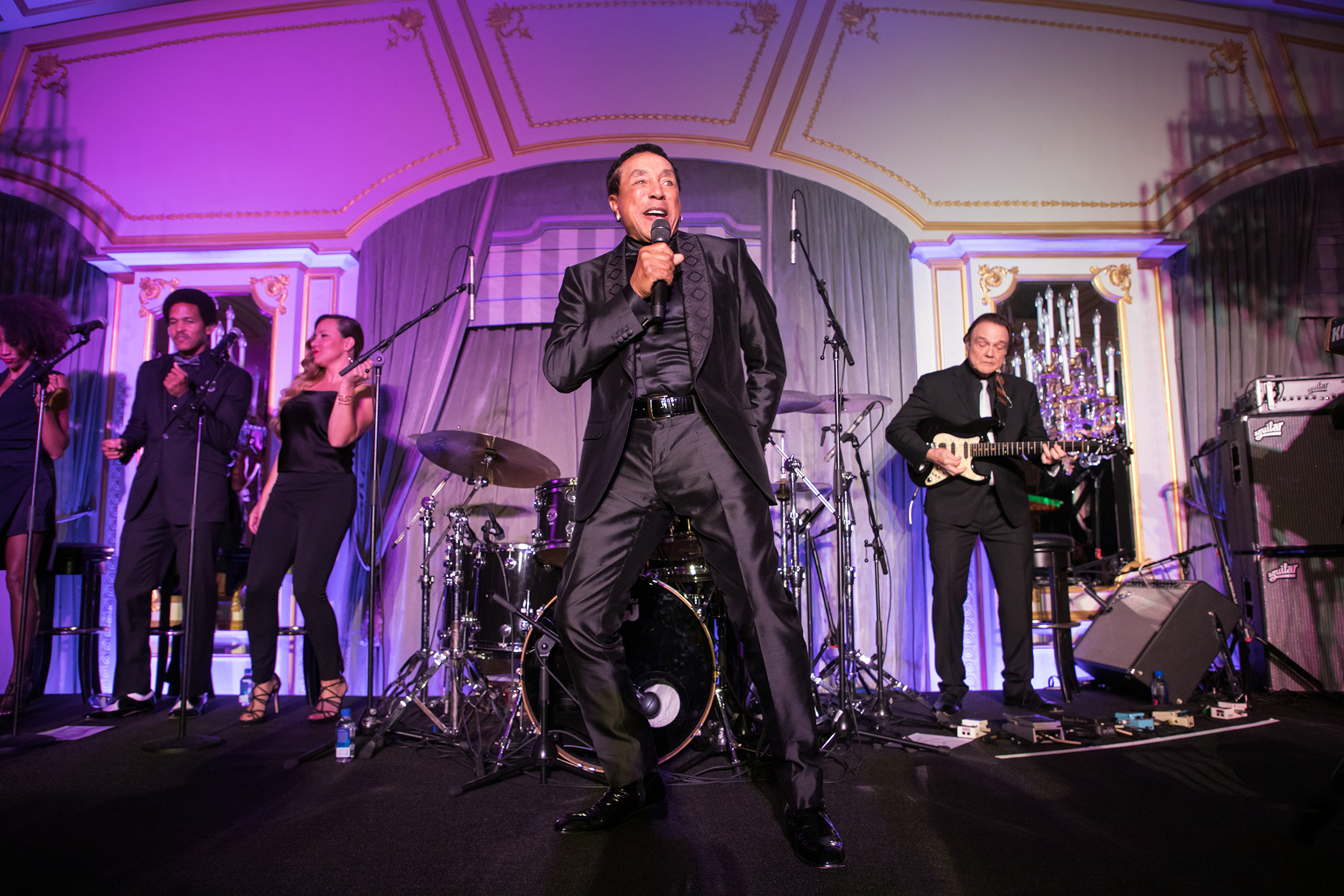
The afternoon’s symposium ended with a presentation by Academy Chairman and CEO Wayne Reynolds. Reynolds discussed plans for the Global Forum for Freedom and Justice, which will be an anchor institution in downtown Birmingham, Alabama, that advances the historic legacies of its groundbreaking civil rights pioneers as a global forum to inspire and teach leadership skills in the 21st century. The Global Forum will be an interdisciplinary center of scholarship, learning, research, and public civic engagement, offering a wide collection of digital archives, recordings, and a research library. The modern civil rights struggle will be a crucible towards better understanding complex contemporary social issues. The Forum will encourage a more meaningful exploration into these heroic role models and, as a result, provide insights that will empower and educate future generations of young leaders.
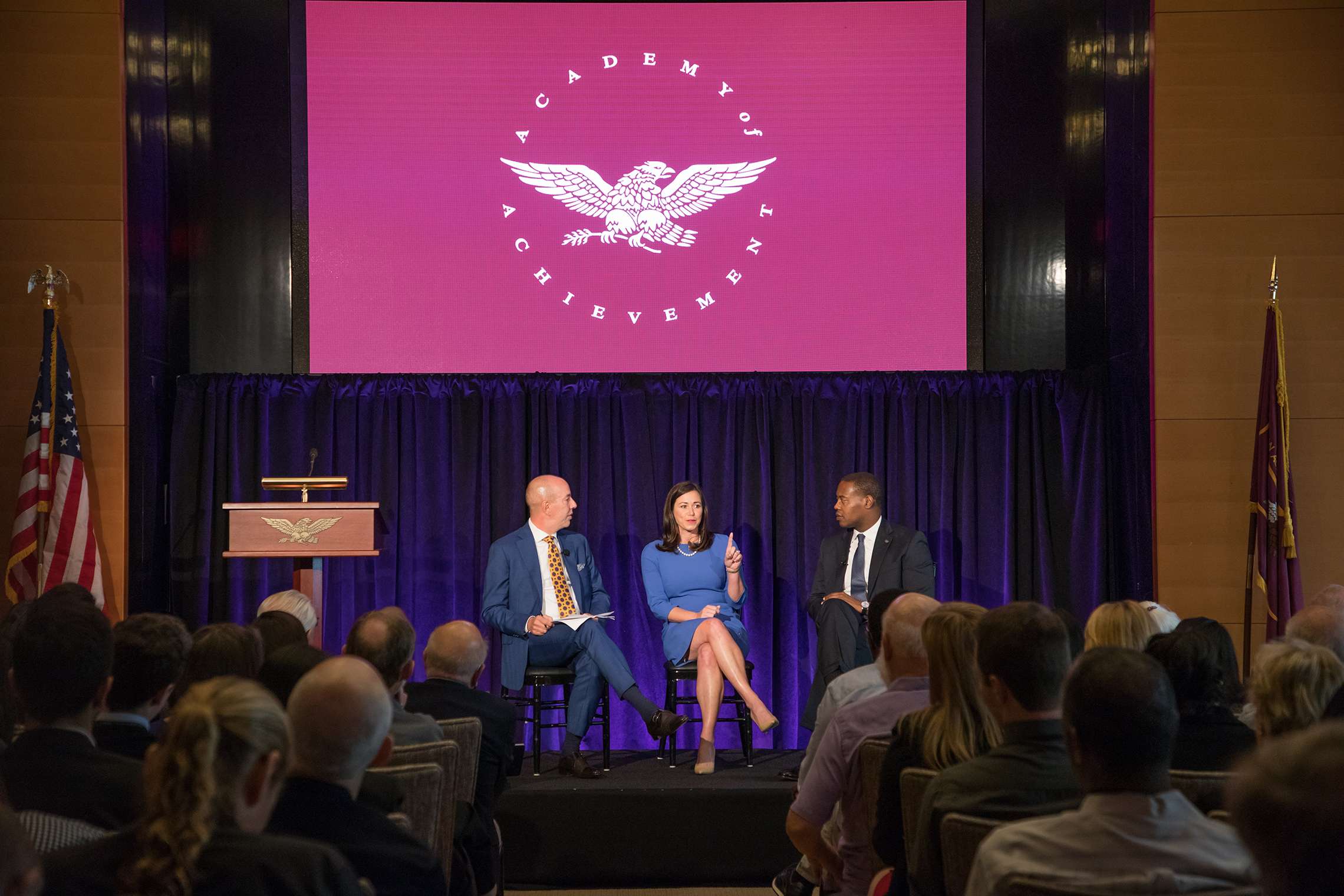
The culmination of the International Achievement Summit was the Banquet of the Golden Plate, held Saturday evening at the St. Regis Hotel. In a stirring ceremony, 34 new members were inducted into the Academy, each presented with the Golden Plate Award by a past recipient of the honor. Following dinner, the assembly was treated to a concert by a 2019 inductee of the Academy, Motown great Smokey Robinson. Effortlessly leading a full band and vocal group, with a voice that has defied the passage of the years, Robinson treated the audience to a choice selection of his timeless hits, interspersed with sly anecdotes about Motown comrades Stevie Wonder and others. His set built in intensity, from the tenderness of “Being With You” and “I Second That Emotion,” to the pulsing four-four rhythm of “Tears of a Clown,” rising to a climax with a cathartic rendition of “Tracks of My Tears.” By the end of the set, delegates and Academy members, including Robinson’s fellow members of the Rock and Roll Hall of Fame, were all on their feet as the wizard of Motown led the audience in a joyous singalong of his classic “My Girl.”
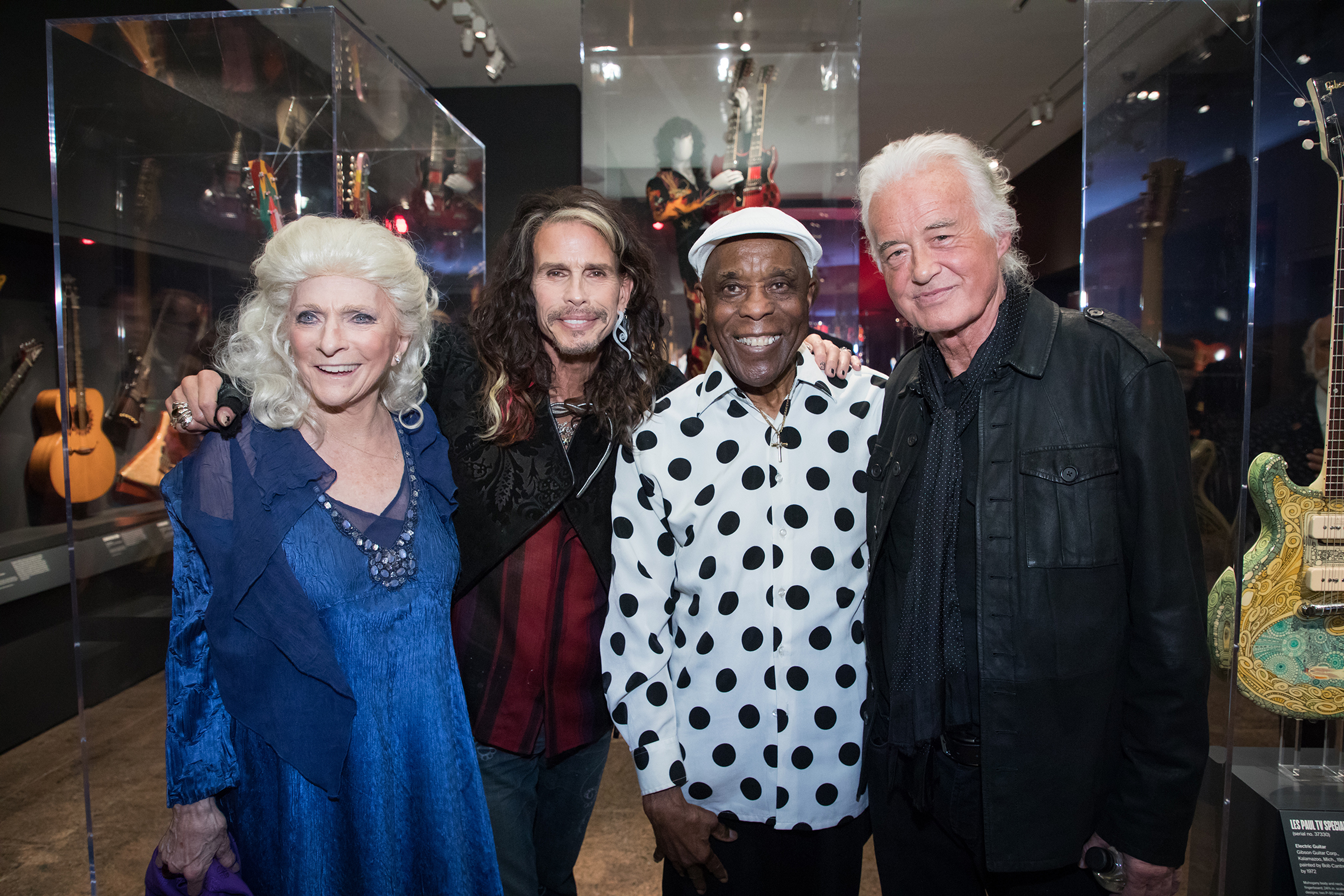
After the Banquet, Academy members and delegates repaired to the Four Seasons for a final reception and dance party on an interactive video dance floor. Although conversation lasted long into the night, a full house gathered for the last session of the Summit the following morning.
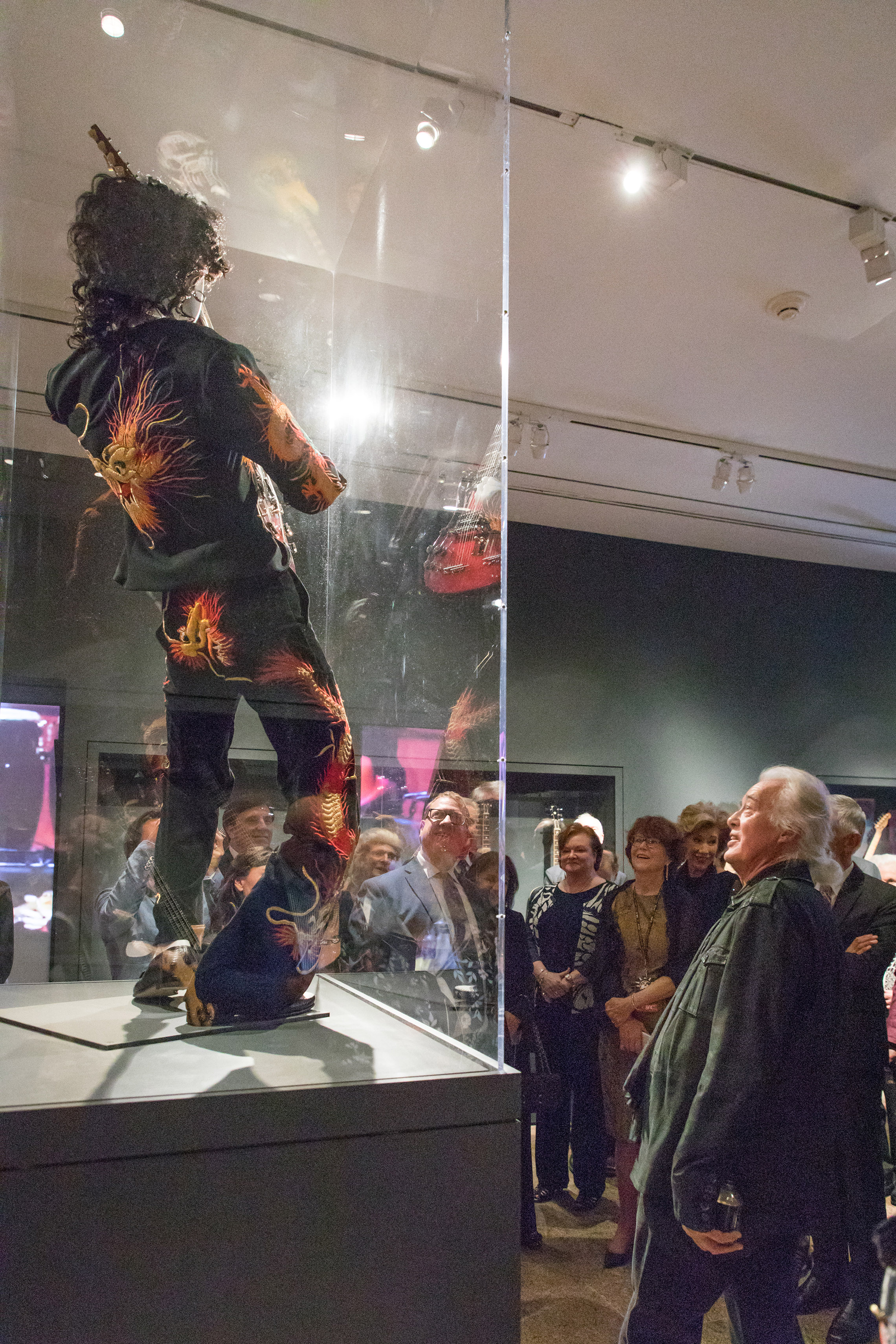
The Sunday morning symposium began with a colorful visual presentation by Dr. Feng Zhang, a pioneer of CRISPR technology, the revolutionary gene-editing technique that is transforming the study of all living things. A former student delegate of the Academy of Achievement, he returned this year as an honoree. Now a professor of neuroscience at MIT, he led the team that successfully applied CRISPR technology to human cells for the first time. Through a series of ingenious slides, he effectively dramatized the chemistry of gene editing, and in clearly accessible terms, laid out the enormous potential CRISPR presents for new developments in medicine, agriculture and more.
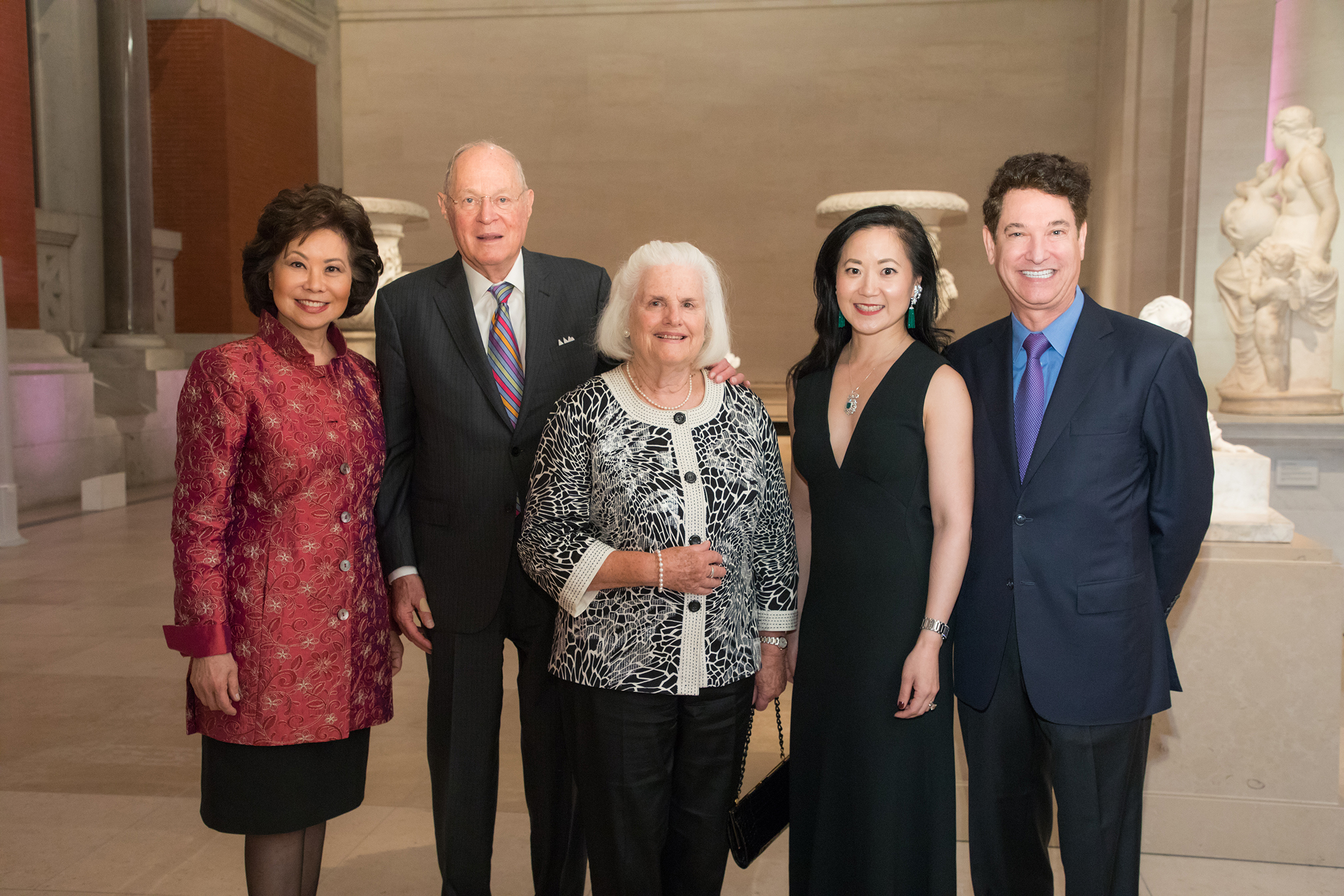
The British author Ian McEwan is among the most acclaimed novelists in the English-speaking world. All his life, he pointed out, critics have predicted the death of the novel, but it refuses to die. He suggested that the novel remains “the best mode of representing the flow of consciousness.”
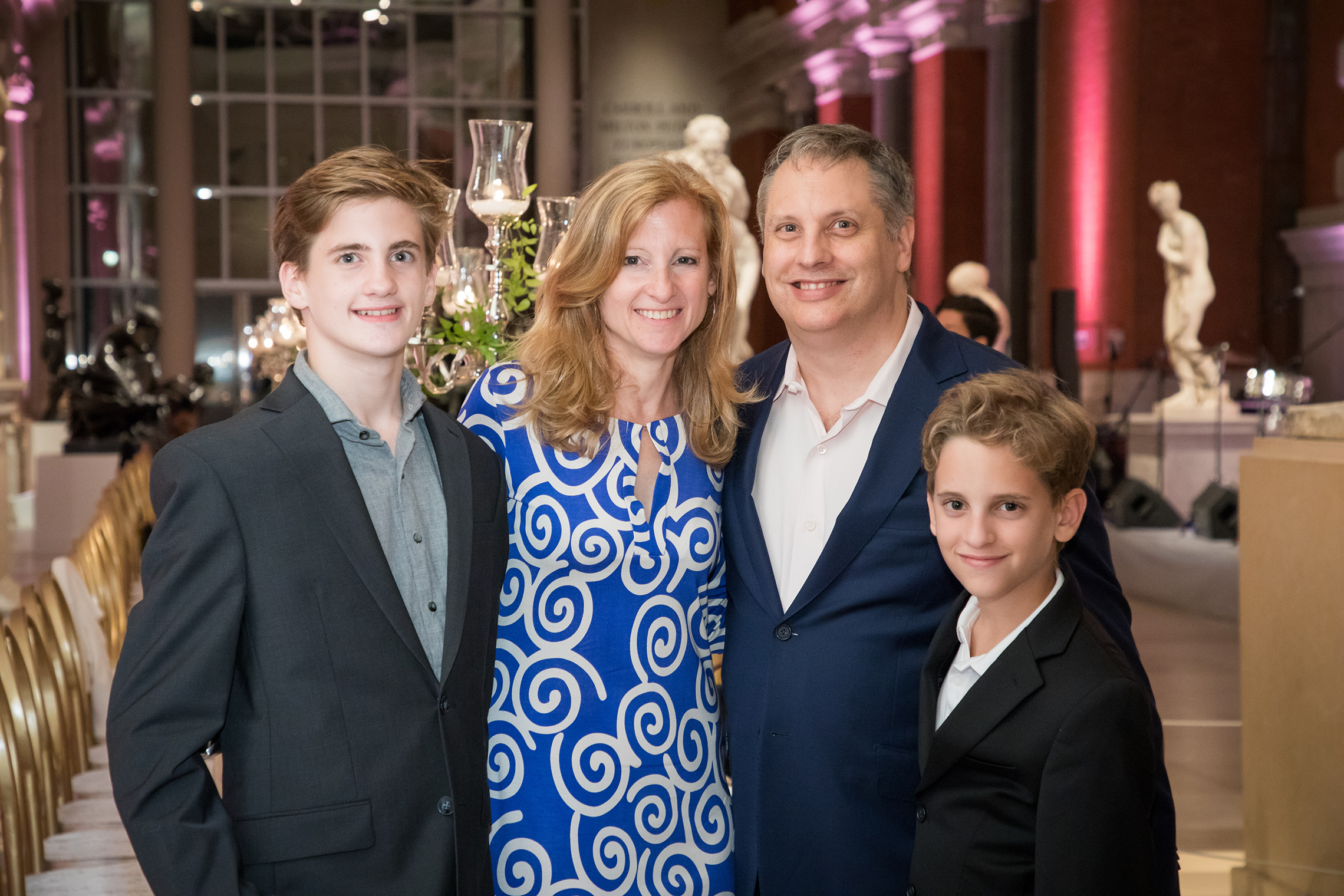
He discussed at length the research he undertakes to give imagined lives the texture of reality. As an example, to supply the background for the neurosurgeon protagonist of his novel Saturday, he spent two years accompanying a neurosurgeon in his work, even touching a living brain in the operating room. By the end of the two years, he could impersonate a neurosurgeon in front of a medical student.
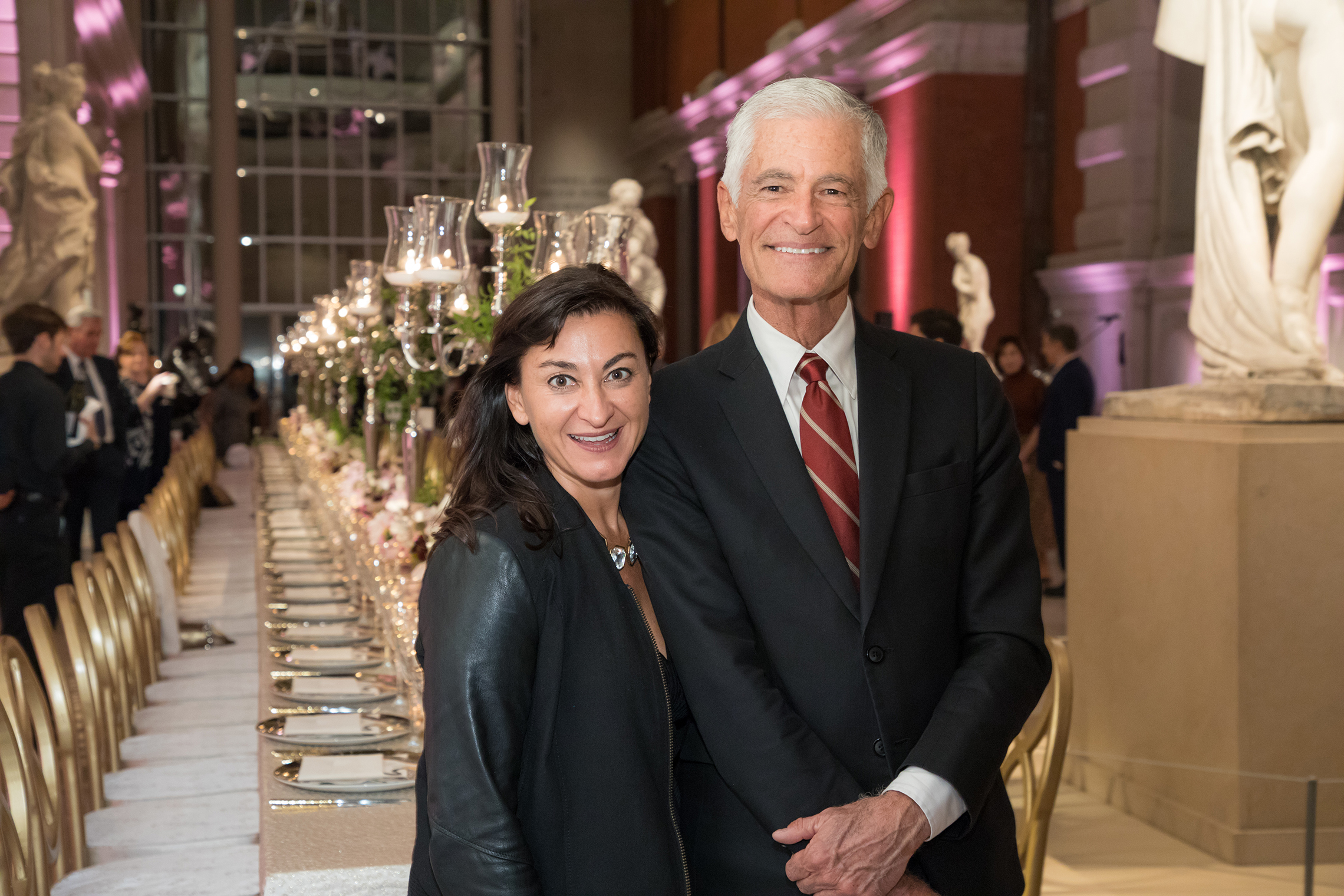
In his latest novel, Machines Like Me, he explores the ethical dilemmas raised by artificial intelligence. In his next, he borrows the premise of Franz Kafka’s Metamorphosis, in which an ordinary man is mysteriously transformed into a giant insect, to create a satire of British politics in the era of Brexit. He pointed out that the relationship of the individual to the state is a perpetual subject of the novelist, and that novelists are among the first to be imprisoned by dictators when they seek to suppress dissent.
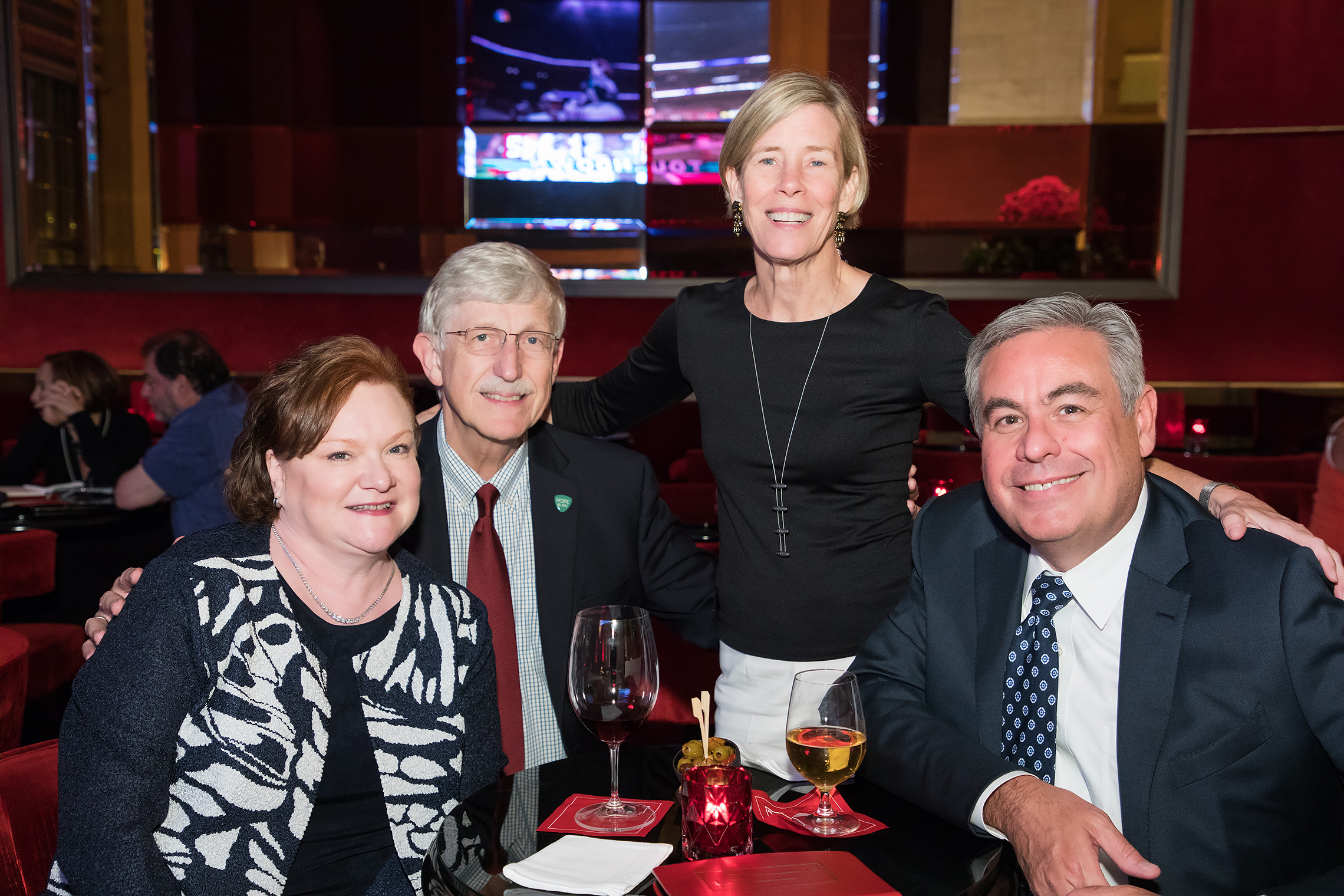
A delegate of the 2019 Summit, the collegiate gymnastic champion Katelyn Ohashi spoke after showing a video of her virtuosic performance in artistic floor exercise. She discussed the challenges of focusing on such a grueling discipline for her entire childhood and adolescence, and the emotional cost of being judged constantly on her physical appearance. She related the necessity of learning to define herself as a human being, apart from her appearance and athletic performance. “The choices we make decide the life we live,” she stated, and now that her career as a college athlete is over, looked out at the room full of CEOs and entrepreneurs and suggested, “Maybe one of you guys could hook me up with a job.”
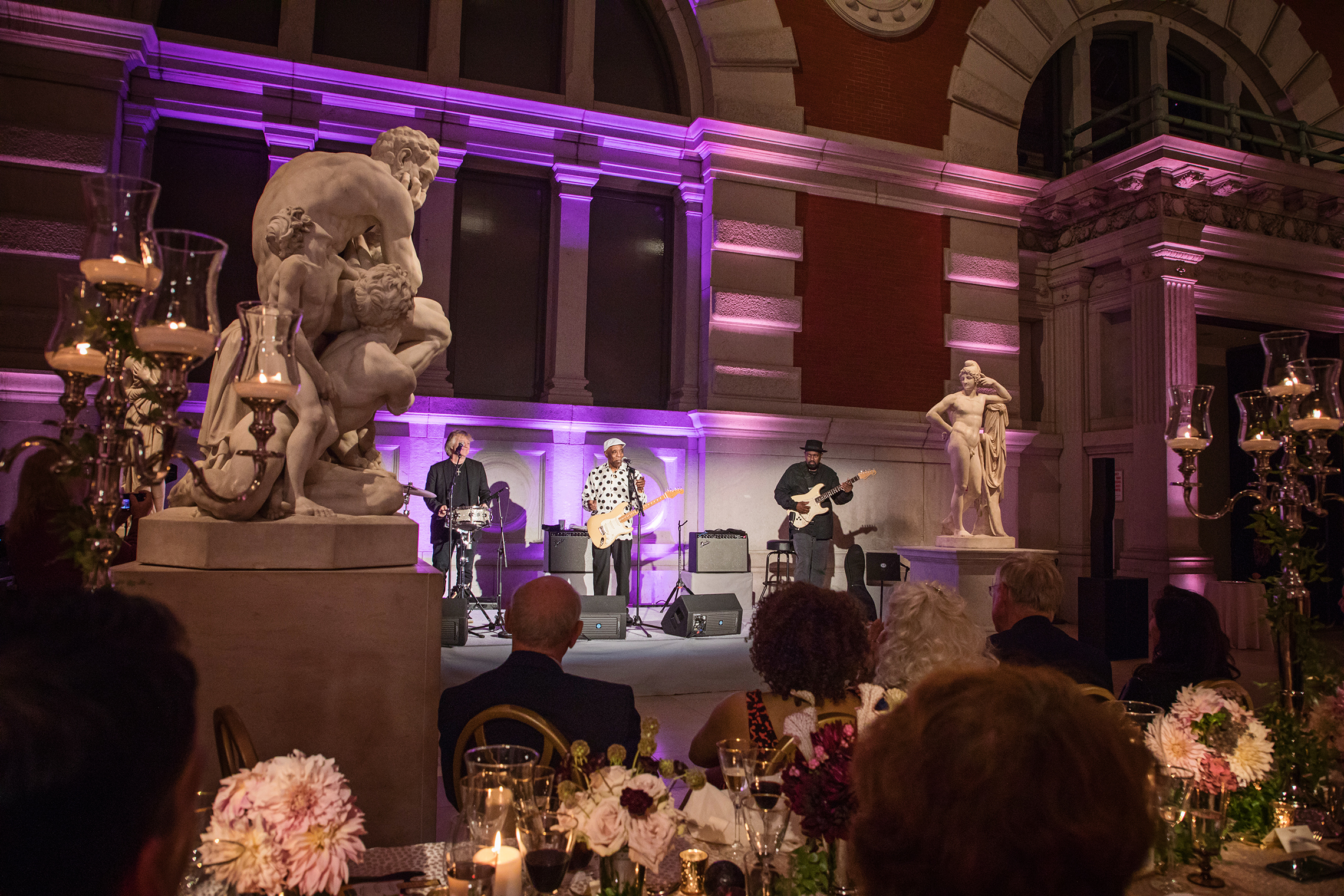
In the final segment of the morning’s symposium, the Executive Director of the American Civil Liberties Union, Anthony Romero, led a discussion with two young leaders from Alabama who, though they come from opposite sides of the political divide, have found opportunities to collaborate in improving life for all the citizens of their state.
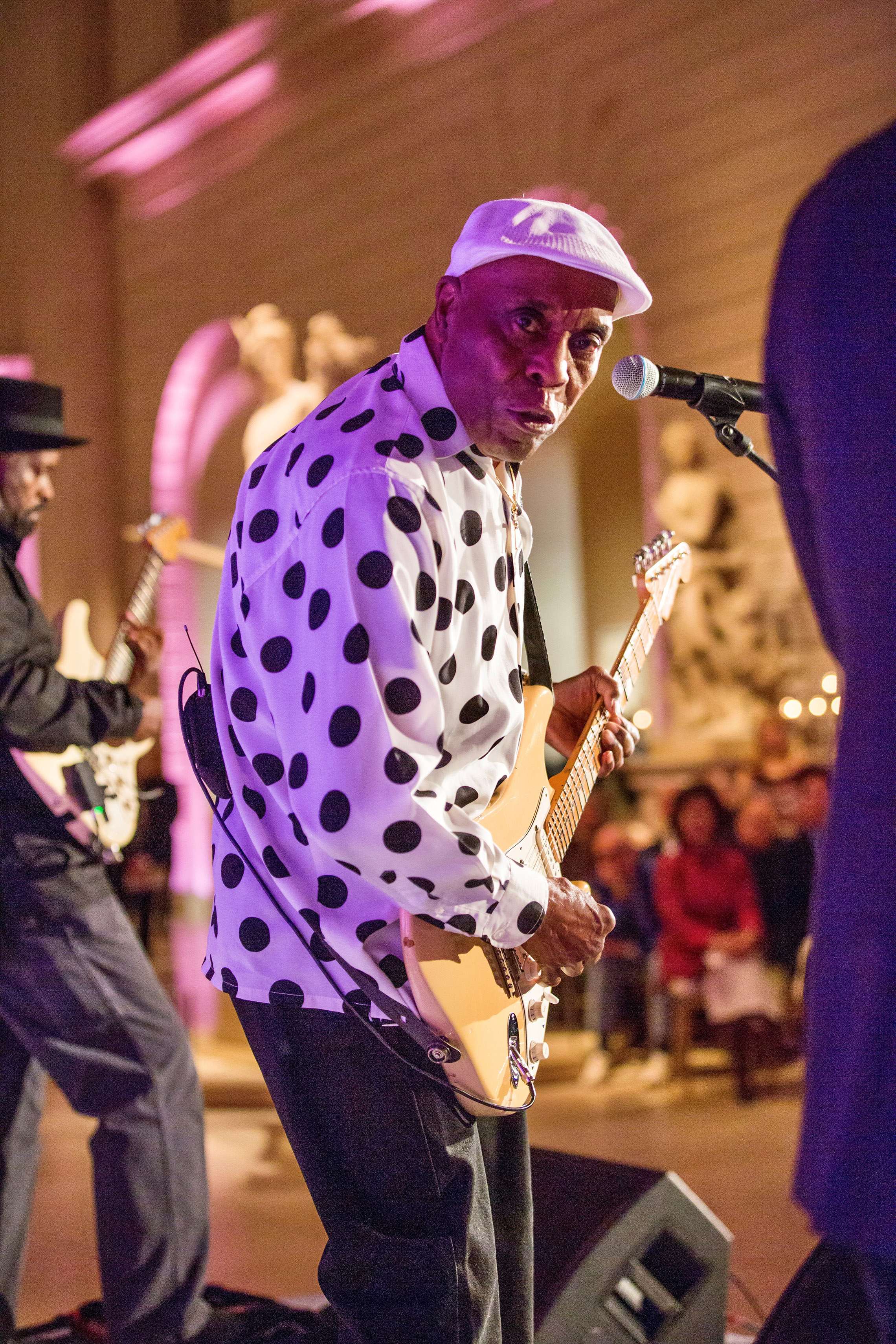
Katie Britt is the President and CEO of the Business Council of Alabama, while Anthony Daniels is Minority Leader of the Alabama House of Representatives. Britt, a former chief of staff to U.S. Senator Richard Shelby, is a Republican, while Daniels leads the Democrats in the lower house of the state legislature. Despite their differences, the two have found common ground on many issues. In a model of disinterested public service, the pair explored improvements to their state’s schools and reforms of the state’s prisons and criminal justice system. The 2019 Summit’s last morning session concluded on a note of bipartisanship, and a vivid demonstration of young leaders rising above partisan differences to pursue practical solutions to solve serious problems.
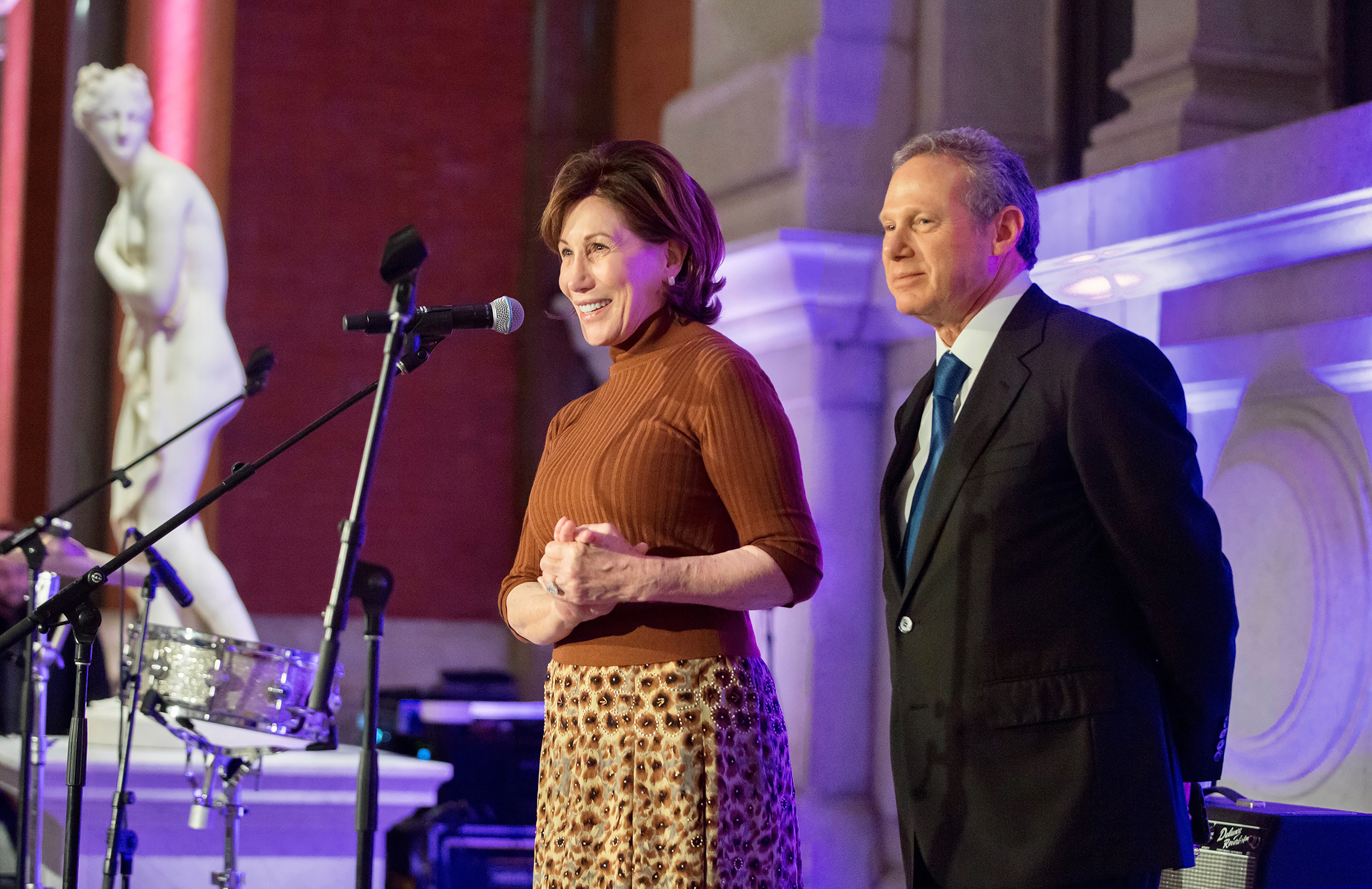
Sunday evening, Academy members gathered at New York’s Metropolitan Museum of Art, where Jimmy Page guided members on a tour of the exhibition Play It Loud: Instruments of Rock & Roll. The exhibition included some of the most iconic instruments of modern music, such as those played by The Beatles, Jimi Hendrix, Keith Richards and Eric Clapton.
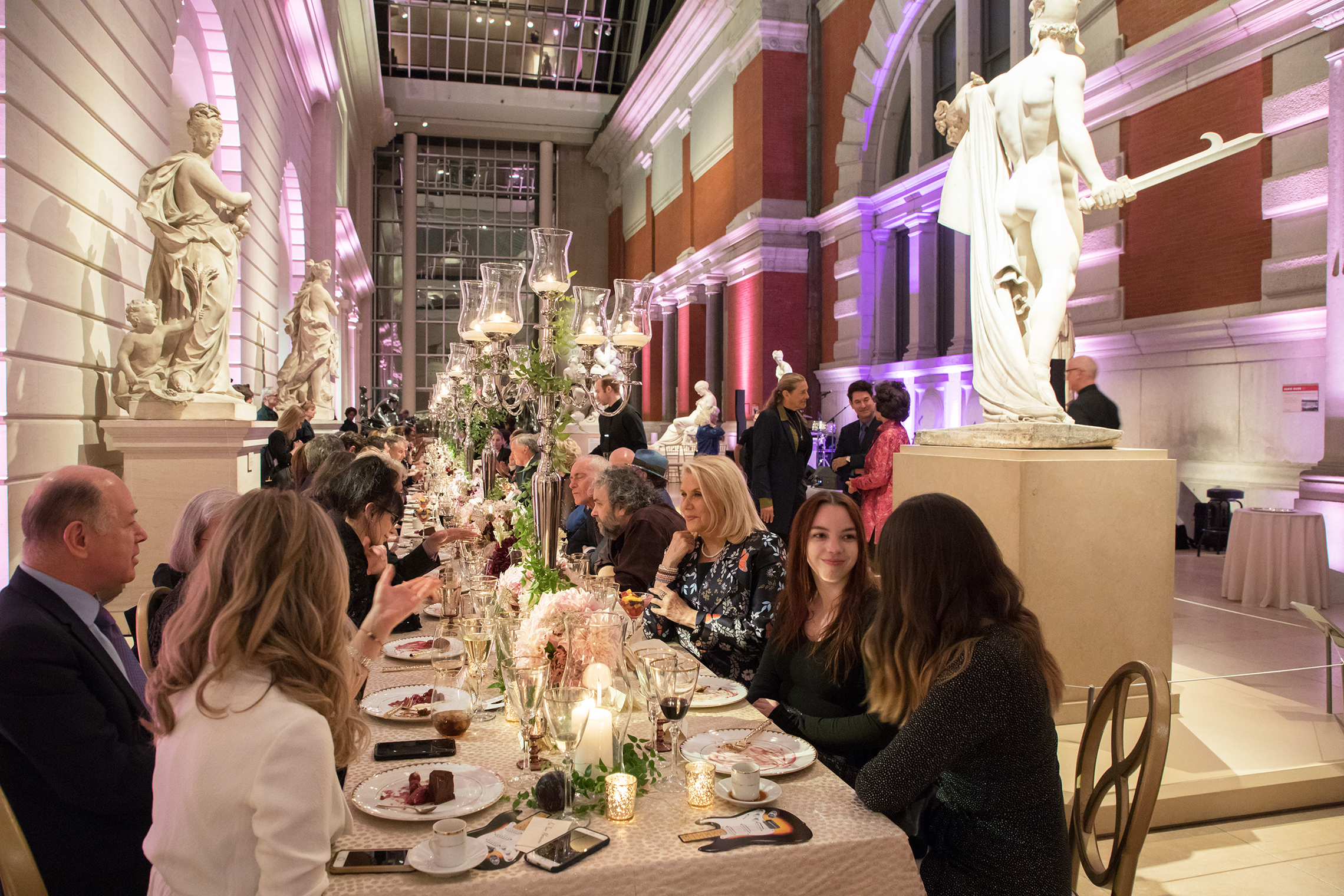
Academy honoree Buddy Guy enjoyed seeing the vintage Fender Telecaster that was the primary instrument of his old friend and bandmate, the late blues innovator Muddy Waters. Jimmy Page lent several instruments to the exhibition from his own collection, including the two Les Paul guitars he played on his classic Led Zeppelin albums. One guitar, stolen from him in 1970, disappeared for 45 years before it was recovered in 2015.
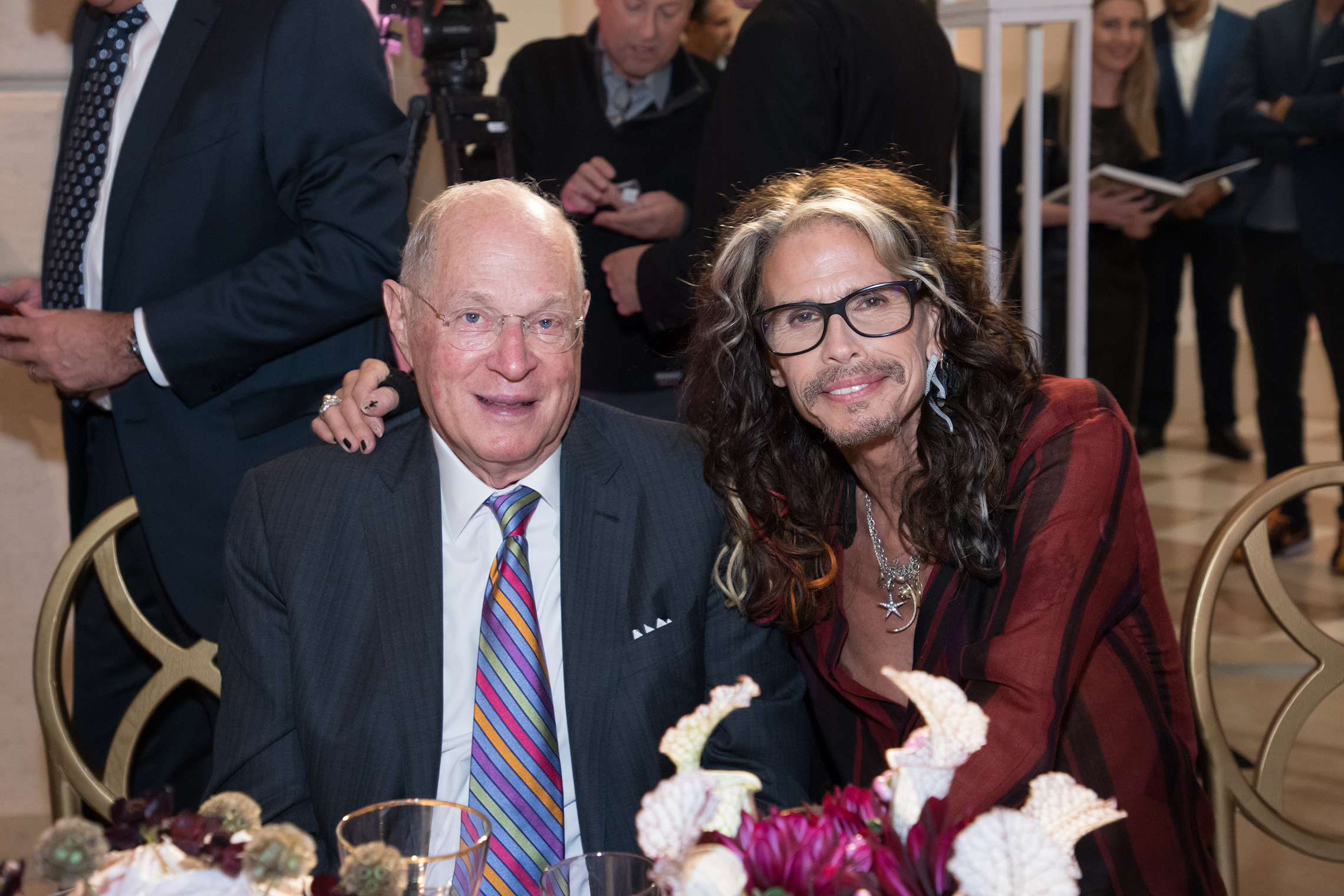
After the viewing of these, as well as musical treasures such as Louis Jordan’s saxophone, Ringo Starr’s drums, and the piano played on tour by Jerry Lee Lewis, the assembly gathered for an intimate dinner in the museum’s Carroll and Milton Petrie European Sculpture Court. In the shadow of Canova’s monumental statue of Perseus and other masterpieces of the classical tradition, Academy members were treated to a performance by blues master Buddy Guy. “I was born to play guitar…” he sang, and proved it with a typically intricate and soulful display of fretboard wizardry.
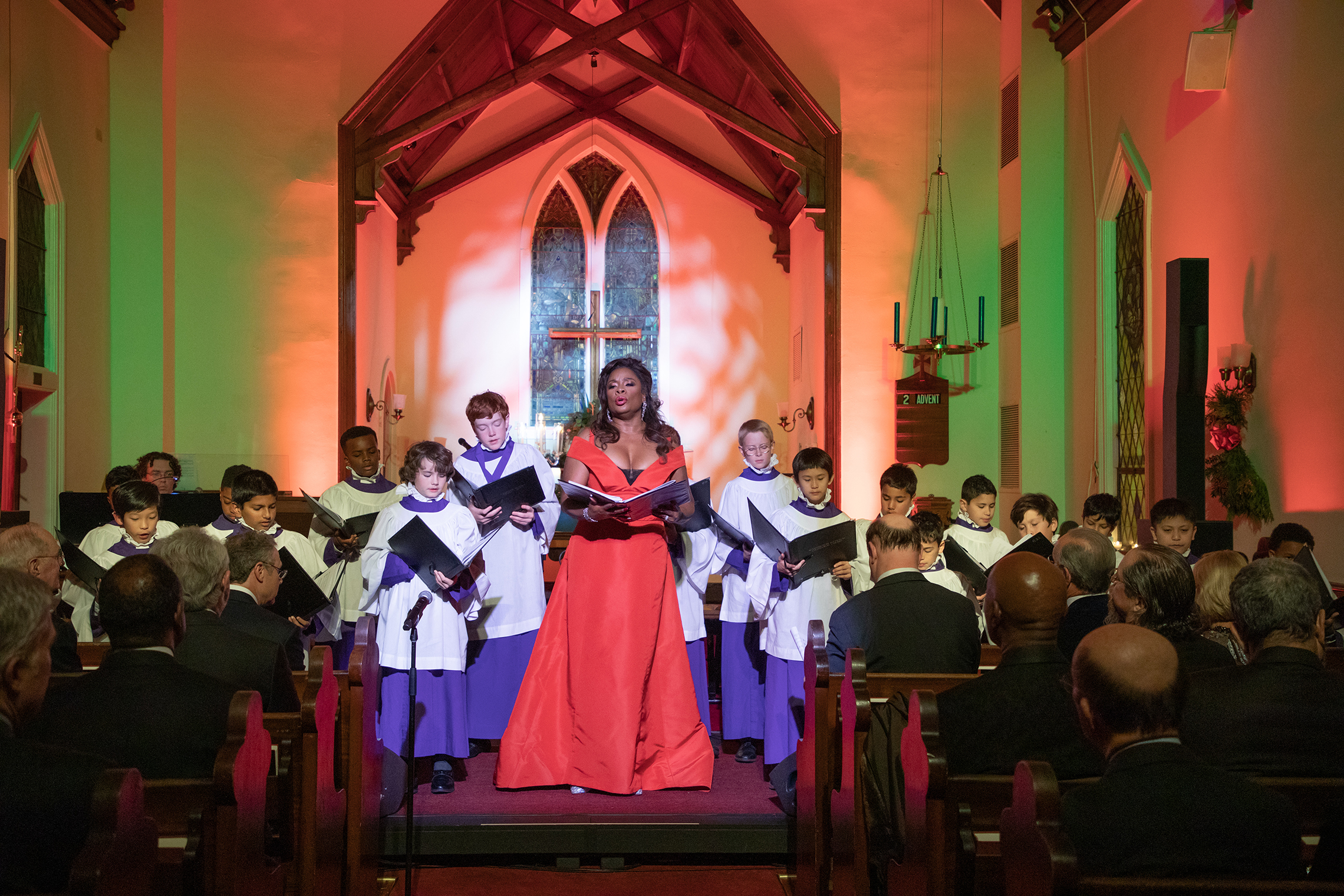
Longtime Academy members, the honorees of the Academy’s Class of 2019, and the Academy’s young delegates will carry memories of a remarkable weekend in New York as they return to their respective endeavors. We hope that the exchange of ideas they enjoyed — and the formation of lasting bonds between men and women of many nations, young and old, across academic disciplines, professions and beliefs — will continue for many years to come.
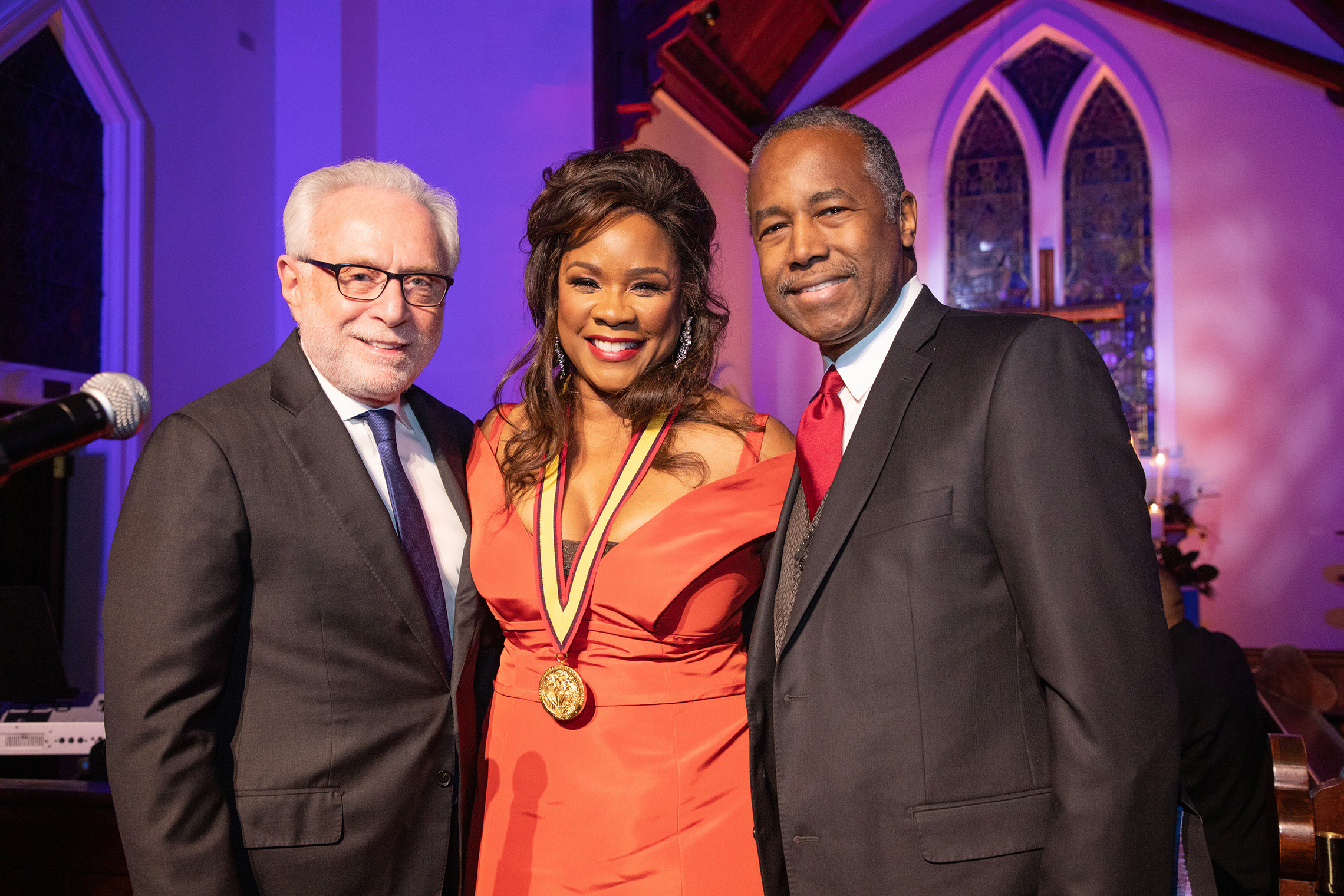
In the last weeks of 2019, two more distinguished honorees were inducted into the Academy during a festive holiday celebration in the historic village of Washington, Virginia, at the foot of the Blue Ridge Mountains.
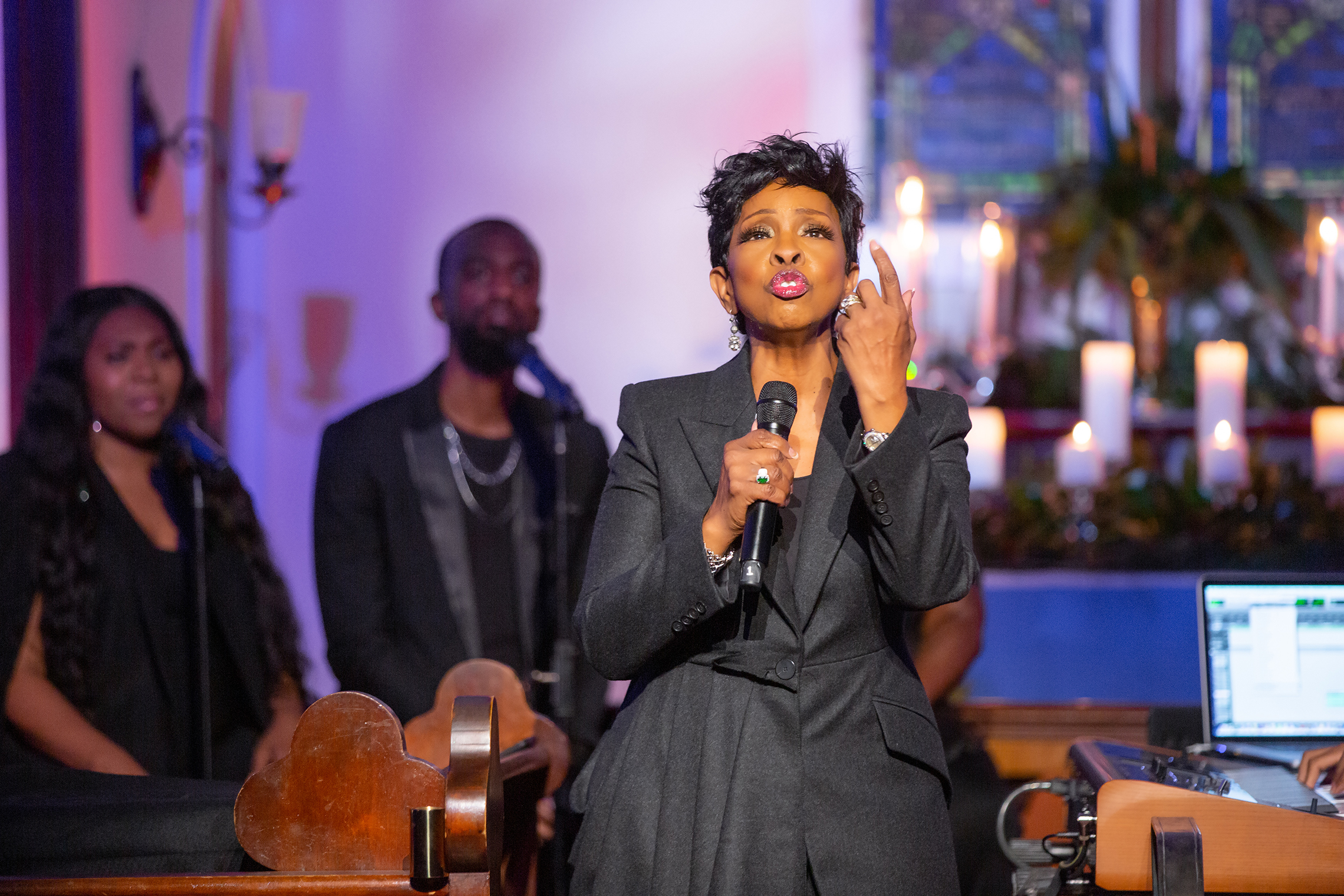
The evening began with an inspiring performance in the village’s venerable Trinity Episcopal Church, featuring the international opera star Denyce Graves and rhythm-and-blues legend Gladys Knight. Following the concert, two members of the Academy’s Awards Council — CNN anchor Wolf Blitzer and the U.S. Secretary of Housing and Urban Development, Dr. Ben Carson — took the stage to present both world-renowned singers with the Gold Medal of the Academy of Achievement.
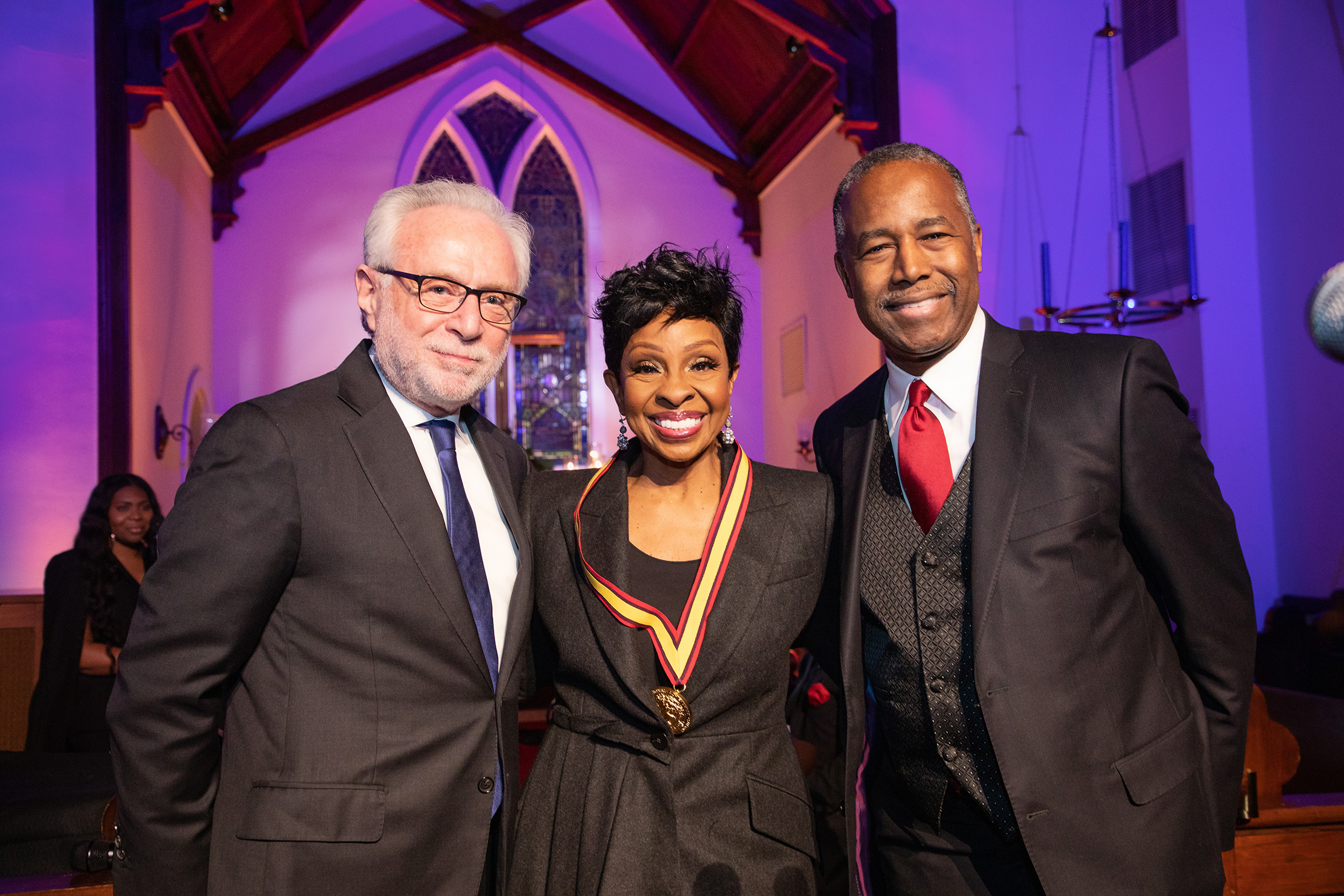
The evening concluded with a warm and elegant dinner in the beautifully restored Inn at Little Washington, a gratifying conclusion to the year’s events, honoring the accomplishments of truly extraordinary individuals in every field.
A 1977 Academy student delegate and 2019 honoree Bryan Stevenson, Founder of the Equal Justice Initiative, addresses the International Achievement Summit in New York.
The heartfelt enthusiasm and genuine, unaffected gratitude of the student delegates are among the most rewarding aspects of the International Achievement Summit. We invite you to share in their close encounters with Academy members and fellow delegates, as described in their own words.
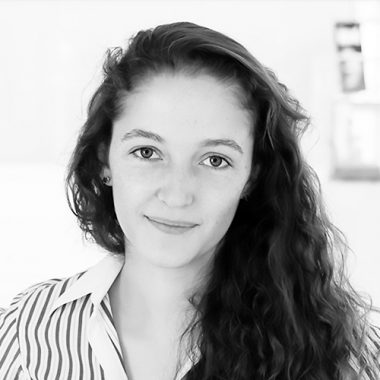
Ariel Ekblaw
Founder and Lead, MIT Media Lab Space Exploration Initiative
Dear Mr. and Mrs. Reynolds,
I hope this finds you both wonderfully well. I simply cannot thank you enough. As I have mulled over the many learnings and exceptional new friends and mentors in the month since your event in September, I am continually pinching myself over having had this amazing opportunity. My research work and personal aims have been remarkably reinvigorated by my exposure to the Academy. I thought I would write to share just a few stories, as a means of saying thank you for such a compelling inflection point in 2019.
I had the pleasure of meeting Mr. Brendan Sullivan, who promptly introduced me to a whole host of other guests, and with whom I’m catching up when I travel to D.C. later this month for an aerospace conference. On the delegate side, Koda Wang has connected a number of us on a mailing list and we’re looking forward to a Boston area meet-up soon!
Dorothy’s classic “I’ve a feeling we’re not in Kansas anymore” came to mind, when my very first seatmate, at the early arrivals dinner, proved to be none other than Saul Perlmutter. He kindly offered to stay involved as a technical adviser for my self-assembling aerospace structures Ph.D. This would be hard to top, had the amazing Donna Strickland not showed up the very next day to speak about her amazing work and empower us to pursue her scale of research excellence.
Perhaps the most intriguing outcome, however, has been the broad cross-section of exposure to leading thinkers (and now future collaborators and mentors) far outside my immediate field.
Fantastic conversations with Thomas Heatherwick, Ian McEwan and past clerks for the Supreme Court Justices have led to opportunities to follow up together on new research efforts within my Space Exploration Initiative for the Media Lab.
Space law, space architecture, and compelling alternative sci-fi futures — here we come!
Finally, listening to the many Academy examples of selfless public service and service to a global citizenry, my family’s tradition of military service came back to the top of my mind and I have re-engaged on long-hibernating personal goals for civic engagement. I’m extending my stay in D.C. in October to participate in MIT’s Executive Branch policy briefing days, and have been looking into organizations through which scientists can lead effective science policy.
And as they say in statistics — this is but a small sample size out of many other anecdotes from a fantastic weekend! Thank you again for your kindness and inspiration. A huge thank you also to your staff, who took such good care of us before and during the event. Please keep your eyes out for an honorary mission patch from our space efforts at MIT (in the mail on its way to your 16th St. offices!), and I hope our paths cross again soon.
Yours, in Space and Beyond,
Ariel Ekblaw
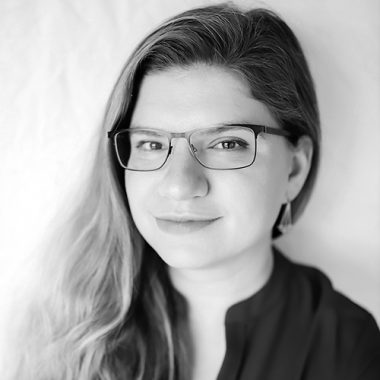
Sofia Belikovetsky, Ph.D.
Cyber Researcher, Toka, Israel
Dear Mr. and Mrs. Reynolds,
I’d like to express my deepest gratitude for being selected as a delegate for the 2019 Summit of the Academy of Achievement. Two weeks have passed and I’m still walking around with amazement and disbelieve that I had the honor to attend this remarkable event. I’m so thrilled that I got the chance to meet and exchange ideas with the incredible attendees of the Summit, that I can hardly find the words to describe this experience to my colleagues, friends and family.
The Academy of Achievement gave me the opportunity to listen to the exhilarating stories of the extraordinary honorees that are genuinely the top of their fields and have left a significant mark on humanity. Their stories were captivating, inspiring, full of sacrifice and dedication. I believe these people and their life journeys will serve as my guideline for future decisions and aspirations.
During that weekend I also met the fascinating and enthusiastic people of the delegation and conversed about issues and topics that are far beyond my field of expertise.
I profoundly enjoyed the lively and passionate discussions, and I’ll make sure to keep in touch with my new friends and colleagues from this incredible delegation.
I’d also like to thank you for your generosity and hospitality. Your attitude and warmness made me feel welcome. I’m truly humbled by the experience that has filled me with inspiration and ambition to be extraordinary in my own field. I’d also like to note the impeccable organization of the event. I was impressed and thankful for the amount of attention and care that you and your team have put into every detail. Everything was on point and reflected the level of excellence that the Academy strives to promote.
In my own field, I’d like to continue researching cybersecurity and cyber intelligence. I received my practical education in the field while serving as an officer in the 8200 unit (equivalent to the NSA) in the Israel Defense Forces for six years, and later in the Israeli secret services. Currently, I’m working in Ehud Barak’s startup, Toka – Cyber Builders, and leveraging this knowledge to advance the fight against terrorism and criminal activities worldwide. Additionally, I plan to extend my scientific studies to focus on creating a new paradigm of cybersecurity to reduce the risk of cyber-attacks on critical infrastructure.
If there is ever a chance for me to assist the Academy with its activities, in every possible manner, please do not hesitate to reach out — it would be my honor.
With sincere admiration,
Dr. Sofia Belikovetsky
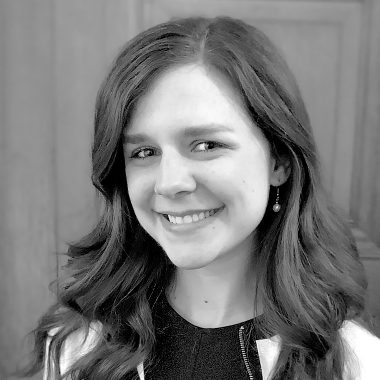
Aimee Brown
Attorney and Former Law Clerk, Supreme Court of the United States
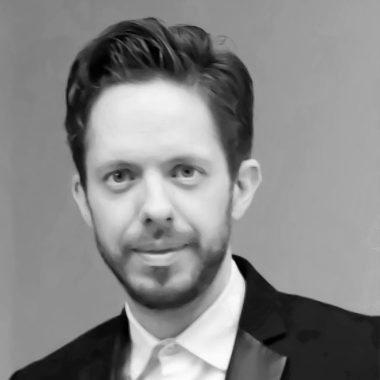
Gregory Brown
Concert Pianist
Dearest Mr. and Mrs. Reynolds,
We just wanted to take a moment to thank you for the incredible impact you have had on our lives. There are a few rare moments in life where something has the power to alter the way you see the world and to change the way you determine what’s possible. Taking part in the Academy of Achievement’s summit this year as delegates was exactly that kind of experience for us, and we don’t know how to properly thank you for the gift you have given us.
Being able to speak with and learn from personal heroes of ours was absolutely invaluable, and our fellow delegates were equally inspiring.
Many of us are still in touch, and we expect some of these friendships will be lifelong. If the Summit weren’t already transformative enough, getting the opportunity to speak with Princess Reema and the guests at the dinner in her honor was absolutely above and beyond. Please know that we admire both of you greatly, and if we can ever be of assistance to you, please don’t hesitate to reach out. We’d love to stay in touch.
Warmest regards,
Aimee Brown and Gregory Brown
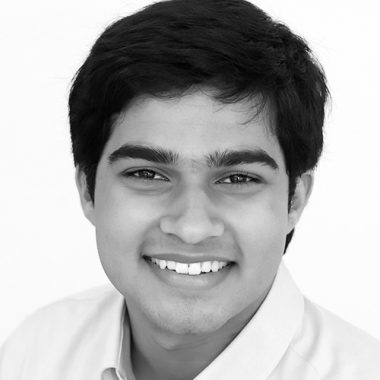
Kaustav Gopinathan
MIT/Harvard Medical School
Dear Mr. and Mrs. Reynolds,
It is hard for me to describe the wonder I felt while sitting among the giants at the International Achievement Summit. Never before have I had the privilege to interact with so many accomplished people, in such diverse fields, all working to solve the world’s biggest problems.
It was truly humbling to see the people I grew up admiring, who had always seemed to be “larger than life,” sit next to me and share their work and their stories.
It is one thing to read about the accomplishments of these people, and it is another to get to meet the human behind those achievements, who faced their own challenges and grew through their experiences. More than any of the articles, papers, or press releases I had read about, it was meeting these people in person that inspired me to believe that an individual can have what it takes to change the world.
Thank you so much for hosting this incredible event. I am truly humbled to be invited here and grateful for the diverse conversations with both the Summit members and the delegates. I will do whatever I can to take the inspiration I felt from this experience and bring it to fruition.
Sincerely yours,
Kaustav Gopinathan
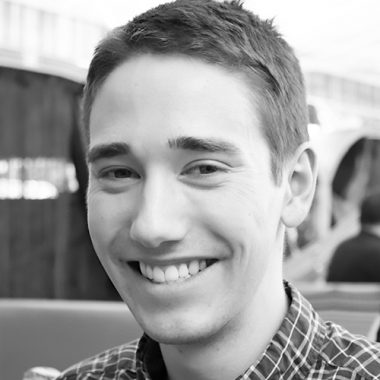
Alex Palmer
Journalist and Writer, National Geographic Explorer
Dear Mr. and Mrs. Reynolds,
I cannot thank you enough for your kindness and generosity in hosting the International Achievement Summit and for inviting me to participate. It was truly a life-changing and life-affirming weekend, and even two weeks later, I still feel like I’m riding on a cloud. As I told Catherine after the dinner on Thursday evening, even if the entire program had been nothing more than that night, it still would’ve been one of the best experiences of my life. I met so many incredible and inspiring people — delegates, honorees, and Awards Council members alike — who made such an impact on me in just a few days. I can’t wait to follow their paths and to support them however I can in the months and years ahead. I already feel honored to call them friends.
I am so grateful for your incredible kindness and hospitality. If there’s ever anything I can do to help advance the work of the Academy or the Summit, please let me know. Even if it is stuffing envelopes or mopping floors, I would love to do it.
Thank you again. I hope we have a chance to meet again soon and that I can live up to the incredible gift you shared by inviting me to the Summit.
With deepest thanks,
Alex Palmer
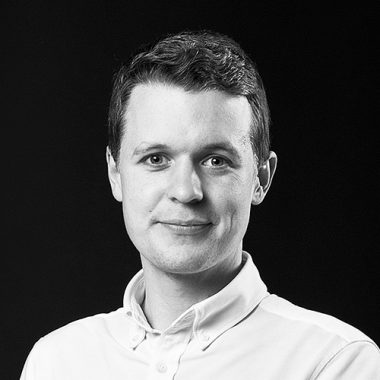
Tim Sadler
Co-Founder and CEO, Tessian, London
Dear Mr. and Mrs. Reynolds,
I wanted to thank you for the opportunity to attend the International Achievement Summit this year as a delegate.
Whilst I had been eagerly awaiting the event ever since I received my invitation, I can safely say that the Summit itself far exceeded any expectations I had — it was one of the most formative and important initiatives I’ve ever been a part of.
I felt a strong connection to the topics covered by the speakers, honorees and members, and found in them many relevant lessons. Some highlights for me were hearing directly from John Doerr about the importance of Objectives and Key Results only days after I’d been working on an OKR framework for my company and our employees, learning about the importance of establishing and retaining your confidence from Thomas Heatherwick, and learning to appreciate the importance of patience, focus, and belief from Kip Thorne and his 30-plus-year journey to the discovery of gravitational wave theory.
I also met so many phenomenal delegates who are working to change our world for the better. Not only was it inspiring to hear from them about their work and mission, but I made so many important connections and friendships for the future. It was especially helpful to meet so many new people based in San Francisco, as I’m shortly moving to the city from London.
The most important lesson I took away from the Summit was that those who’ve been fortunate enough to achieve great things in their career have the capability to use their influence and leadership as a force for good in the world.
Thank you for the work that you and your team put in to make the 2019 Summit possible. I’m so grateful to have been able to be a part of it.
Best regards,
Tim Sadler
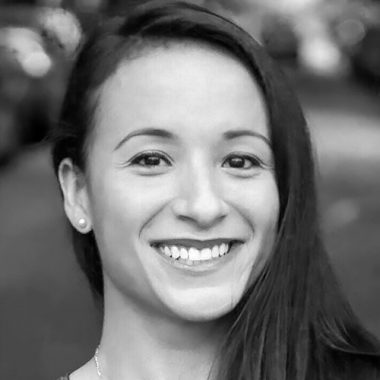
Bianca Tylek
Founder and Executive Director, Worth Rises
Dear Mr. and Mrs. Reynolds,
I write this with immense gratitude. Thank you for having me at this year’s International Achievement Summit of the American Academy of Achievement. It was a remarkable experience full of surreal moments.
The weekend fell on an important anniversary for me. On September 14, 2002, my boyfriend was tragically murdered. That Saturday morning, I lay on my bathroom floor in absolute desperation. Tears poured down my face violently and incessantly. Recalling that day 17 years ago made it hard to walk into the Summit. But with his mother’s blessing, I leaned into the incredible weekend and I’m really glad I did.
I watched thought-provoking presentations and met amazing people — both honorees and delegates. I had beautiful conversations with Nobel Prize winners, photojournalists, financiers, opera singers, social justice warriors, and still others.
I could not imagine meeting such a diverse, accomplished, and inspiring group of people anywhere else. And I’m thrilled to report that many of our conversations have continued in the days since the Summit.
The weekend reminded me that people are brilliant and beautiful (and scientists are funny!).
I still haven’t processed all my learnings from the weekend and I imagine that I’ll continue to do so for weeks, months, and years to come. I’m also sure that the seeds that were planted this weekend will bear fruit well into the future.
Thank you for believing in a girl like me, in the power of the community I come from, and in the work I do and people it serves. Most importantly, thank you for helping me make Gabriel, looking down, proud of me. Because I was there, we were all there.
I assure you that your investment in me will be paid forward and return multiples in value. I hope to stay in touch and connect to tell you just how. In the meantime, on behalf of all those in my community and those who can’t share their gratitude directly, thank you for all that you do and all those whom you inspire.
With gratitude and love,
Bianca Tylek
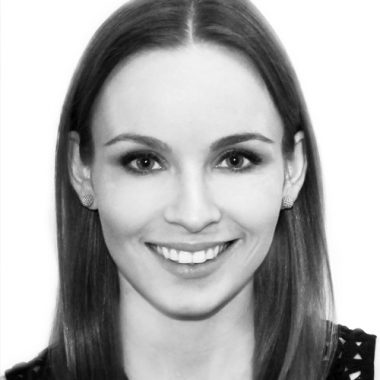
Joy Wolfram, Ph.D.
Director, Nanomedicine and Extracellular Vesicles Laboratory, Mayo Clinic
Dear Mr. and Mrs. Reynolds,
I would like to extend my sincere gratitude on behalf of all the delegates and myself. It was a magical experience to participate in the 2019 International Achievement Summit in New York City.
The setting was delightful, the discussions captivating, and the attendees inspirational. Thank you for your generosity in putting together this event, providing accommodation at the Four Seasons Hotel on 57th Street in New York City, organizing the welcome dinner and festive celebration of the Banquet of the Golden Plate ceremonies, and for the exceptional gifts.
The Achievement Summit was an unforgettable experience, and I thoroughly enjoyed interacting with the organizers, Academy members, and honorees. I have never before listened so attentively to every single talk at an event. I walked away with so much energy and motivation to improve the world.
I will reflect back on the Achievement Summit for a very long time to channel inspiration when the going gets tough. You may be aware that over 90 percent of what we do in the laboratory fails, but we do not give up our mission of developing new treatments for life-threatening diseases.
I also walked away wondering what I could possibly have done to deserve being among the invitees. I guess I will never really know. I am deeply indebted for the opportunity to attend. You play such an important role in bringing together movers and shakers, such as you. It would be difficult to precisely measure the connections, ideas, and projects that the Achievement Summit has sparked over the years, but I firmly believe that such initiatives will continue to impact the world long after we are gone.
I hope to have the pleasure of seeing you again in the future. Please do not hesitate to contact me if you ever have time to meet while visiting family in Jacksonville.
With best wishes,
Joy Wolfram, Ph.D.
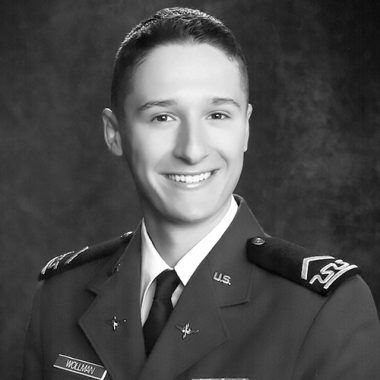
Cadet First Class Yann A. Wollman
United States Air Force Academy
Dear Mr. and Mrs. Reynolds,
I cannot begin to thank you enough for inviting me as a delegate to this year’s Summit!
Having the opportunity to learn so much from so many accomplished and convincingly good human beings was absolutely astonishing, and an experience forever engrained in my memory.
Growing up, I often listened to Tim Ferriss’s interviews with “world-class performers” and always thought how exciting of a job that would be to meet and talk to so many interesting people. The Academy is a force multiplier and provides a magical setting where everyone can speak candidly about a variety of topics. Thank you for cultivating such a remarkable group of individuals whose achievements are underscored by their foundations of integrity, passion, and vision. The humanity of each man and woman’s accomplishments helps uplift others — and I know I speak for the rest of this year’s delegates when I say that you have done that for all of us.
Conversation after conversation, I was moved by each person’s unique stories and perspectives. From speaking with Steven Tyler about his musical inspiration, to absorbing wise advice from General Petraeus, I did not think I could be more impassioned and supercharged, yet there I was discussing CRISPR and eating yellowtail sushi with Dr. Feng Zhang until 2 a.m.
The best anecdote to epitomize this weekend was when I sat down for breakfast Saturday morning, waking up with a cup of coffee, when all of a sudden, Secretary Ben Carson sat down to my right and Justice Brett Kavanaugh to my left. I never imagined I’d be sharing bagels and smoked salmon with such inspirational human beings. That is a breakfast to be remembered!
Having spoken with dozens of other impressive delegates, it was an honor to learn about one another’s backgrounds, directions, and how we, individually and collectively, want to leave our mark on the world.
Following my experience, you may wish to consider the possibility of creating or acquiring an encrypted chat messaging app. This would enable past, present, and future delegates to be connected in the Academy’s own private online community. At their discretion, honorees may also wish to join the same network. If this idea is of interest and you wish to discuss it further, I would be happy to explore how I may be able to assist you in moving this agenda forward.
Finally, from an operational point of view, the event was flawlessly executed. From timing of the presentations, to delicious meals (the osso buco was fantastic!), to the kindness and thoughtfulness of your staff, the experience was a seamless orchestration of perfection.
Thank you for inviting me to join the Academy of Achievement’s family. I am grateful for this opportunity and trust that we will continue our friendship long into the future.
Most sincerely,
Cadet First Class Yann A. Wollman

